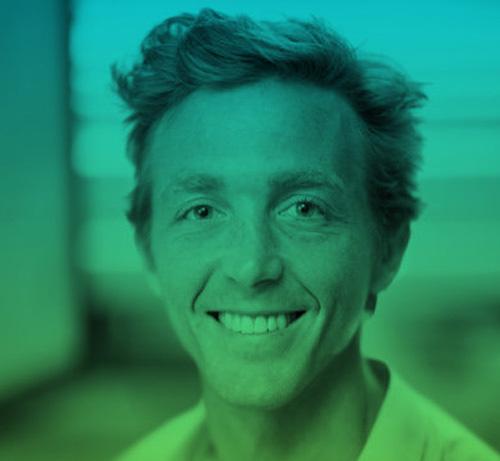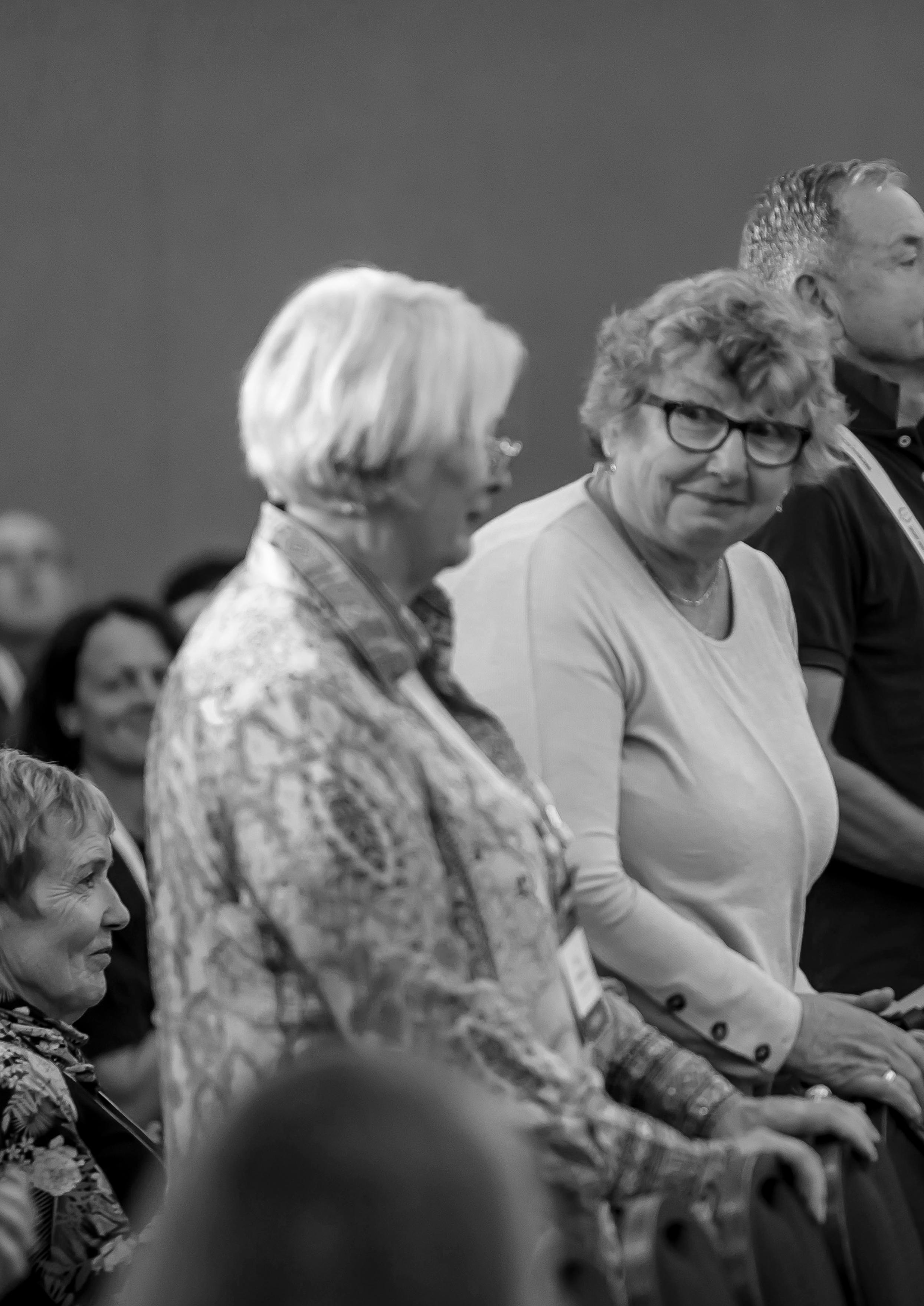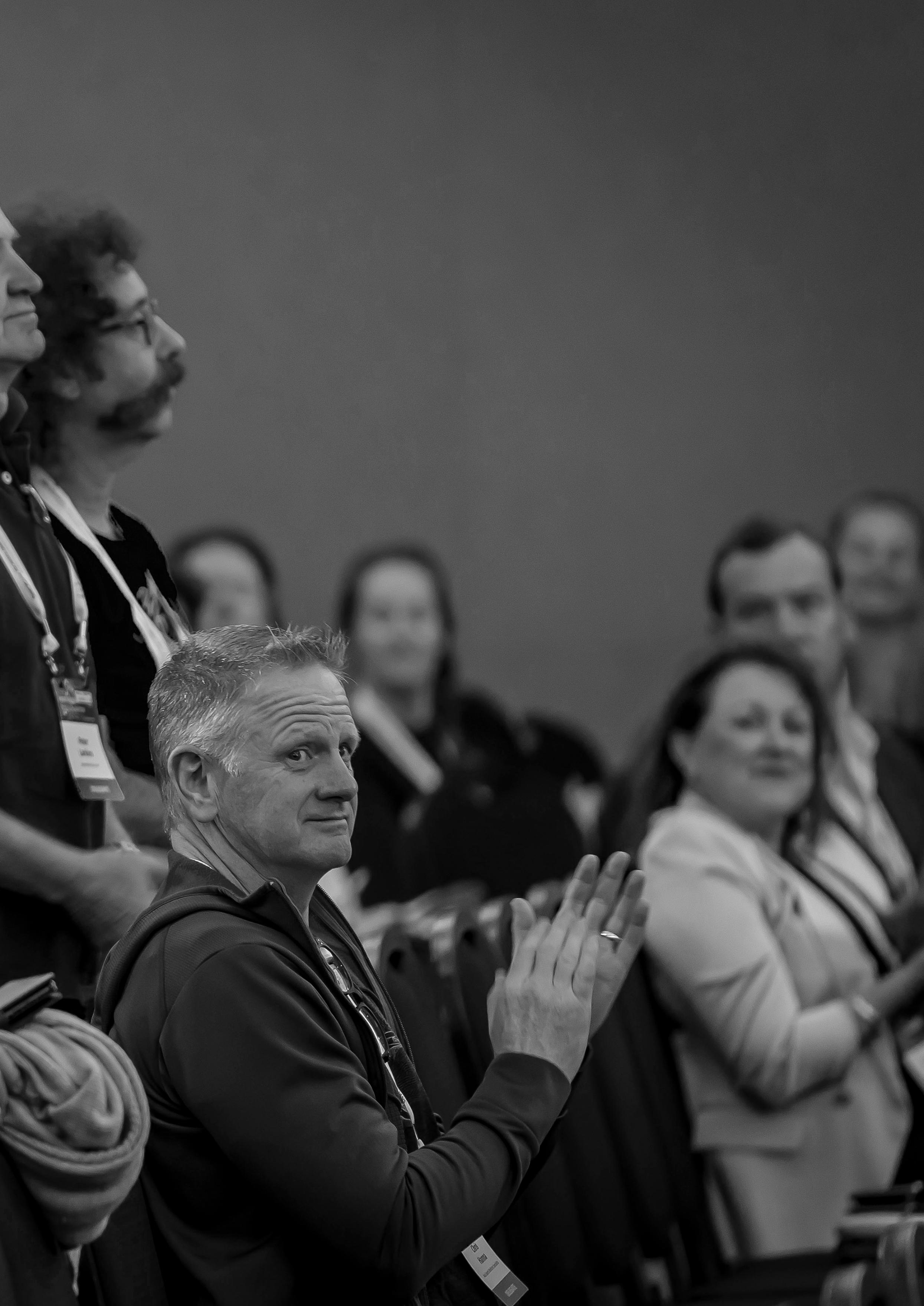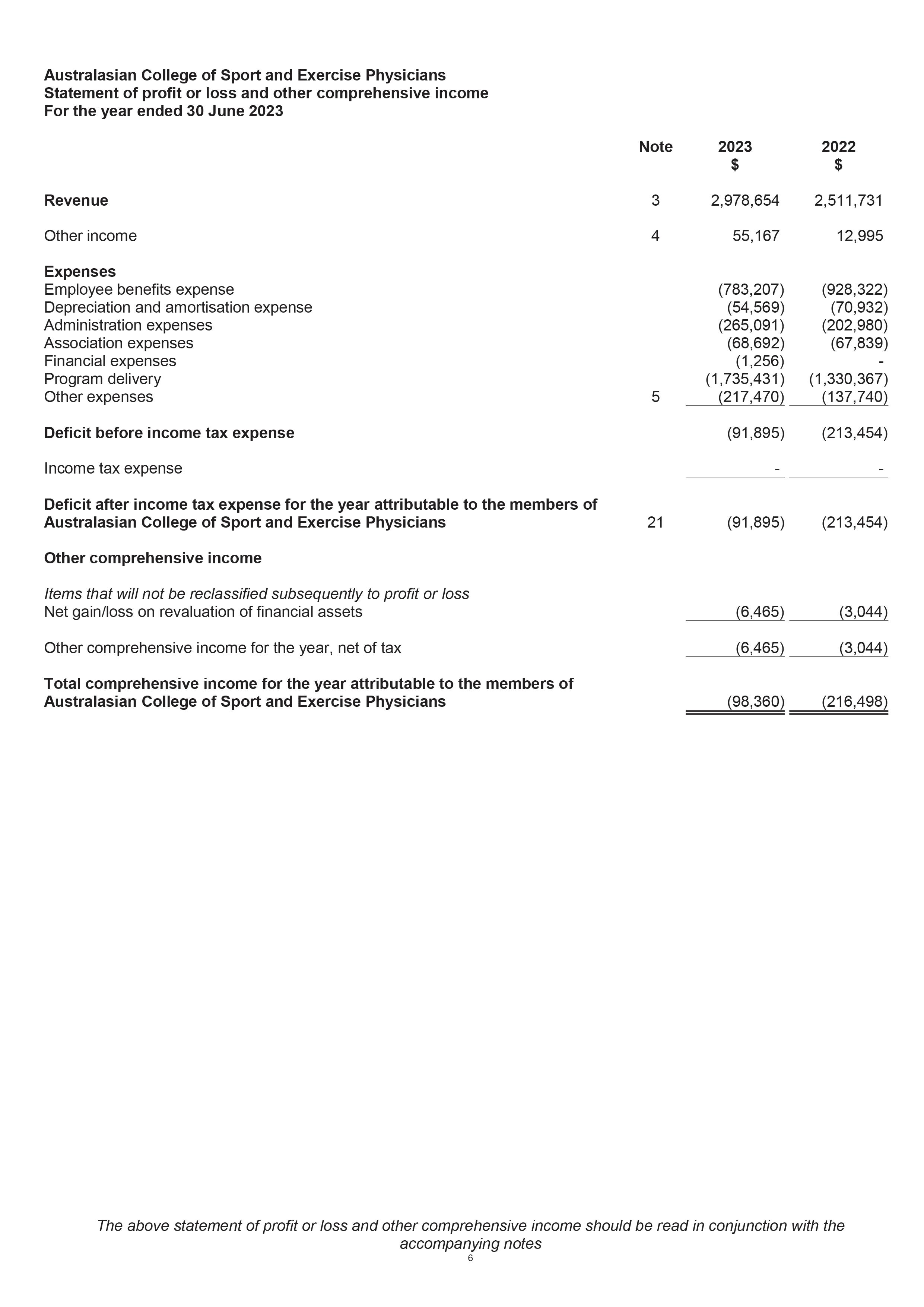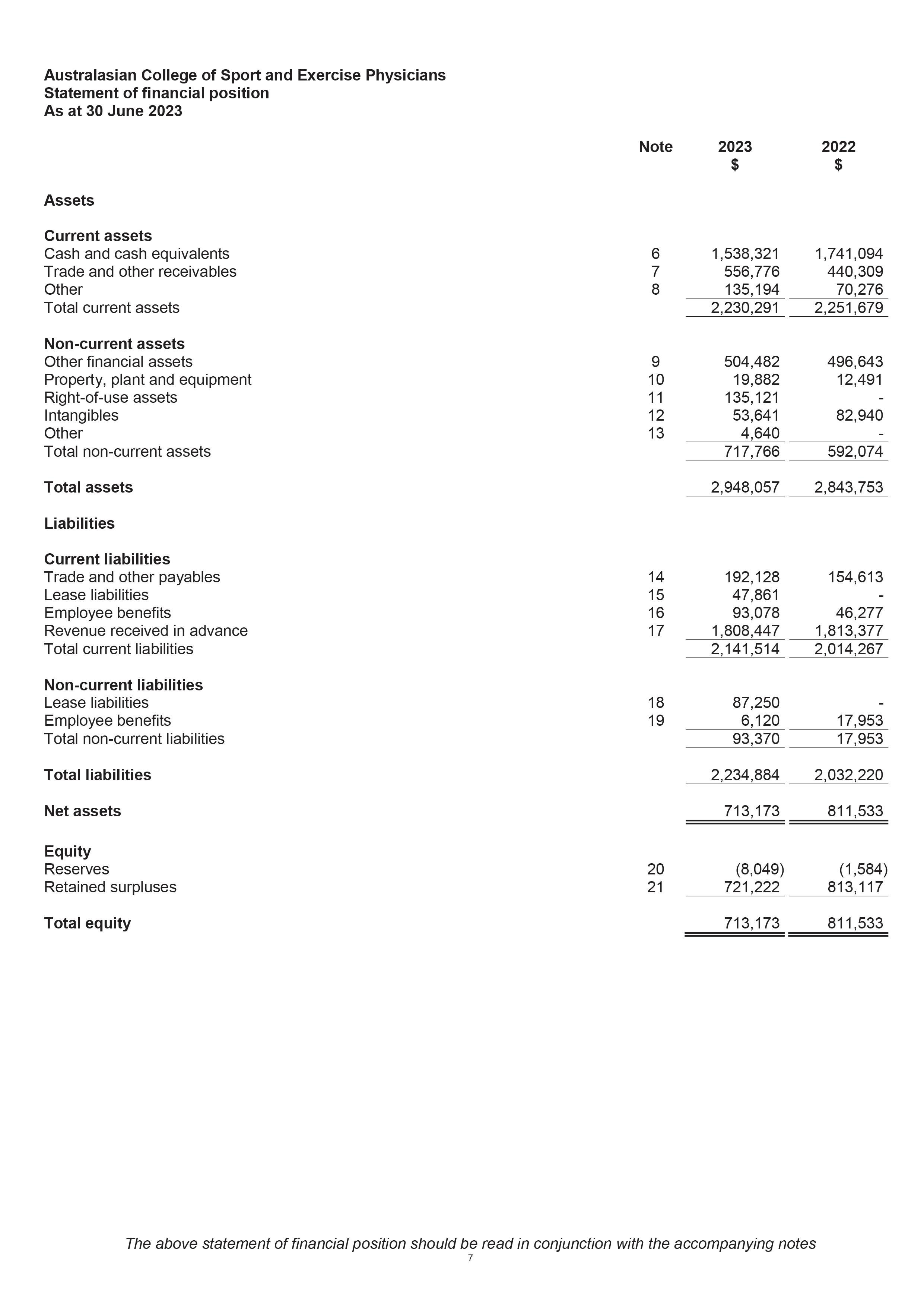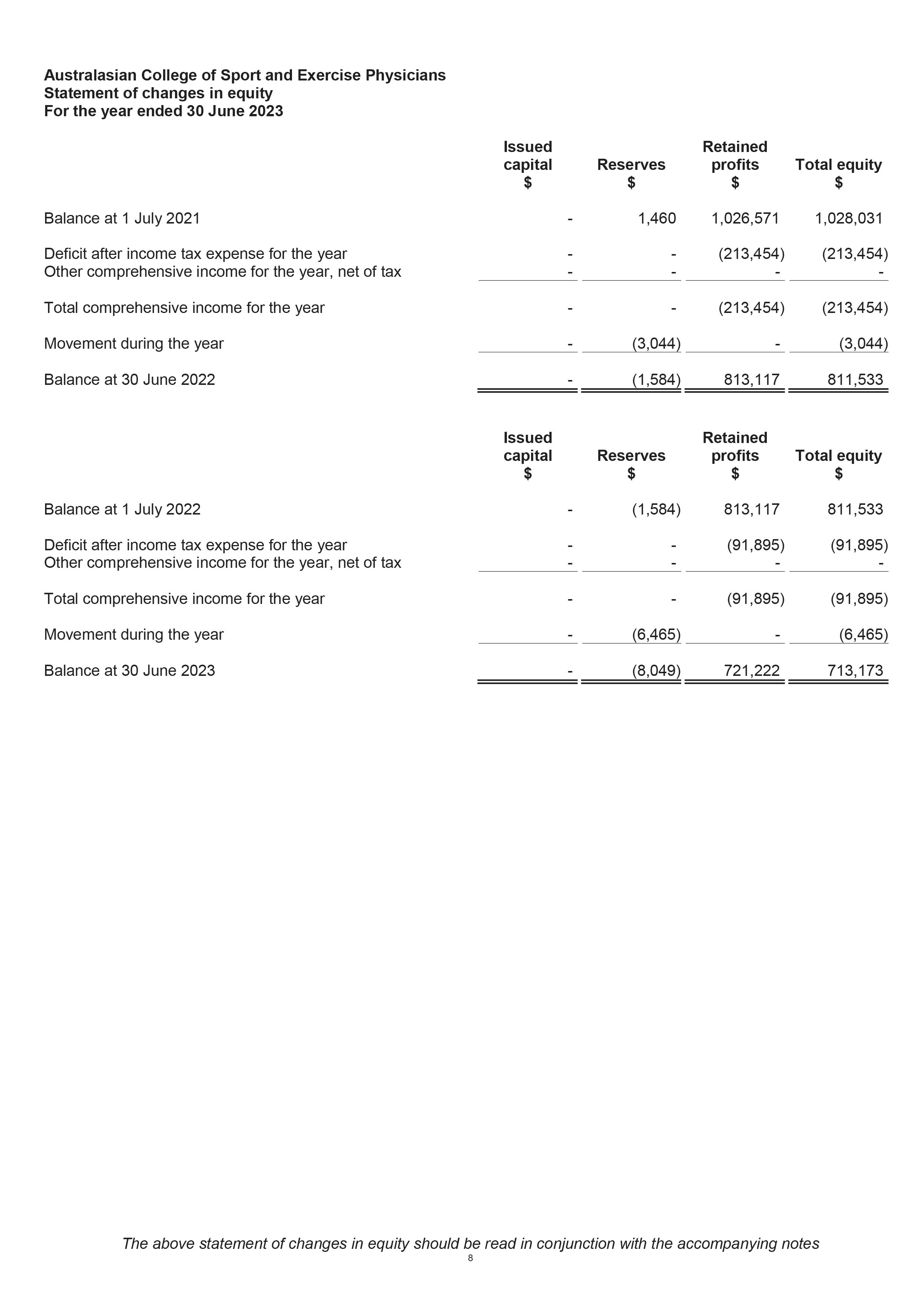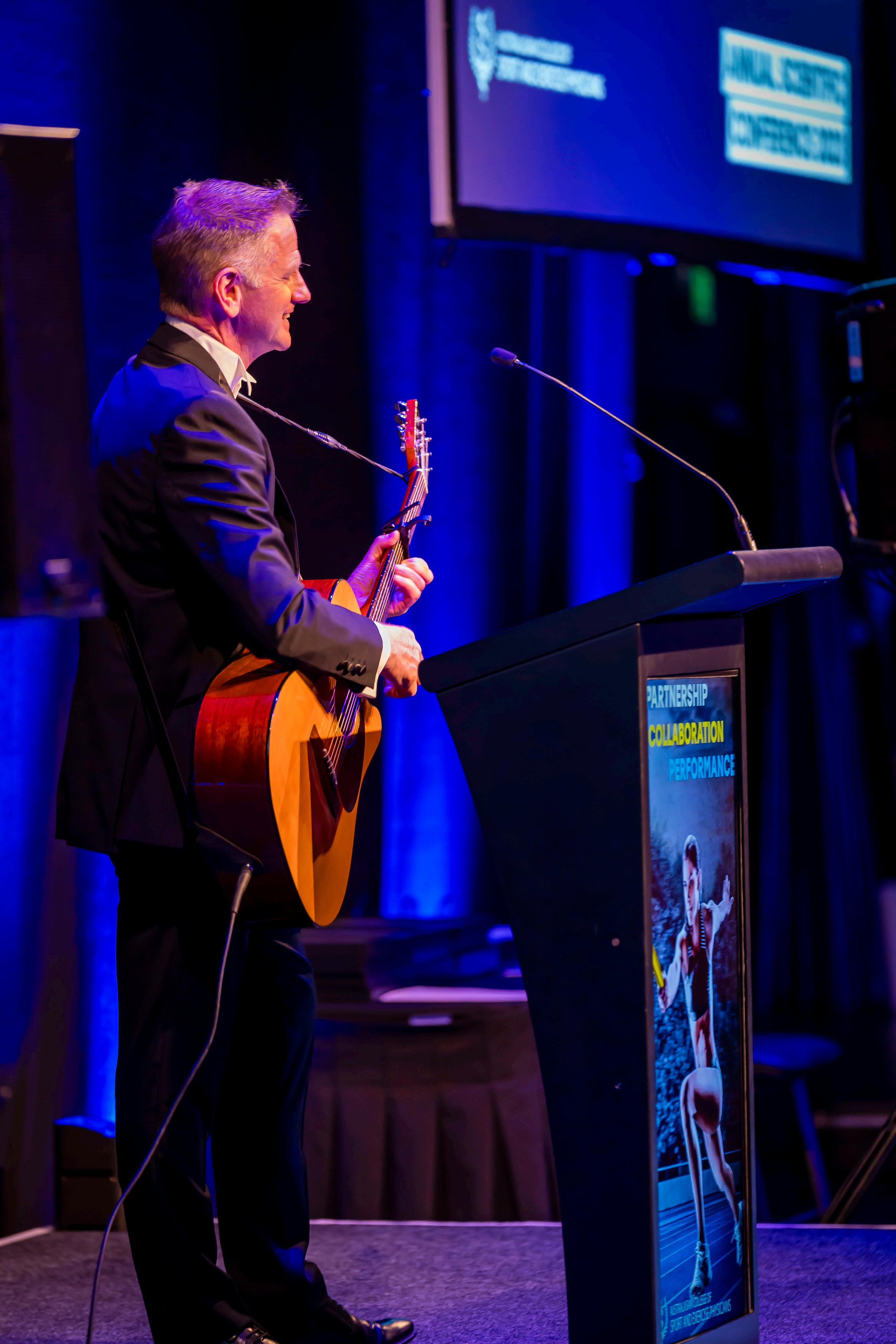
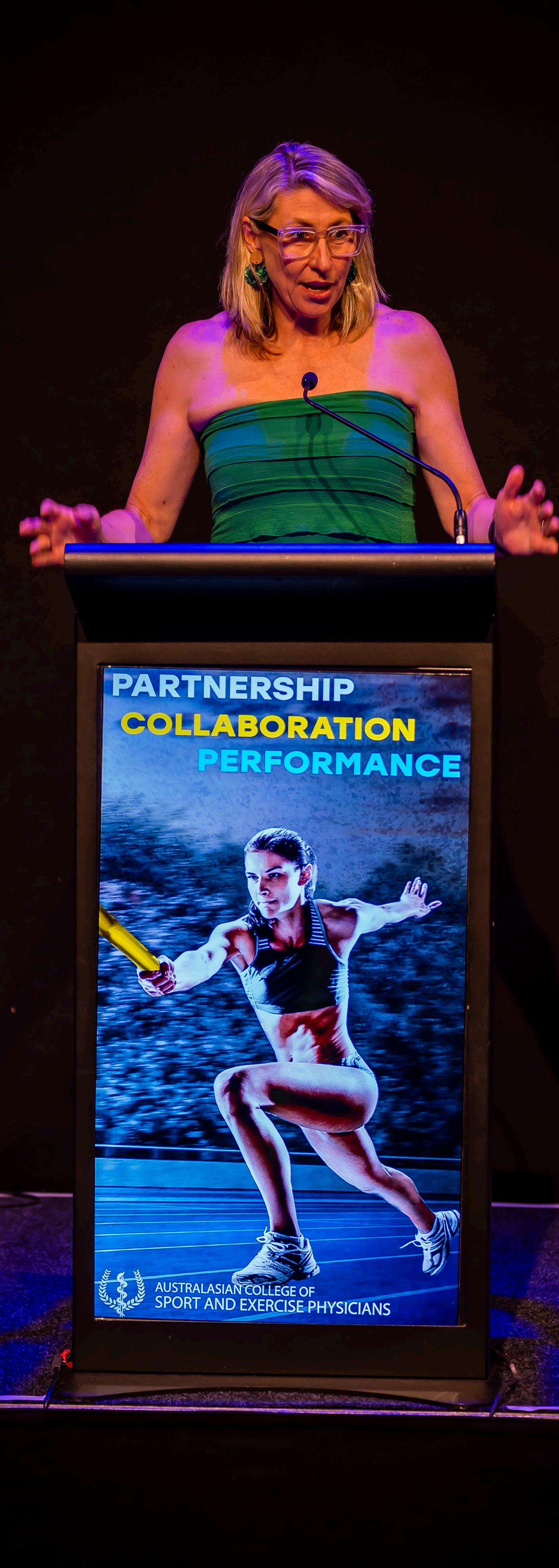





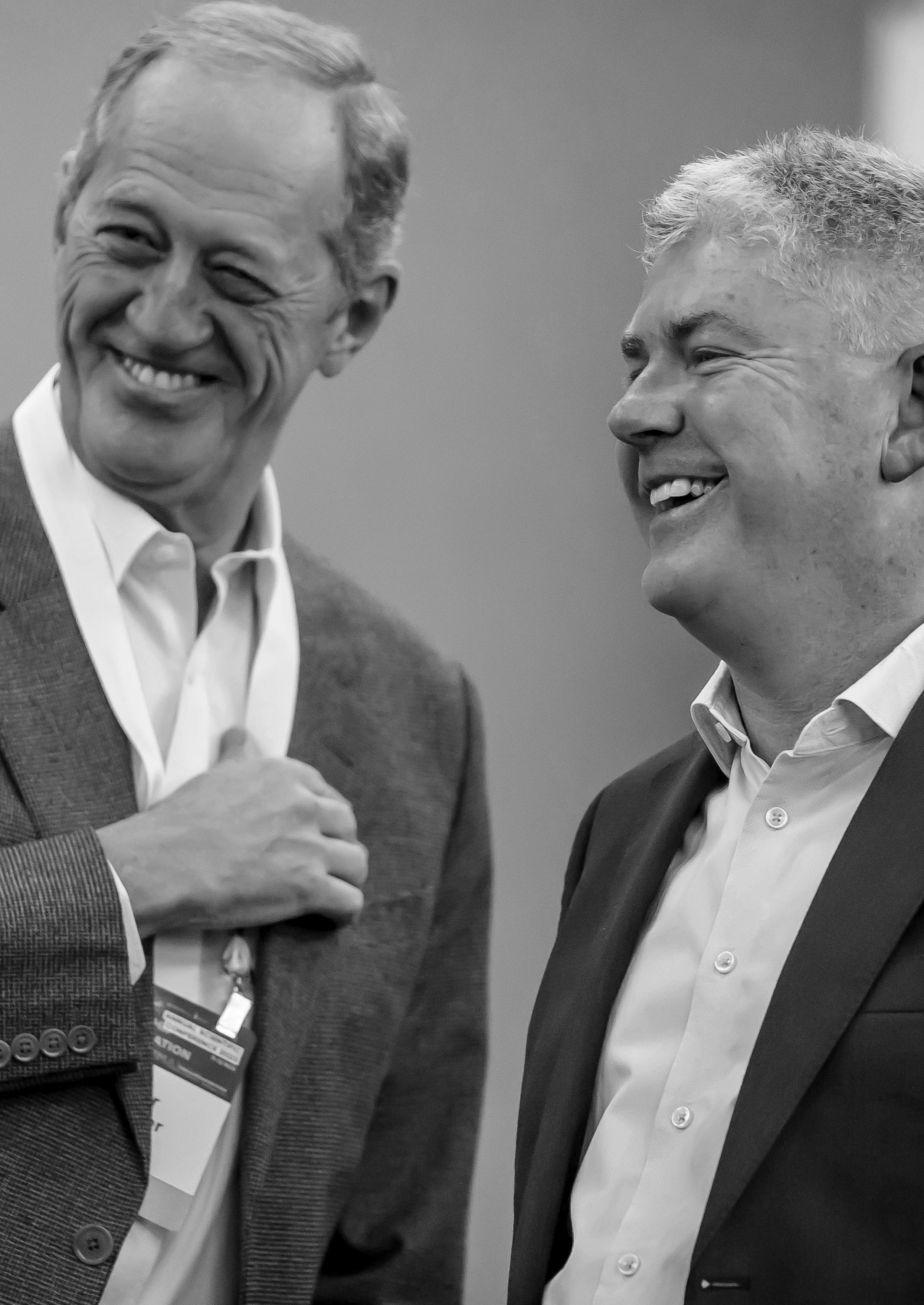
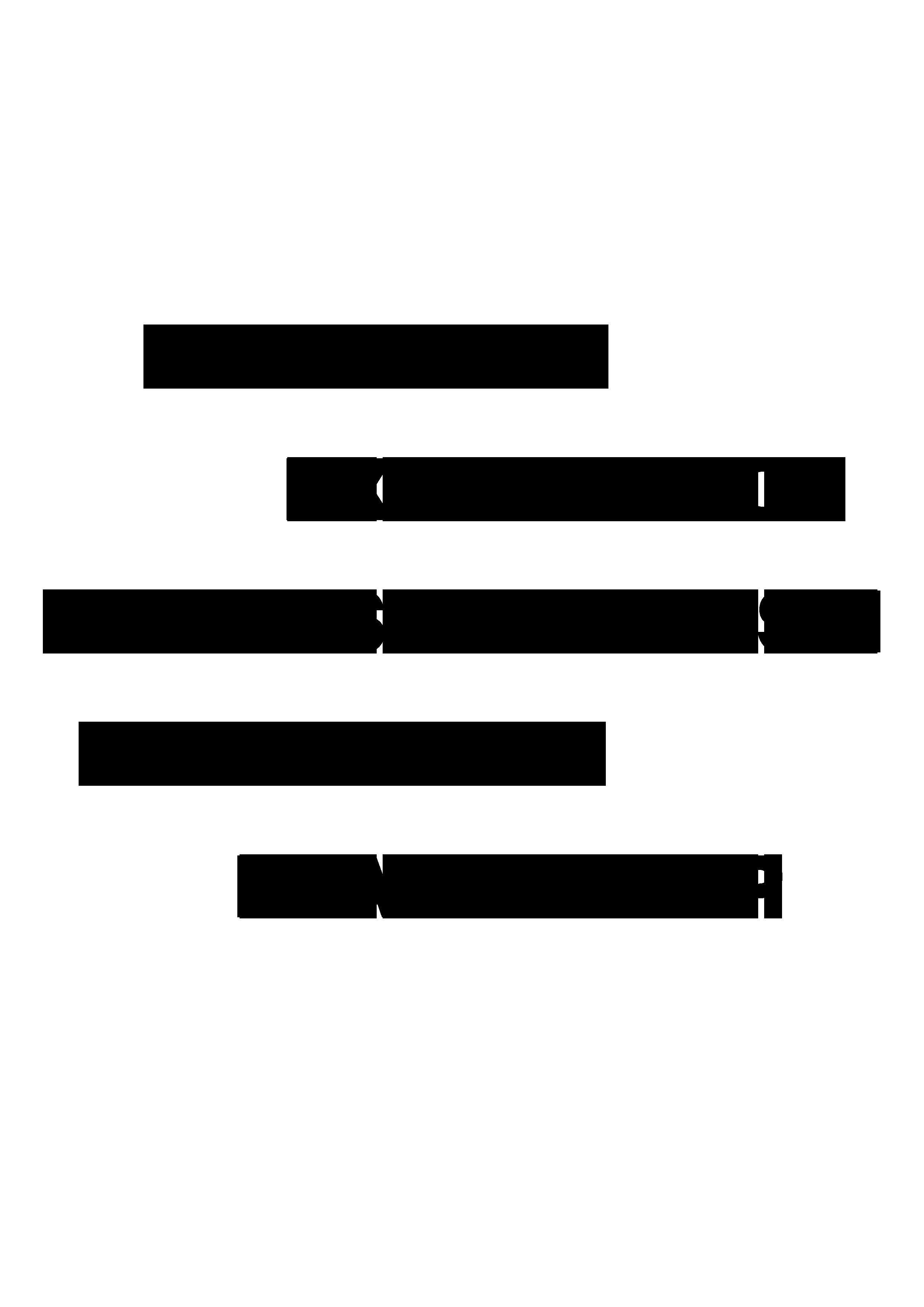
THE ACSEP ACKNOWLEDGES THE WURUNDJERI PEOPLE AS THE TRADITIONAL OWNERS OF THE LAND ON WHICH OUR NATIONAL OFFICE STANDS. WE PAY OUR RESPECT TO ABORIGINAL AND TORRES STRAIT ISLANDER CULTURES; AND TO ELDERS PAST AND PRESENT.
To set and maintain a standard of excellence in the practice of sport and exercise medicine
The ACSEP is the pre-eminent professional body representing Sport and Exercise Physicians and Sport and Exercise Medicine in Australasia. The ACSEP is dedicated to providing a robust training experience for its Registrars whilst advancing the skills of its members through evidence based practice.
Sport and Exercise Physicians are committed to excellence in the practice of medicine as it applies to all aspects of physical activity. Safe and effective sporting performance at all levels is a major focus. Alongside this is the increasing recognition of the importance of exercise in the prevention and treatment of common and often serious medical conditions, such as arthritis, heart disease, diabetes and many cancers.
The goal of all Sport and Exercise Physicians should be to facilitate all members of the community to enjoy exercise safely to 100 years and beyond, knowing that physical activity provides them the ‘best buy’ to prevent chronic disease.
To provide and promote excellence in training and continuing professional development of Sport and Exercise Physicians in Australia and New Zealand.
OUR VISION
To provide world’s best practice with regard to training, standards and research in the specialty of Sport and Exercise Medicine.
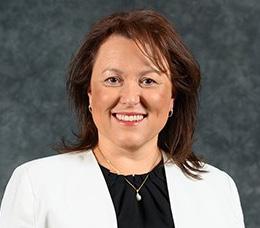
This year has been a busy year for the ACSEP College and Board. We have seen good progress against the 20222025 strategic plan key strategic priorities: Member Experience and Engagement; Education and Training Excellence; Advocacy and Awareness; Stakeholders, Partnerships and Alliances and Organisational Resilience. The board and staff are committed to ensuring that we meet the KPIs we have set for the strategic plan, and at each board meeting this year we have had deep dive discussions on the strategic priorities.
During 2023 we spent considerable time on a governance review of the ACSEP committee structure and operations. This was after the board received feedback from both the committees and staff around a number of aspects where there were opportunities for improvement. At last year’s conference, the board committed to undertaking a full review which has now been completed with the new committee structure approved. The review process was detailed and involved considerable consultation, and we thank the many people who took part in this important piece of work. During 2024 the board and staff will focus on
the implementation of these changes which will reduce the overall number of committees and assist in clarifying the responsibilities and formalising the appointment processes.
The college greatly appreciates those Fellows and Registrars who volunteer their time on our committees. Without this, we would not be able to operate as a medical college. I would like to thank all committee chairs and members and others who have given their time throughout 2023. I hope that many of you will consider continuing or starting to be involved in our various committees as we implement the new structure in 2024.
One committee that has already seen considerable change in recent months is our IHAC committee. The board welcomed two new co-chairs to the IHAC, Nat Anglem and Donna Burns (who is also the CEO of the Australian Indigenous Doctors Association). We are very pleased that they have agreed to take on these important roles, and recently they have
The college greatly those Fellows and who volunteer their committees. Without would not be able as a medical college. “
taken the time to re-write the IHAC Terms of Reference and provided key advice to us on important issues. One of these issues was the Australian Voice to Parliament Referendum which resulted in the ACSEP board’s position statement. The board is very committed to supporting Indigenous health and to ensuring that the ACSEP is supportive and safe for all Indigenous peoples, and we are continually working to make improvements to ensure we are progressing in this area.
I would like to thank my fellow board members, and staff for their hard work during 2023, in particular Mark Fulcher who is stepping down as President. Mark has been incredibly committed to his work as President and I have really appreciated his support and counsel. Importantly, we have seen significant progress with our MRAC application in recent months and Mark has been instrumental in this area. I warmly welcome Dr Corey Cunningham as our incoming President and look forward to a busy and successful 2024 for the ACSEP.
greatly appreciates and Registrars their time on our Without this, we able to operate college.
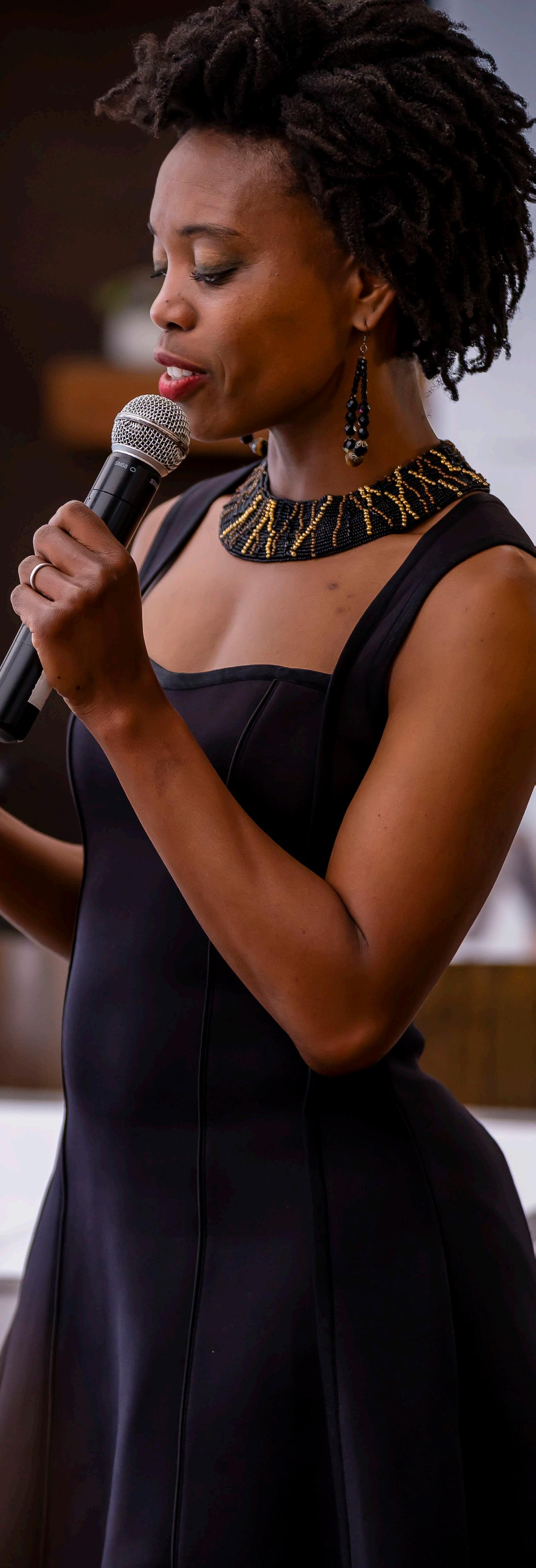
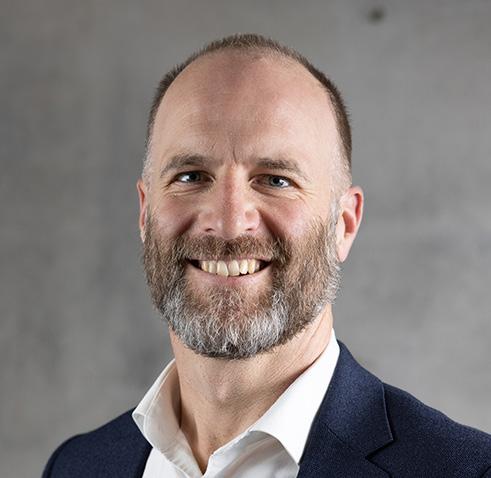
With the end of 2023 came the completion of my term as ACSEP President. I would like to thank you all for your confidence in me and welcome Corey Cunningham into the President role. I am looking forward to continuing to advocate for the ACSEP in my role as Immediate Past President, but after almost three years as President I am looking forward to Corey taking charge! Since I wrote last year’s Year In Review report there has been some significant positive change within the College. We have a new permanent home and have filled a number of key roles within the National Office with excellent candidates. Saranne Cooke has finished her first full year as Board Chair and we have welcomed a dynamic group of new board members, including Dan Exeter, Pip Inge and Rachel Harris. Ione Patten also joined the board as our Registrar Representative in late 2023, replacing Alice McNamara who served an extended term in this role and was an excellent contributor to the Board. Overall, I believe we have an excellent leadership team and are very well placed to continue to grow and develop in 2024.
As most of you are probably aware, a major task for 2023 was the completion of a formal governance review. This was an extensive process that involved engagement with an external consultant as well as wide consultation with the membership, National Office staff and some external stakeholders. The purpose of the review was to try to ensure that we are getting the best value for our members’ time, that we are making decisions that are aligned with our strategic plan and to strengthen the reporting and communication between the committees and the board. We now have five key committees, supported by a number of working groups. We are actively looking for members who can help support these committees and groups and I would encourage you all to consider how you might be able to support the work of the ACSEP.
Much of my focus in 2023 was on advocating for better MBS item numbers. After making an initial submission to the MBS Review Committee in January, we were finally able to present our case to the Committee in November. Kate and I travelled to Canberra to present in person, explaining why we believe that our MBS item numbers needed review including the direct impact that the current provider numbers have had on our patients, the membership, and the College as a whole. We have asked the committee to award us consultant physician-equivalent rebate numbers, as they have previously done for addiction and sexual health medicine. Unfortunately, despite getting overwhelmingly positive feedback during the meeting, we have been told that we need to wait until their next meeting (in early March) to get feedback on our proposal. During our presentation I was able to reference research that some of
our registrars have conducted, directly demonstrating issues relating to the current funding models as well as the work that we do. For example, Dr Lincoln Wharetohunga has investigated the ethnicity and socioeconomic status of a large cohort of patients presenting to SEPs while Dr Brendon Aubrey has conducted a qualitative study looking at the referral patterns of various clinician groups to SEPs. The data from these projects was extremely valuable and allowed us to demonstrate the potential impact that low rebate numbers have had on our patient population as well as being able to define the service gap, the place in the medical landscape, that ACSEP Fellows fill. I would encourage you all to activity consider how you can demonstrate the value of your work, as well as the value of the ACSEP as a whole.
There were a number of fantastic sporting performances and events on both sides of the Tasman during 2023, with ACSEP Fellows and members again featuring prominently. The highlight for me personally was the FIFA Women’s World Cup. It was amazing to see
attendance records smashed week after week in both Australia and New Zealand, often with matches being held mid-week and that did not feature the home teams. The ACSEP was represented very strongly with Fellows and Registrars serving as team physicians, as members of the local organising group and as FIFA representatives.
Finally, as I mentioned to you during my opening address in Wellington, we need to continue to promote our College and the work that we do. It has been clear during my term as President that we are a very small group and that there is a lack of understanding about what we do by much of the sector. It is critical that we are all do as much as we can to showcase our specialty. While there is a lot of work that we are doing at a national level we all need to do this work. Remember we are Sport and Exercise Physicians, not sports physicians or sports and exercise medicine physicians (or any other variation of these terms). I urge you all to have a look at what your business card or website refers to you as and update this if it’s not correct!
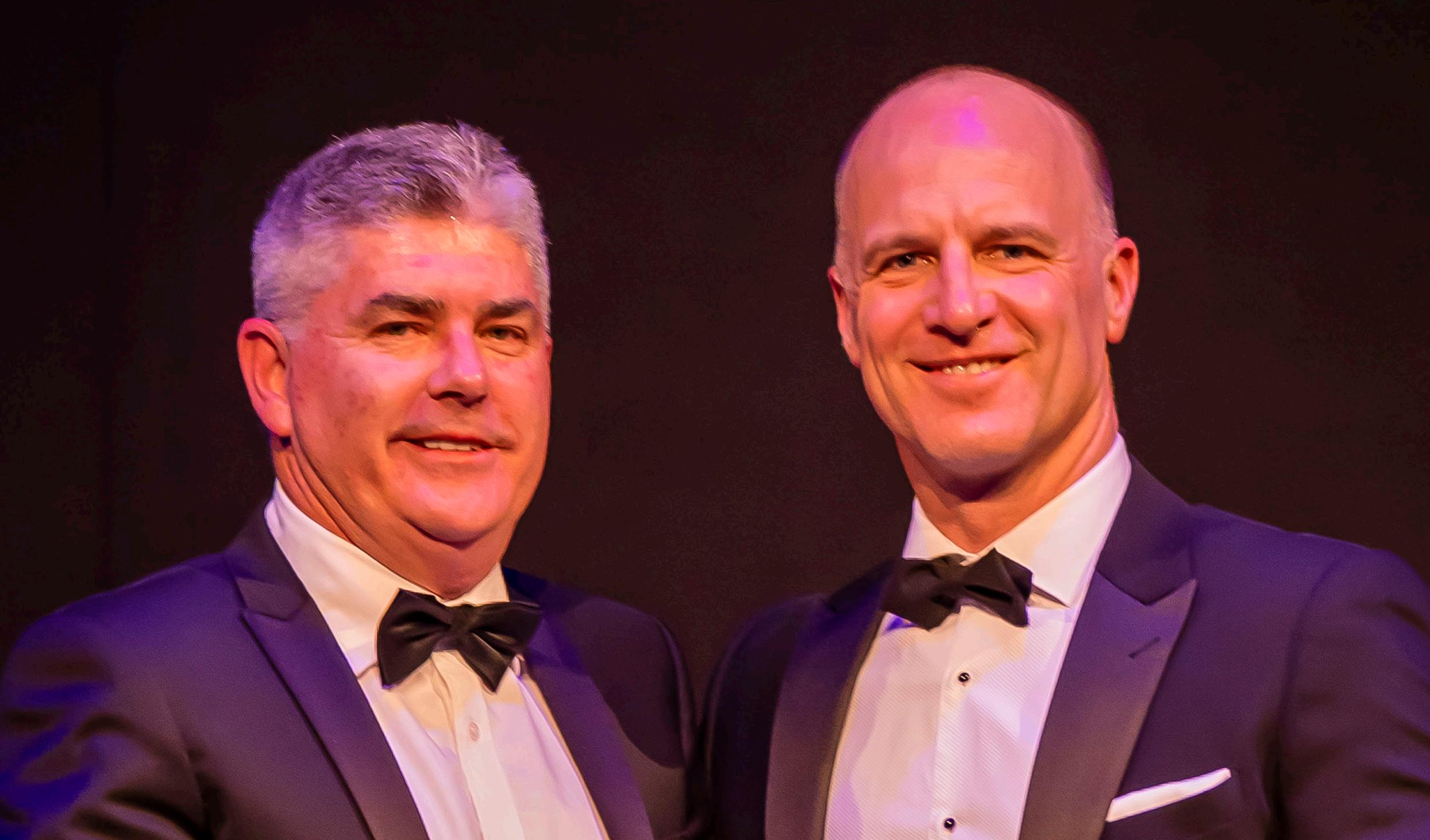
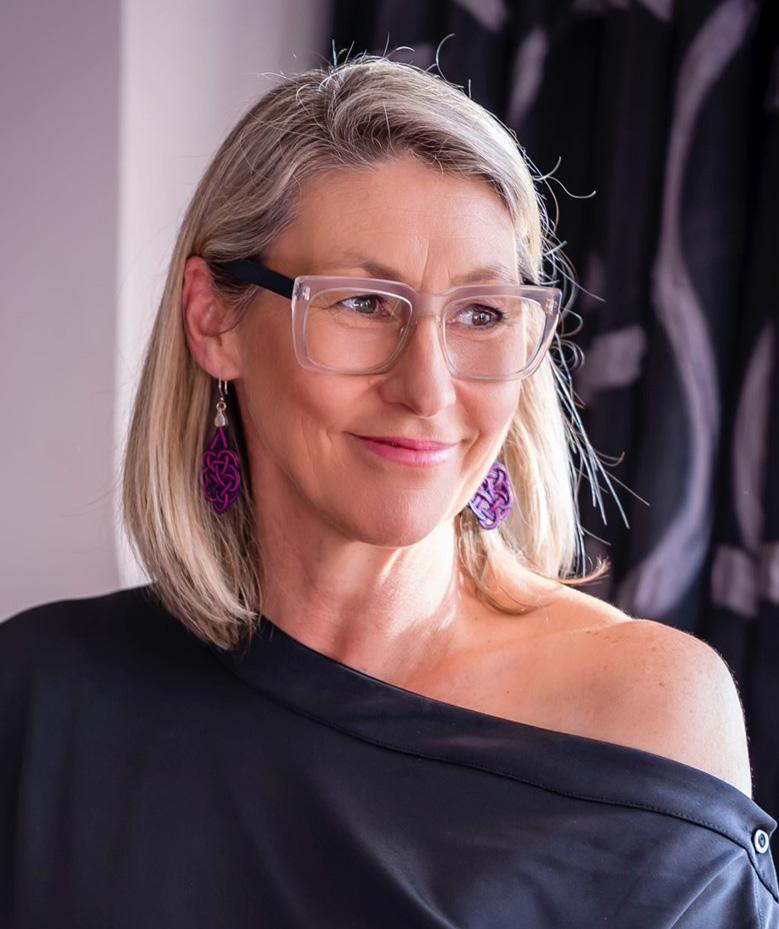
As we reflect on the achievements and progress of the Australasian College of Sport and Exercise Physicians (ACSEP) in 2023, it is with great pride and gratitude that I share our accomplishments with you. It has been another busy year, with the ACSEP continuing to deliver outcomes that exceed expectations despite our lean resources. Here are the highlights of our endeavors:
1. Advancements in ACSEP MRAC Submission:
Our dedicated efforts to obtain access to more appropriate Medicare Benefits Schedule (MBS) item numbers for Fellows has been extensive and ongoing. The ACSEP submission to the Medical Review Advisory Committee (MRAC) aims to confirm that ACSEP Fellows are indeed consultant physicians, ensuring improved and equitable accessibility to vital services for patients while enhancing the sustainability of our profession. More
recently, this process has been promising and I am hopeful that a positive outcome is forthcoming in 2024.
2. Increase in SEM Academy Membership and Partnerships:
2023 witnessed a notable increase in membership within the SEM Academy, underscoring the growing recognition and relevance of ACSEP’s online education. Additionally, we forged valuable partnerships with key international member organisations, amplifying our reach and impact within the SEM global community and forging opportunities to collaborate beyond the online platform.
3. Commitment to Compliance:
2023 saw the introduction of stringent compliance requirements outlined by various regulatory bodies, including recommendations from the Kruk report and the National Health Practitioner Ombudsman and various changes due to the AMC introduction of CPD Homes. Meeting milestones with compliance has been instrumental in ensuring our continued credibility and effectiveness as a small, yet emerging medical college.
4. Enhancements to Cultural Safety:
ACSEP prioritises cultural safety within our organisation. In 2023, we actively participated and collaborated in the Australian Indigenous Doctors’ Association (AIDA) SRSA workshops, with the ACSEP Board and National Office team also undertaking the AIDA Cultural Safety training. Furthermore, our participation in the monthly Council of Medical Colleges (CMC) Cultural Safety Rōpū and enhancements to policies and supports within ACSEP have been instrumental in improving cultural safety within our organisation.
ACSEP acknowledges the fiscal challenges inherent in running a medical college, especially within an environment of high inflation and increasing costs. Despite these challenges, we remain committed to financial prudence and sustainability. We are hopeful to return to profitability in the 2023-2024 financial year through diligent financial management and strategic initiatives.
6. Active Participation and Collaboration with CPMC and CMC:
Throughout the year, ACSEP actively contributed to multiple Council of Presidents of Medical Colleges (CPMC) meetings, providing insights and expertise on matters of collective importance. Additionally, collaborative efforts with the Council of Medical Colleges (CMC) in New Zealand have strengthened regional ties and facilitated knowledge exchange, aligning with recommendations from regulatory bodies and advancing cultural safety initiatives in both countries.
7. Recruitment for National Office Team:
Building a cohesive and dynamic National Office team has been a priority for ACSEP. Rigorous recruitment efforts have resulted in assembling a talented team whose diverse expertise and shared commitment to our organisational values position us for continued success and growth, meeting the requirements outlined by regulatory bodies and embracing cultural safety principles.
8. Successful Annual Scientific Conference in Wellington:
Despite global challenges, our team delivered an exceptional Annual Scientific Conference in Wellington, New Zealand, in collaboration with Sports Medicine New Zealand (SMNZ). The event served as a platform for knowledge
exchange, networking, and professional development, garnering widespread acclaim and further solidifying ACSEP’s reputation as a thought leader in the field. We were honored to feature international leaders such as Dr. Jon Drezner, whose insights enriched the conference and exemplified our commitment to showcasing excellence in sport and exercise medicine on a global scale.
9. Continued Advocacy for Funding for Registrars:
ACSEP remains steadfast in advocating for adequate training funding and support for Registrars in both Australia and New Zealand. Through targeted advocacy initiatives and collaborative partnerships, we continue to champion the needs and aspirations of emerging professionals, ensuring a robust pipeline of talent and expertise for the SEM community, while promoting the need to grow the workforce through equitable patient access to services.
In conclusion, 2023 was a year marked by significant achievements, steadfast commitment, and unwavering dedication to advancing the field of Sport and Exercise Medicine. As we look ahead, I am confident that the ACSEP will continue to thrive, innovate, and lead with excellence, meeting and exceeding the expectations set forth by regulatory bodies and fostering a culture of inclusivity and respect.
Thank you for your continued support and partnership in our collective pursuit of excellence.
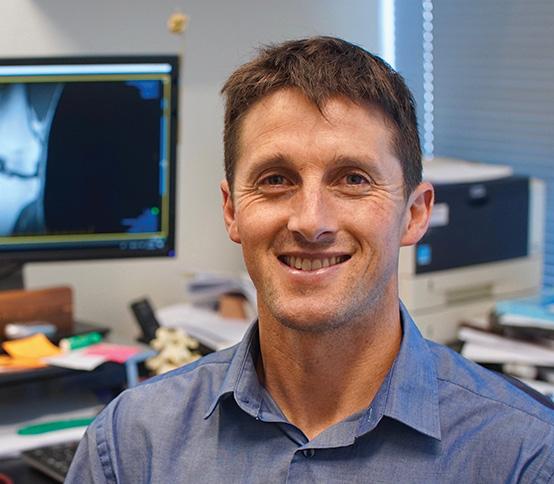
2023 saw a number of opportunities for NZ Fellows to contribute to the health landscape in a variety of areas.
Within the ACC we saw a significant change with Ian Murphy moving on in July and changing the college’s engagement with the corporation. Many thanks to Ian for the work that he did over many years between the ACC and the ACSEP.
Engagement with ACC remains a focus for the college as the landscape continues to change. The development of packaged care continues, and I am very grateful to those of our Fellows who have been working on promoting the college role in this space, where we certainly have a contribution to make.
As the NZ rep, I have also been regularly attending CMC meetings and one of the biggest successes in that space was the launch of the cultural safety framework. The CMC has continued to develop as a credible and unified medical voice in the NZ political sphere and the college involvement in that has been a good way of promoting the ACSEP, as well as staying connected to the other specialties and our common issues. One collaborative focus continues to be the few colleges that are self-funded with regard to Registrar training, and we continue to work collaboratively on sources of funding for the medical workforce in training.
The ACSEP conference was a great success, and huge thanks must be extended to Dr Brendan O’Neil and the entire conference team who put together a wonderful event.
Congratulations to the new NZ Fellow for 2023, Colleen Winstanley.
Finally, from November I have passed the Baton to Dan Exeter as the NZ rep for the ACSEP. With a change in government and an Olympic year there’ll be plenty to get stuck in to. Many thanks to the college Board, Mark and Kate for the support over the last few years.
With a change in government and an Olympic year there’ll be plenty to get stuck in to.
The Board are responsible for the organisation’s operations and strategy. They ensure that the various functions of the College have what they need to perform by upholding best-practice governance. Providing direction that enables the delivery of quality training and best care for members and their patients is core to the Board remit.
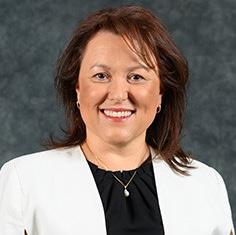
Dr Saranne Cooke Chair
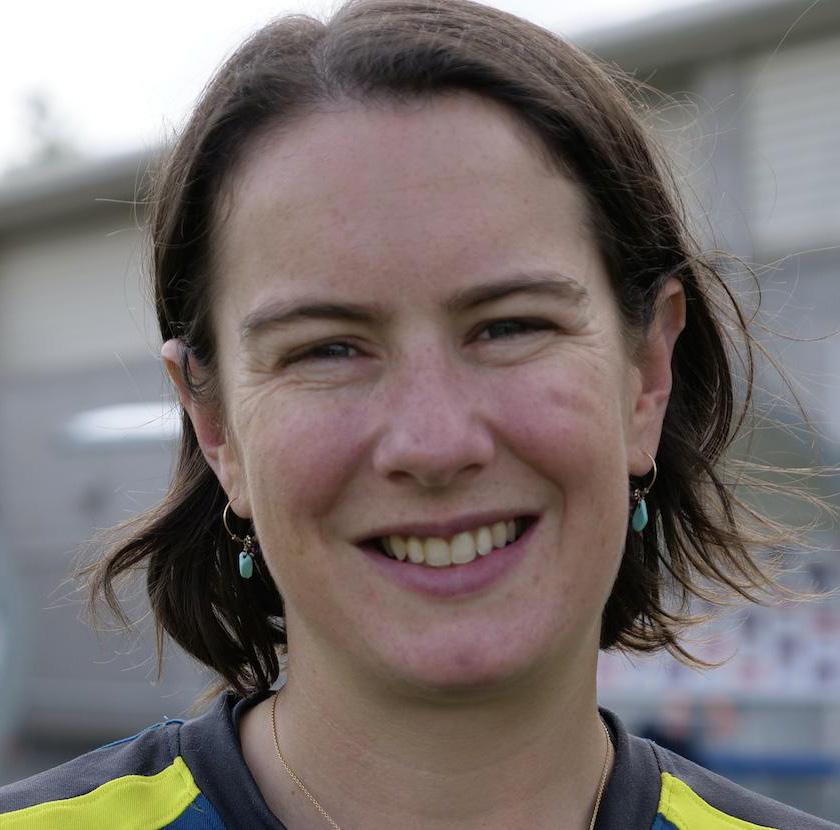
Dr Pip Inge Director
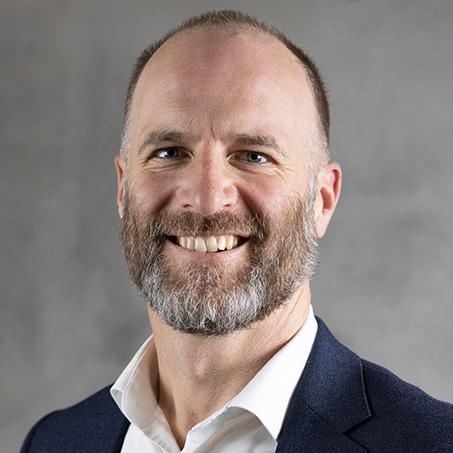
Dr Mark Fulcher President
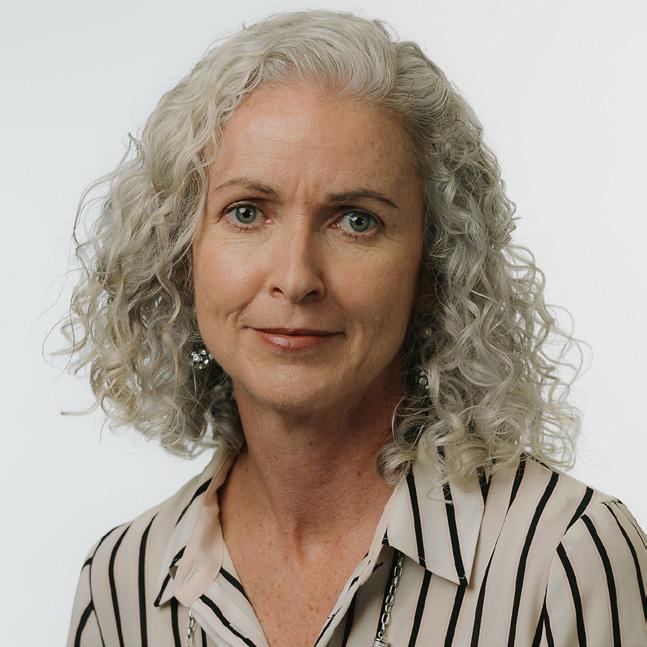
Dr Linda Swan Director
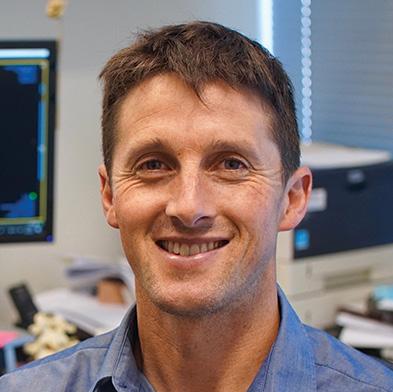
Dr Nat Anglem Director
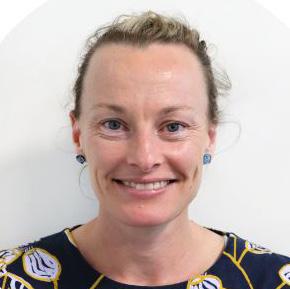
Dr Alice McNamara Registrar Representative
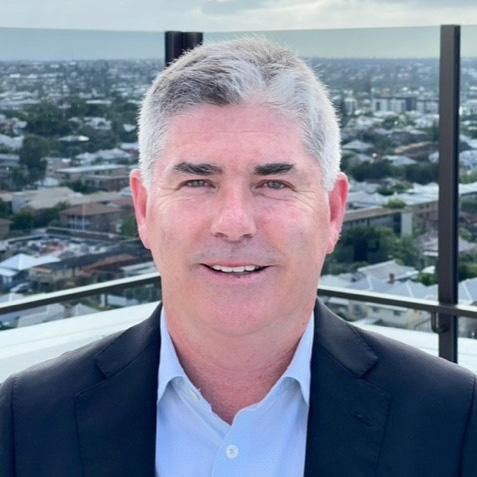
Dr Corey Cunningham President Elect
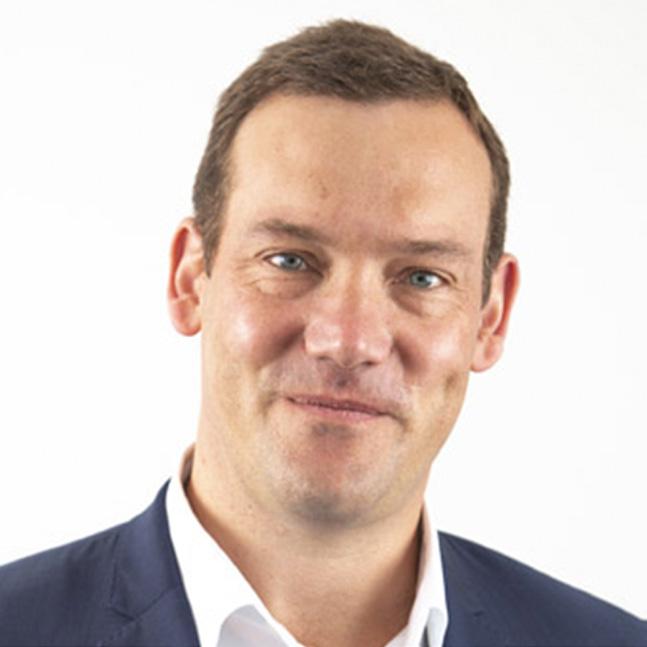
Calvert Director
PhilThe College is governed by the ACSEP Board of Directors, led by the Chair and President. As a small and growing College, the ACSEP membership provide invaluable and continued support to the growth and maturation of the College. Under the Board, key committees are chaired by
ACSEP Fellows, providing the framework for continued excellence for ACSEP as the leading Australasian authority in Sport and Exercise Medicine. Alongside the ACSEP committees many working groups provide further support within several key areas:
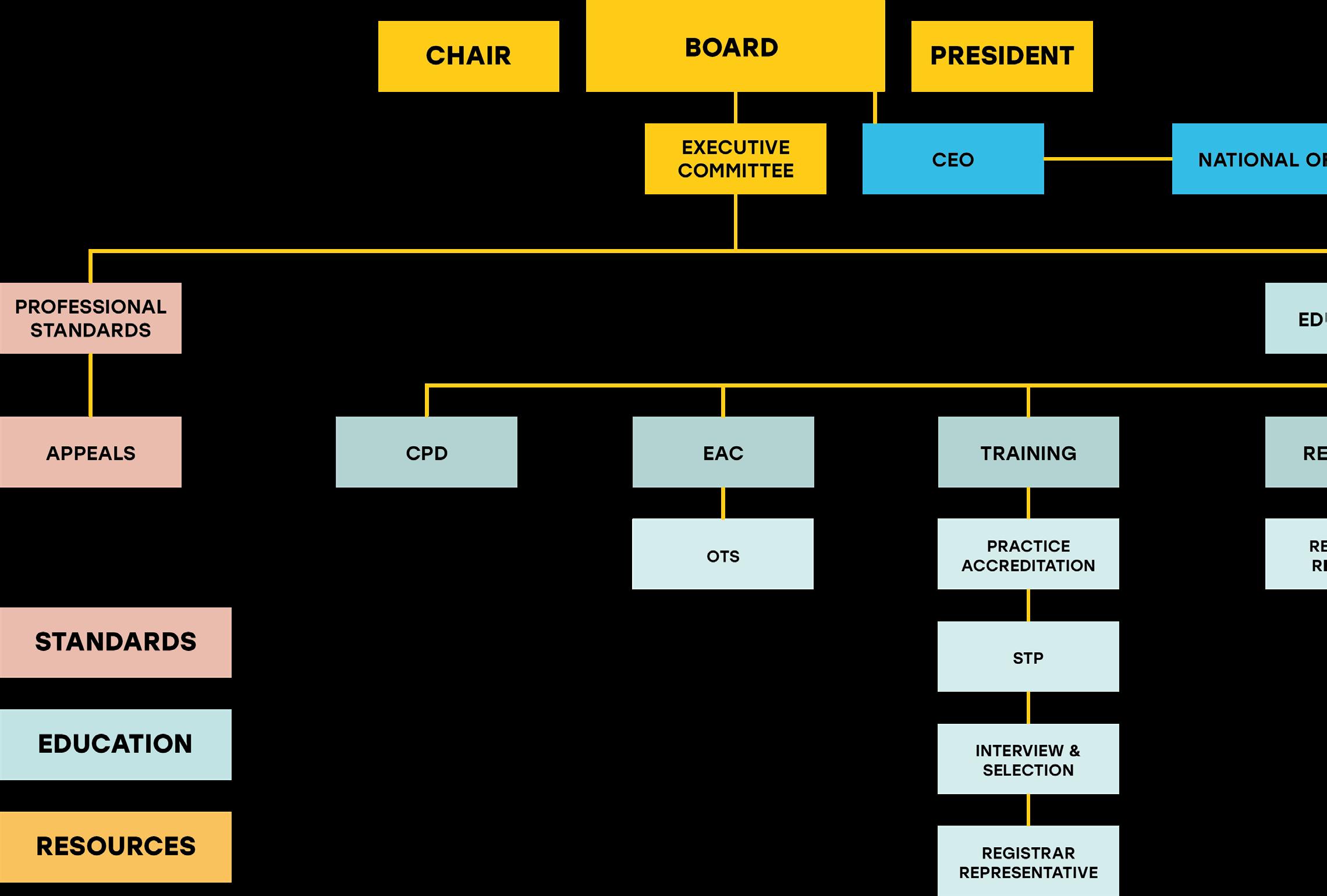
College Committees support the Board and are composed of members and chaired by Fellows. Committees connect the College to on-the-ground experts that offer knowledge and experience in reviewing and making recommendations on key functions of the College and topical issues in sport and health.
The National Office staff ensure that the operational needs of the College are met. Staff work together with members to provide specific business expertise such as finance, administration, project management, training and accreditation, research and marketing.
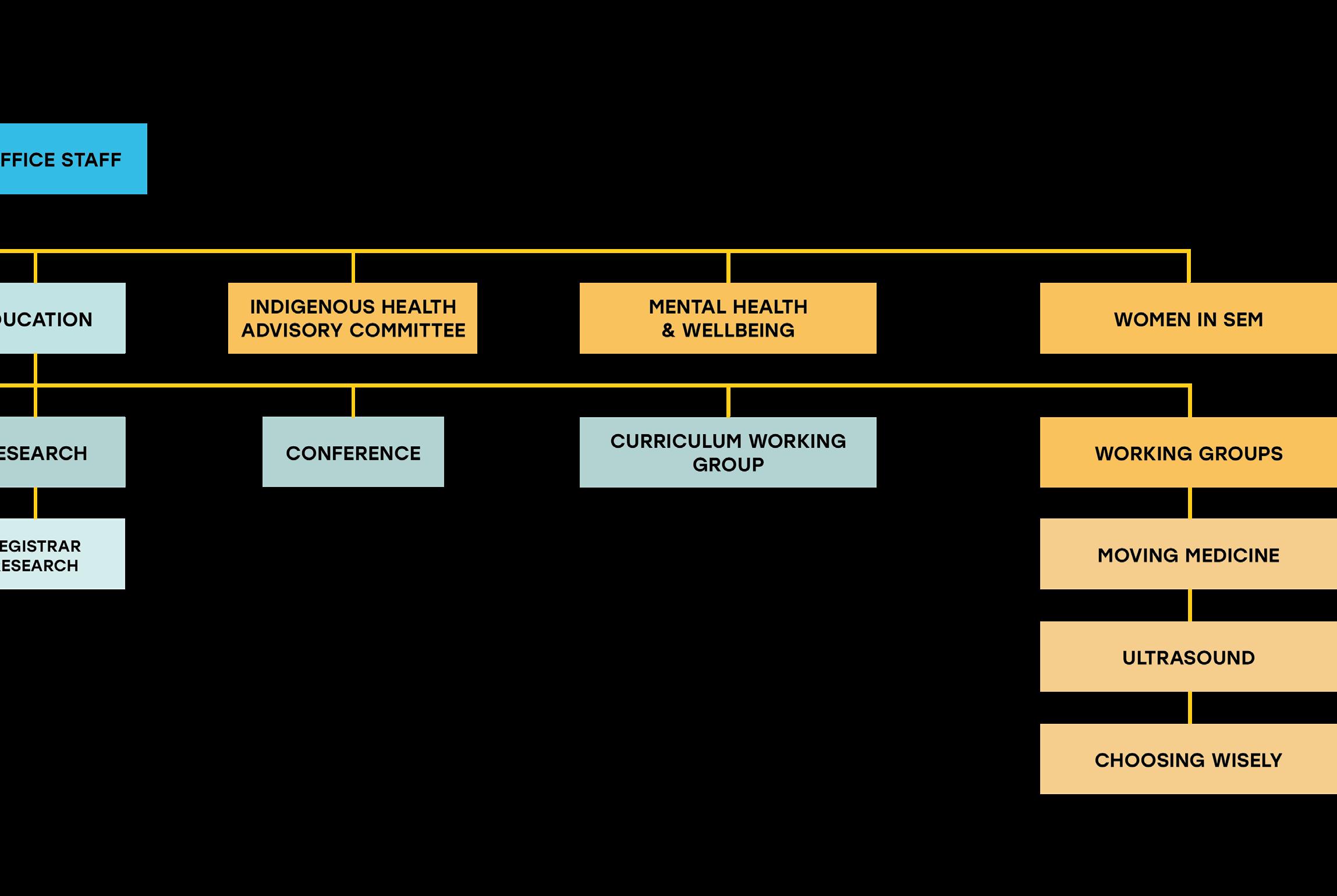
Our mission is to identify, set and maintain a standard of excellence in the practice of sport and exercise medicine which will drive best practise with regard to training, standards and research in the speciality.
The five strategic priorities are:
1 2 3 4 5
Deliver highly valued services to our Fellows and Trainees that further encourages their active involvement in College initiatives and activities.
Advance the quality practice of Sport and Exercise Medicine through innovation, evidence-based education, training and accreditation.
Promote Sport and Exercise Medicine as a specialist practice, body of knowledge and career.
Develop, sustain and enhance our stakeholder, partnership and alliance relationships.
Ensure effective governance, resourcing and investment in our people and processes.
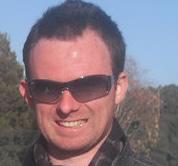
Dr Liam Geraghty
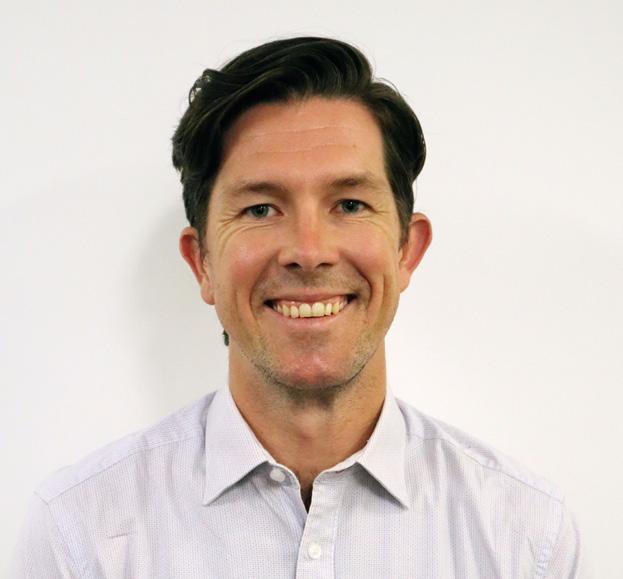
Dr Chris Hasenkam
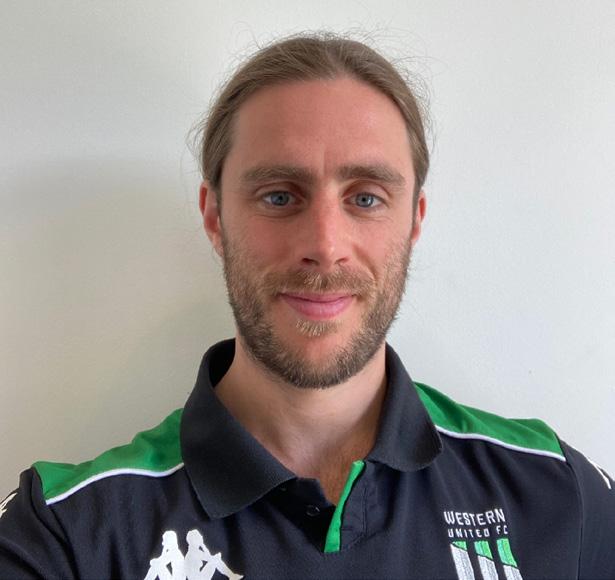
Dr Anthony Hipsley
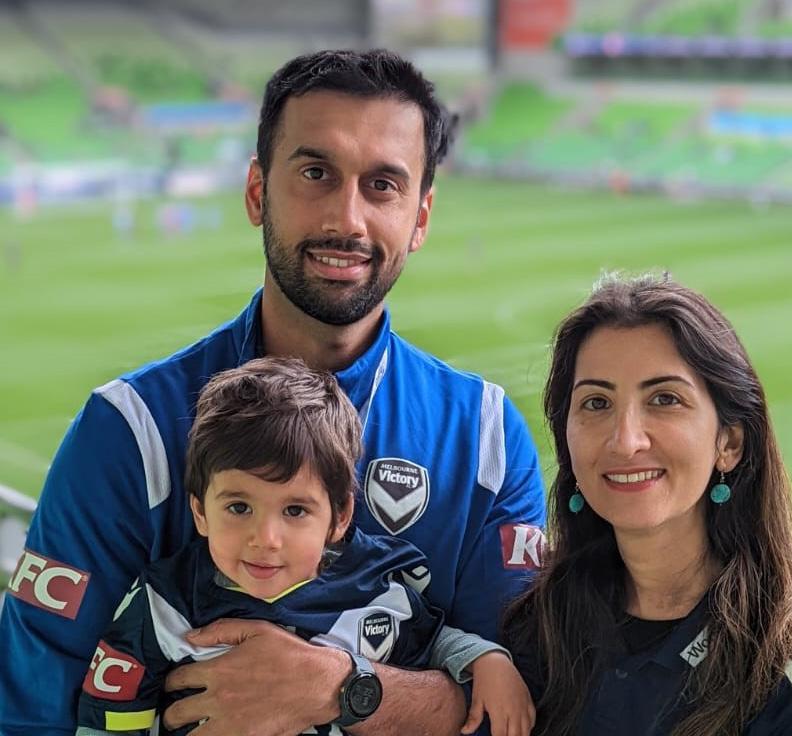
Dr Hussain Khan
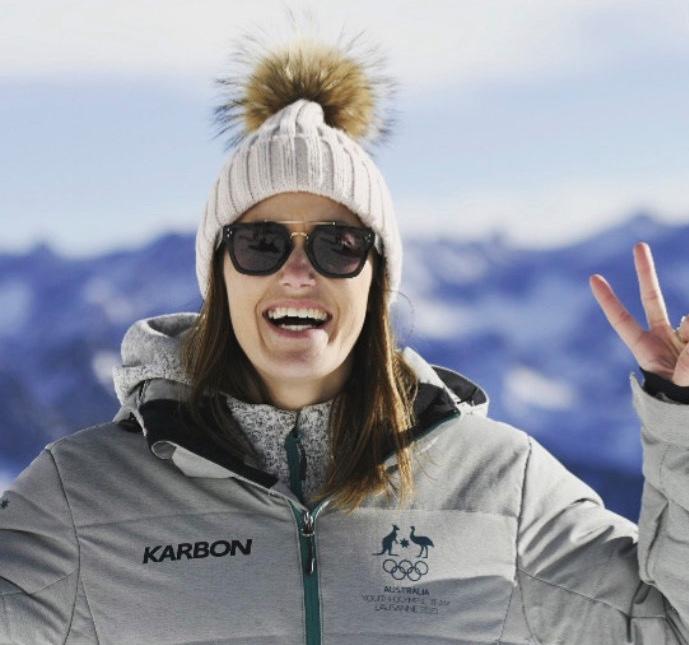
Dr Carlee Van Dyk
SIMON KIM
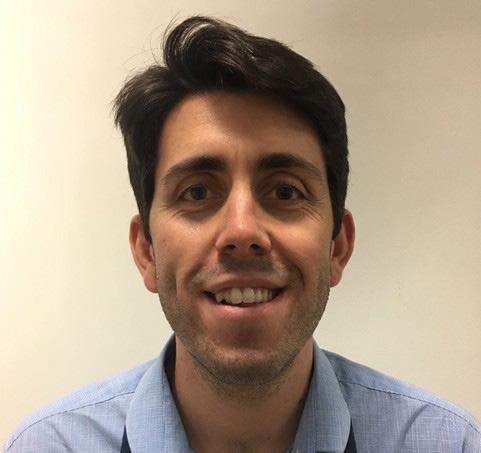
Dr Jacob Jewson
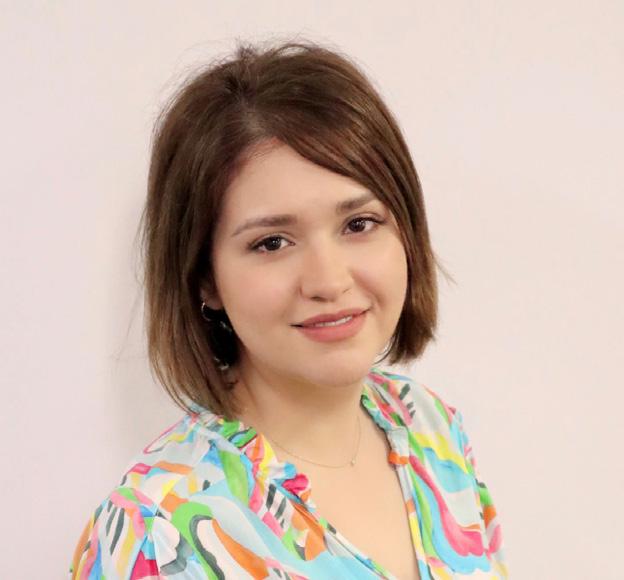
Dr Mona Shabghareh
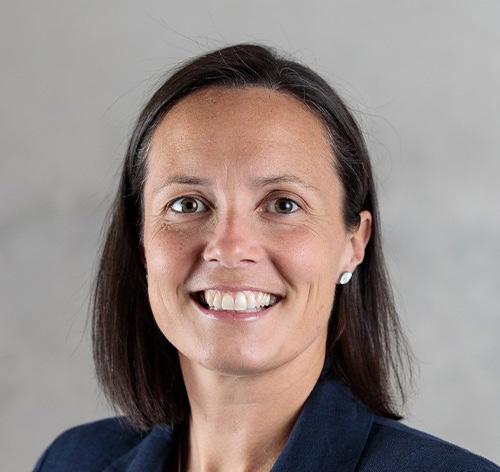
Dr Colleen Winstanley
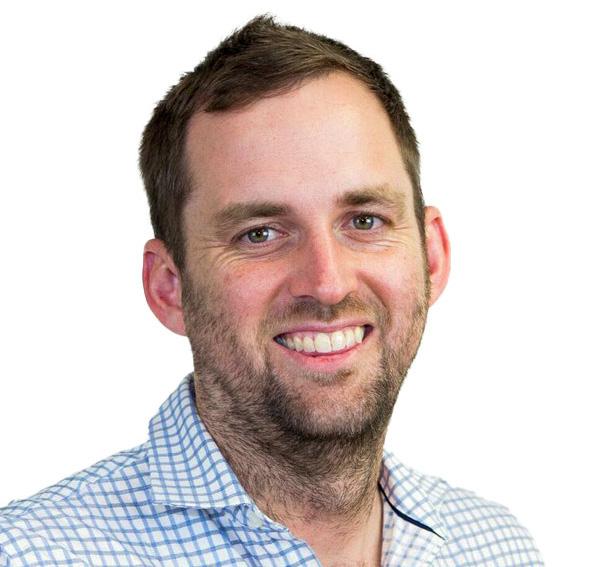
Dr Anthony Henderson
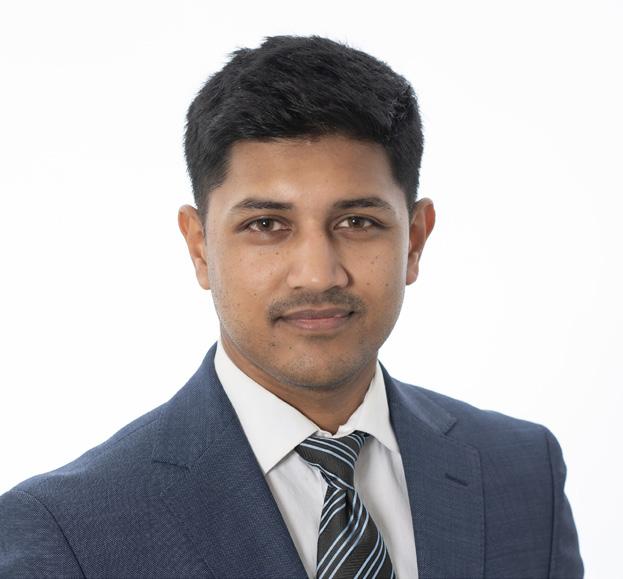
Dr Bikram Karmakar

Dr Neil Stevenson
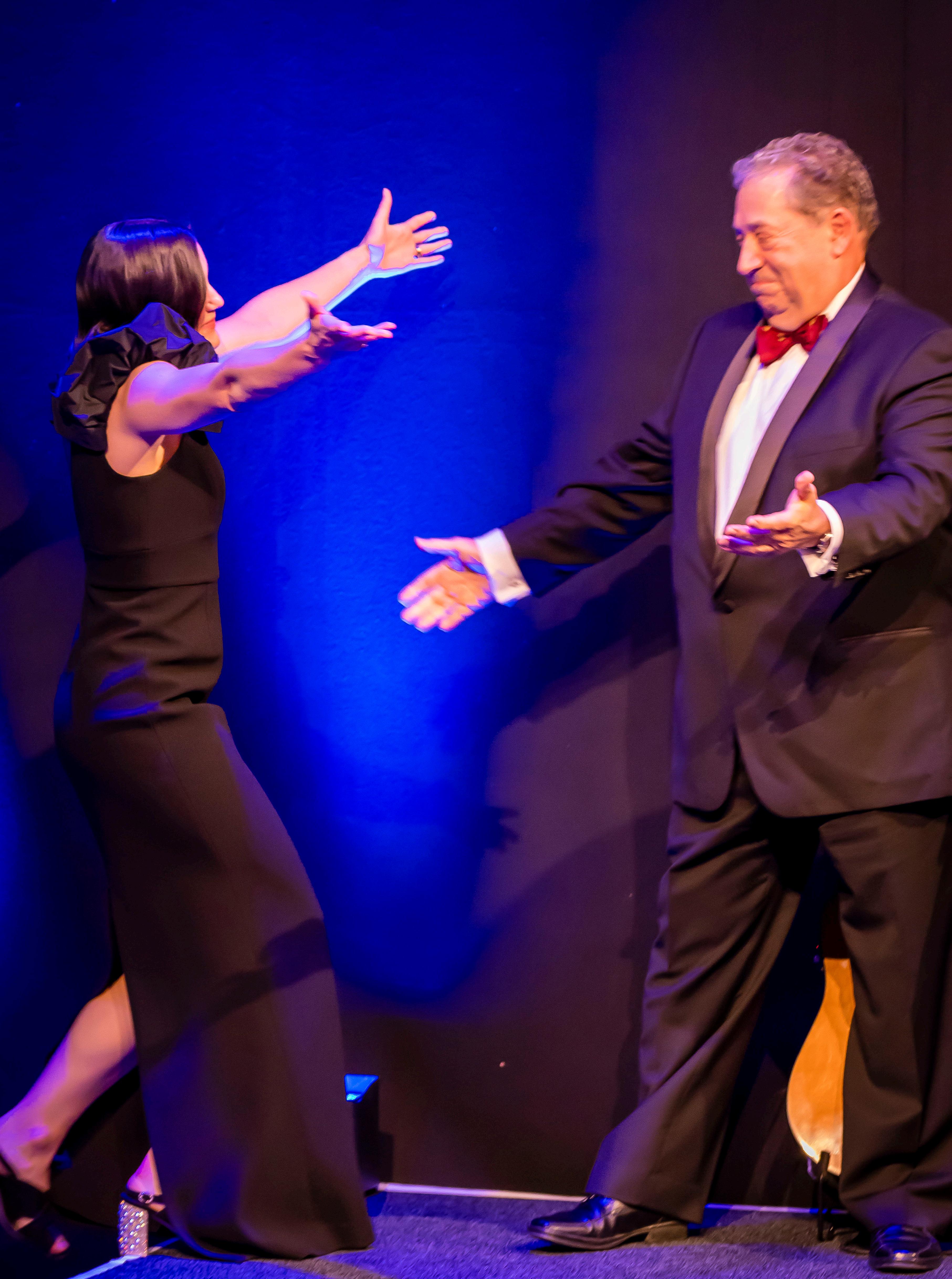
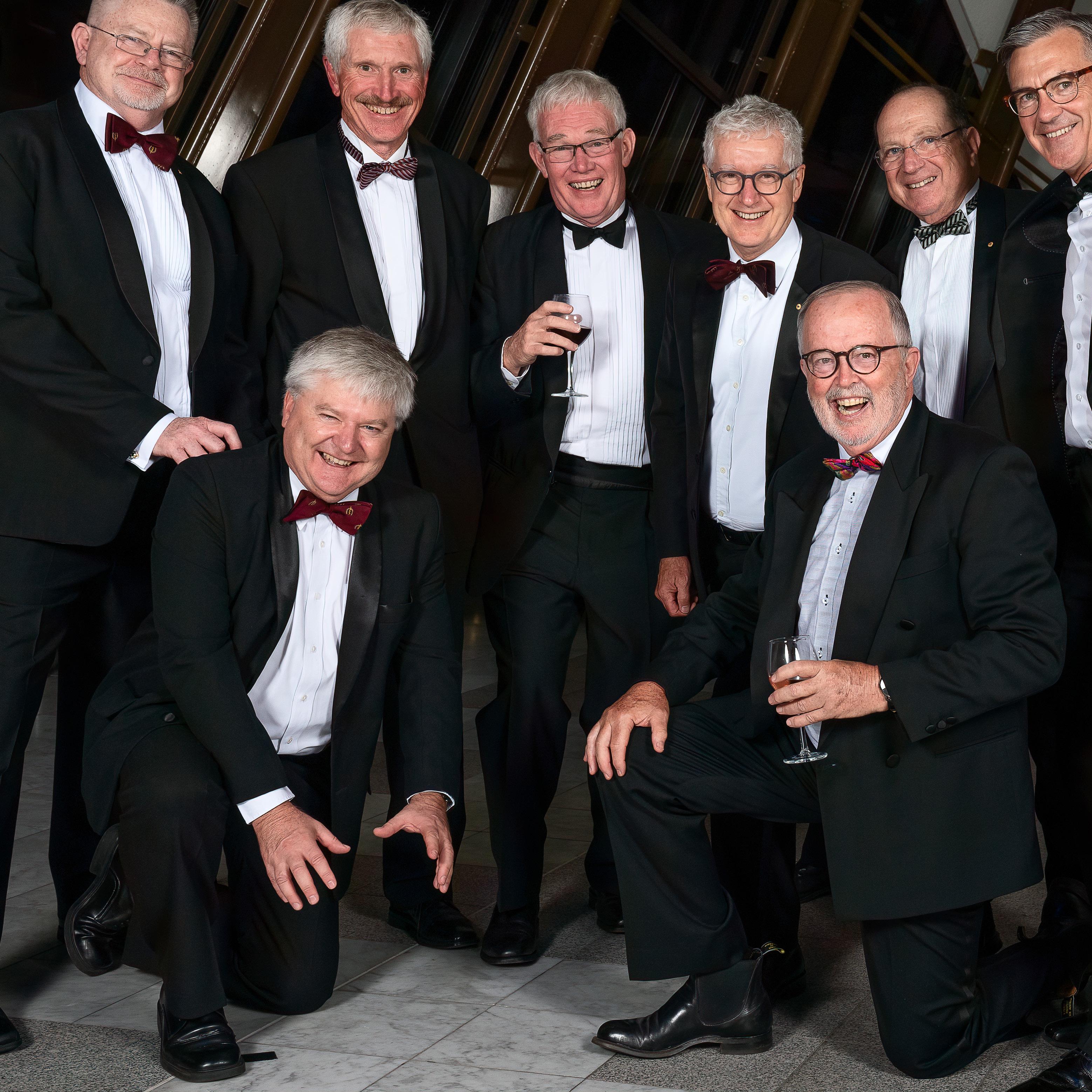
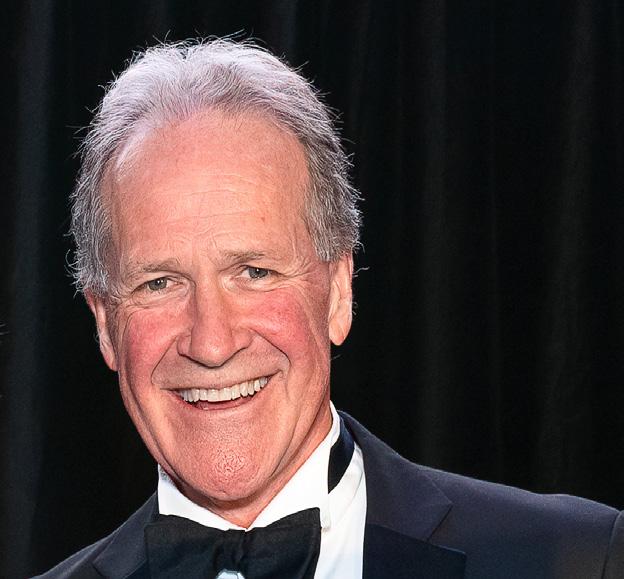
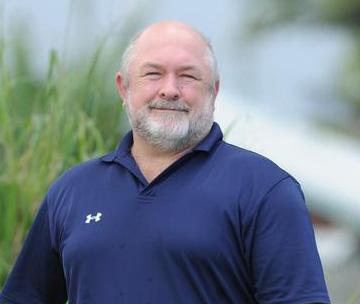
Congratulations to all of our retiring fellows for their stellar careers in sport and exercise medicine.
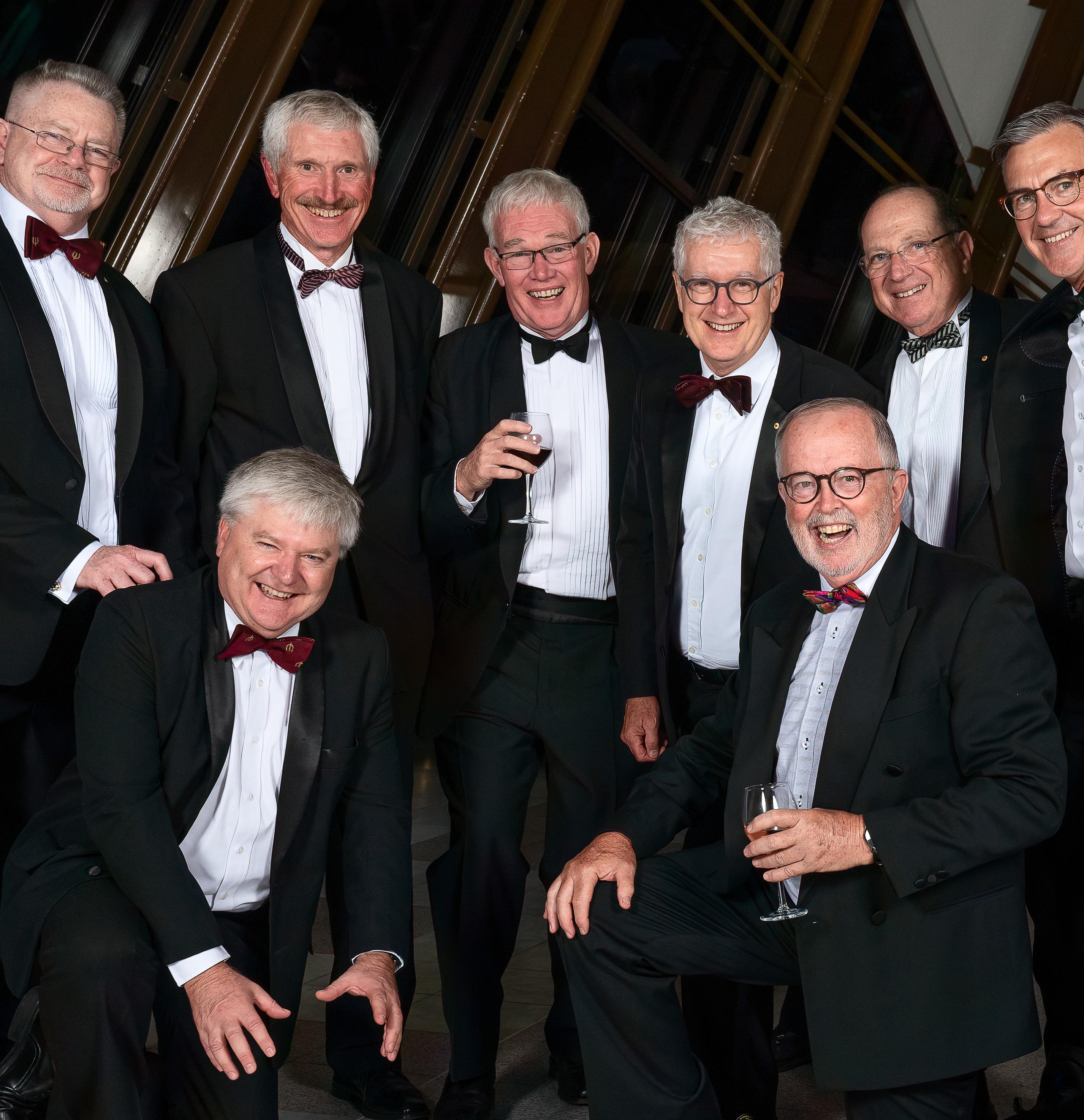
 Greg Winter
Simon Locke
Graham Paterson
Greg Winter
Simon Locke
Graham Paterson

So many medical advances we have seen in the game today were because of Hugh’s vision. In many ways he ensured sports medicine became a specialist field
Mr Todd Greenberg, Former CEO of the National Rugby League
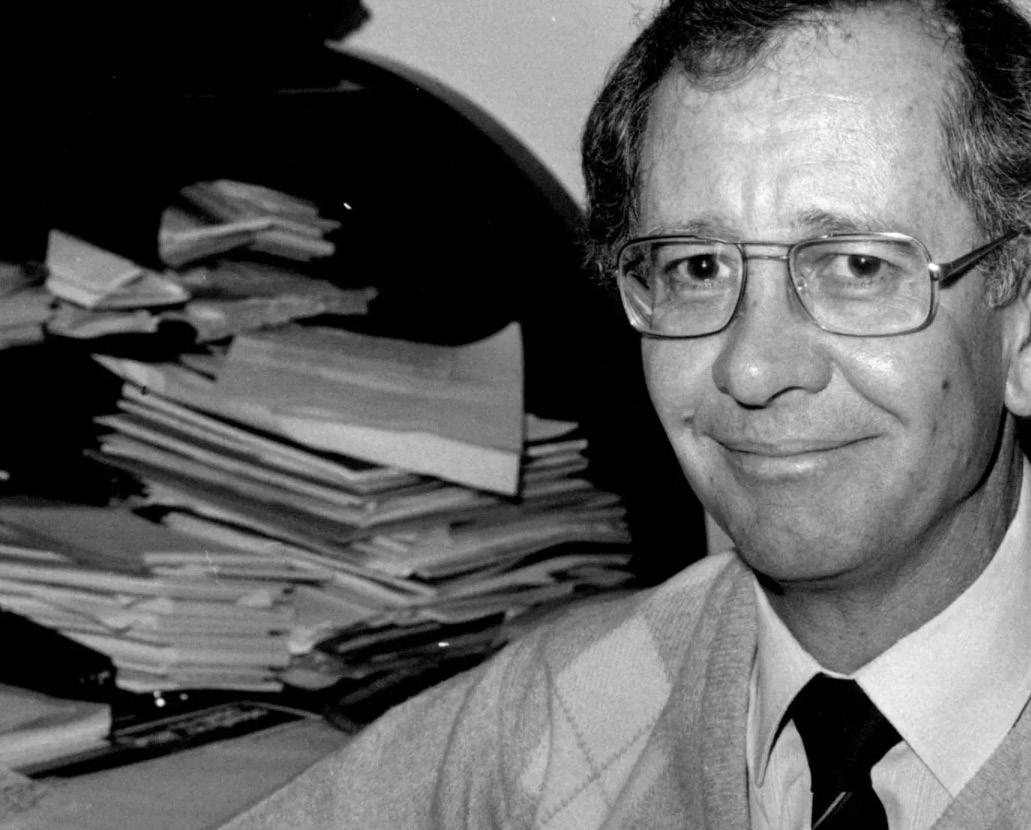
Dr June Canavan was a much loved sports physician and family doctor living and working on the Sunshine Coast of Queensland, Australia. Her life was cut short when she died in a plane crash while travelling to Kokoda, Papua New Guinea in August 2009.
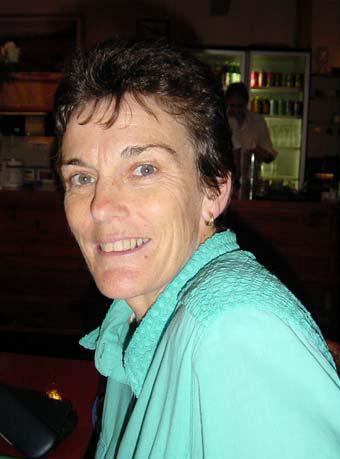
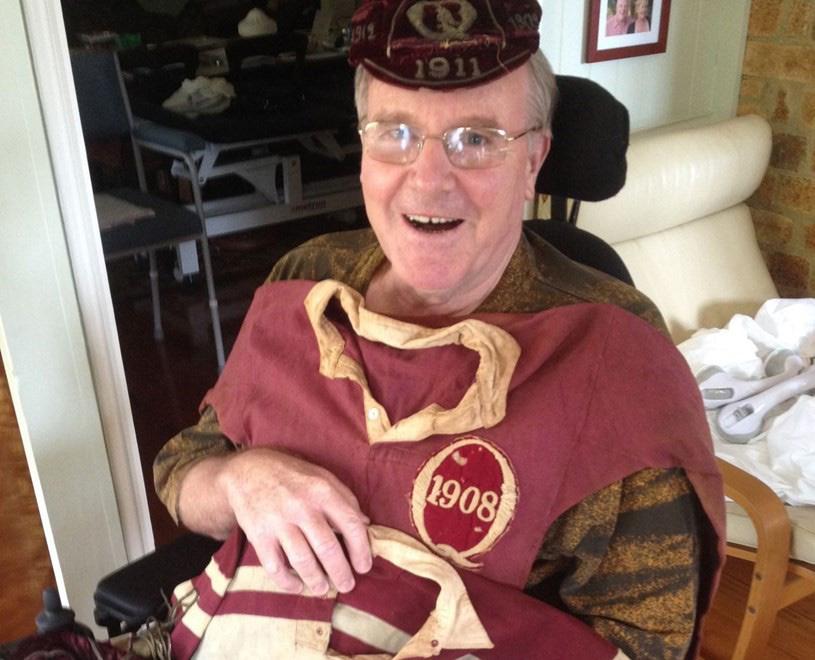

Dr. Galvin was not only a wonderful doctor, but also a wonderful person –a delight to both players and officials.
Dr Keith Woodhead served with distinction as Queensland State of Origin and Australian medical officer at different stages of his career and will be best remembered for his role as ‘doctor-on-call’ for the Norths Devils club in Brisbane from the late 1970s until well into the 1990s.

Ken always displayed endearing humility and unrivalled compassion and empathy for his patients. He was the Fellow we all aspired to be.

Fred had a wonderful sense of humour and was a mentor for many of the next generation of Melbourne sports physicians.
No-one made a greater contribution to sports medicine in this country.
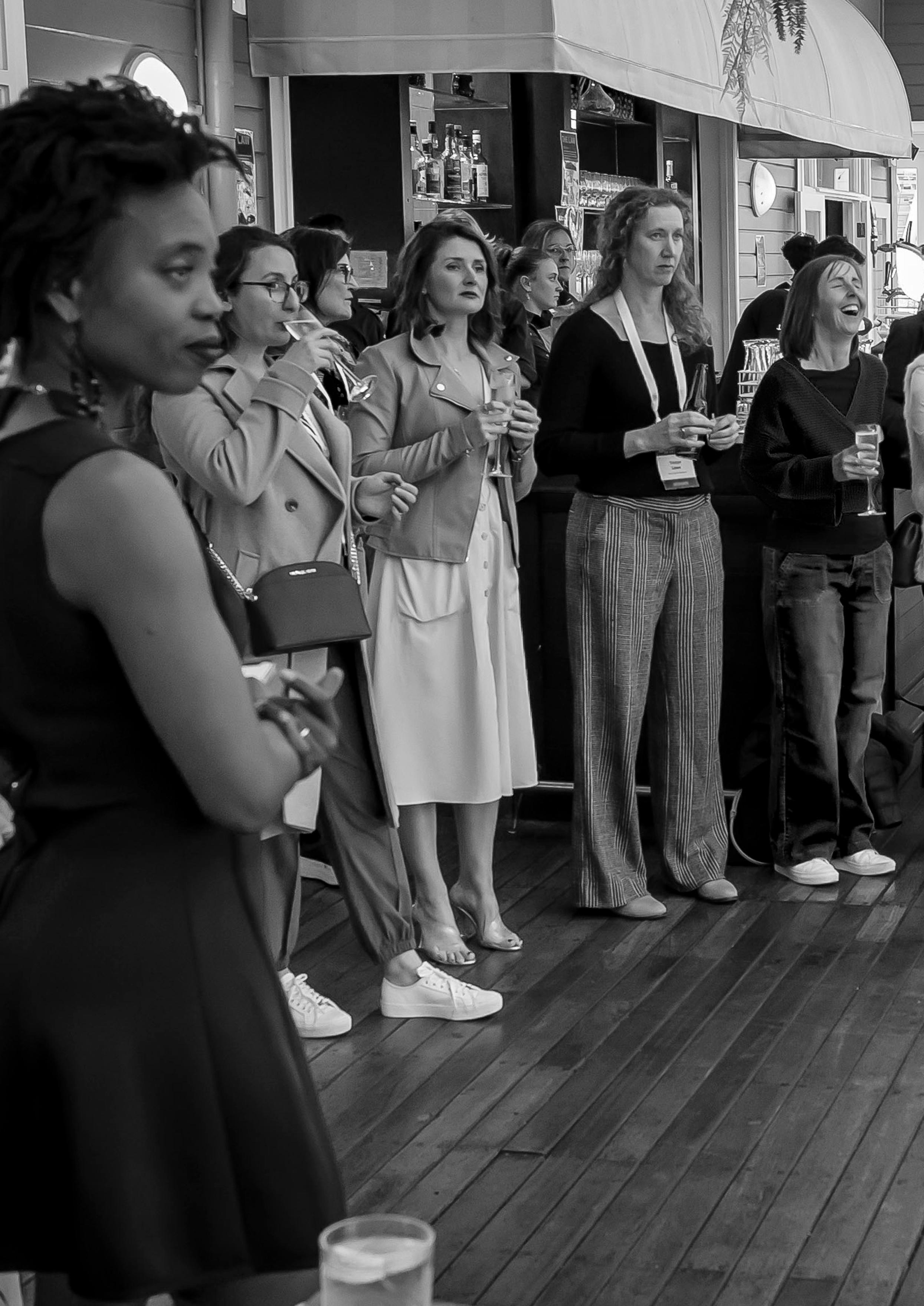
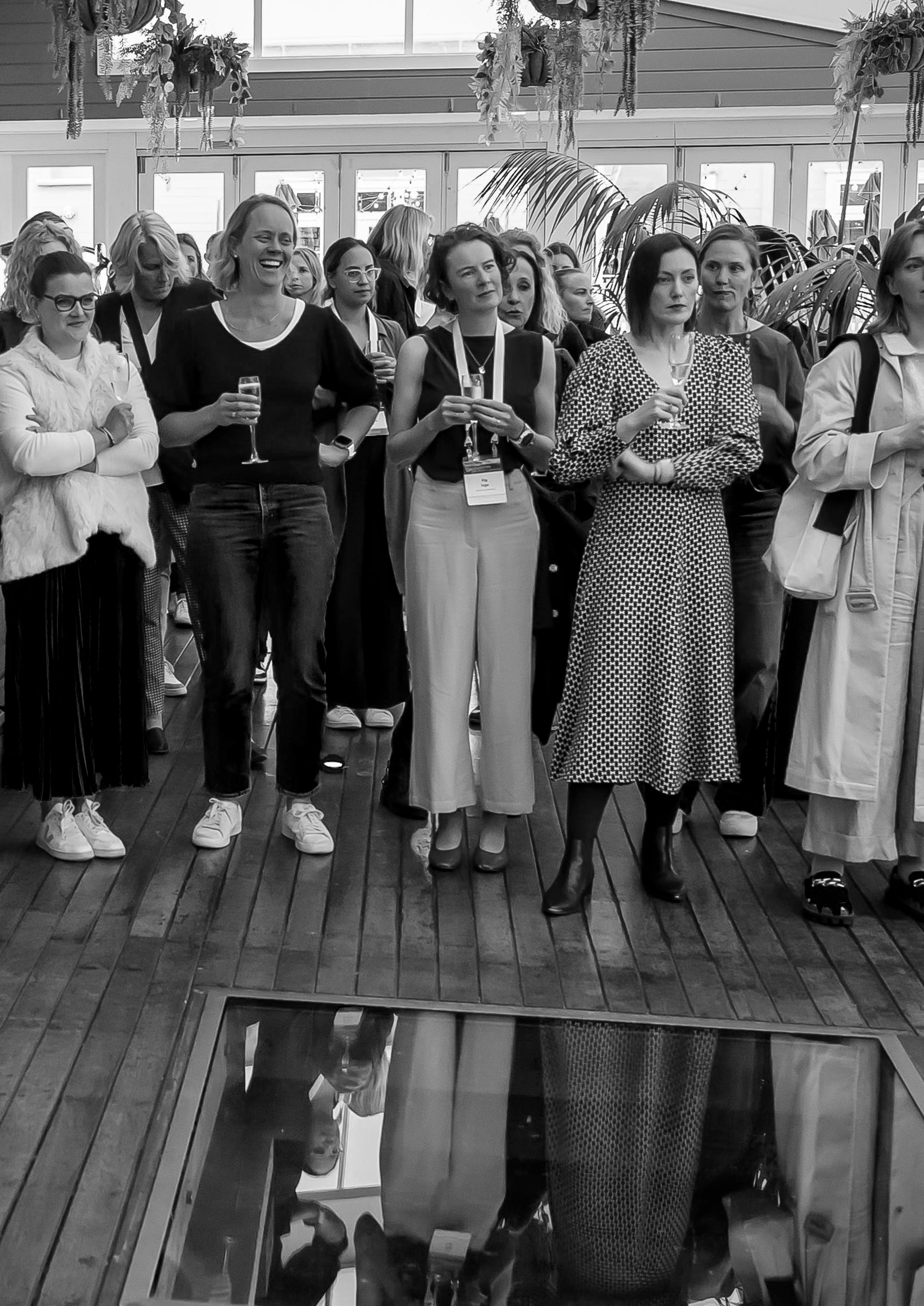
Chair: Sharron Flahive
Committee Members: Nat Anglem, Corey Cunningham, Viran De Silva, Mark Fulcher (Board Representative), Bruce Hamilton, Craig Panther, Diana Robinson, Moktika Tandon (Registrar Representative)
Chair: Viran De Silva
Committee Members: David Bolzonello, Jonathon Charlesworth, Sharron Flahive, Rachel Taylor, Tracy Peters, Paul Annett, Chris Hanna, John Molloy, Andrew McDonald, Samantha Pomory, Anik Shawdon, Sharon Stay Research Committee
Chair: Bruce Hamilton
Committee Members: Brandi Cole, Kieran Fallon, Mark Fulcher, Carmel Goodman, John Orchard, Justin Paoloni, Jeni Saunders
Chair: Nicole Sly
Advisory Group Members: Brandi Cole, Sharron Flahive, Rachel Harris, Pip Inge, Eloise Matthews, Masiiwa Njawaya, Deborah Robinson, Kate Simkovic
Examination & Assessment Committee
Chair: Corey Cunningham
Committee Members: Paul Blackman, Matt Hislop, Leesa Huguenin, Judith May, Tracy Peters Continuing Professional Development Committee
Chair: Craig Panther
Committee Members: Nat Anglem, Matthew Hislop, Krishant Naidu, Katherine Rae
Indigenous Health Advisory Committee
Co-Chairs: Nat Anglem, Donna Burns (AIDA)
Committee Members: Viran De Silva, Sharron Flahive, Leigh Golding, Anika Tiplady
Interview and Selection Committee
Chair: Adam Castricum
Advisory Group
Members: David Bolzonello, Kevin Boundy, Viran De Silva, Bianca Field (AIDA representative), Greg Harris, Rachel Harris, Yaso Kathiravel, Jonathan King, Eloise Matthews, Krishant Naidu, Melinda Parnell
The Education Committee is responsible for developing the education strategy and regulates and approves all education activities delegated by the Board.
2023 was my first year as Chair, after handing over the Chair of the Training Committee to Viran De Silva and being given the opportunity to continue the great work that the inaugural Chair, Dan Exeter commenced. The Committee also saw a change in membership as Chairs completed their terms, and so we will move into the next few years with a new group to continue the work that has been commenced or will start in 2024.
In addition, we will be active in implementing the new Committee structure approved at the AGM in November over the year and I’m sure that will assist with streamlining the work that is done across the College.
The Committee continued its key work overseeing the training and ongoing education requirements for the College with a few key areas of particular note:
• Review and approval of a new approach to research approaches and submission which has streamlined the process and provided alternative pathways for Registrars to complete these requirements.
• Approval of the new approach to CPD with the introduction of CPD homes. This is big change for our Fellows and the work required for this implementation will continue into 2024 and beyond.
• Ongoing review and assessment of the large volume of work being undertaken by the Curriculum Working Group to review and update our Curriculum and implement updated approaches to Registrar education. 2024 will be a big
implementation and evaluation year for this and the Committee will play a vital role in the success of the rollout over this period.
The Committee will also recommence overseeing key Accreditation requirements of the Australian Medical Council and all College committees will be involved in this undertaking. Completion of this work will extend our College accreditation for another 4 years, ensuring we remain a world class provider of SEM, both for our trainees and for the groups and patients that we work with.
Thank you to all the Fellows who have taken the time to provide input into the work of the Education Committee and all College committees and working groups. I’m looking forward to the next period of Education development for ACSEP.
Dr Sharron Flahive Education Committee Chair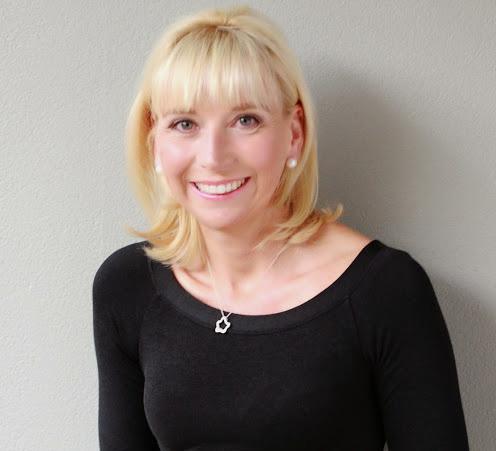
The Examination and Assessment Committee (EAC) oversees the preparation, conduct, marking and determination of competence standards for both the ACSEP Entrance Exam and the Fellowship Exam.
The Entrance exam, held twice a year, assesses knowledge in Anatomy, Physiology, Exercise Physiology and Pathology, using a secure online MCQ format which allows candidates to sit the exam in their home city. Candidates are allowed to sit the exam multiple times and retain credit for components they have previously passed.
47 candidates sat the exam during 2023, with 21 successfully completing all components of the exam and eligible to apply for entry into the Training Program.
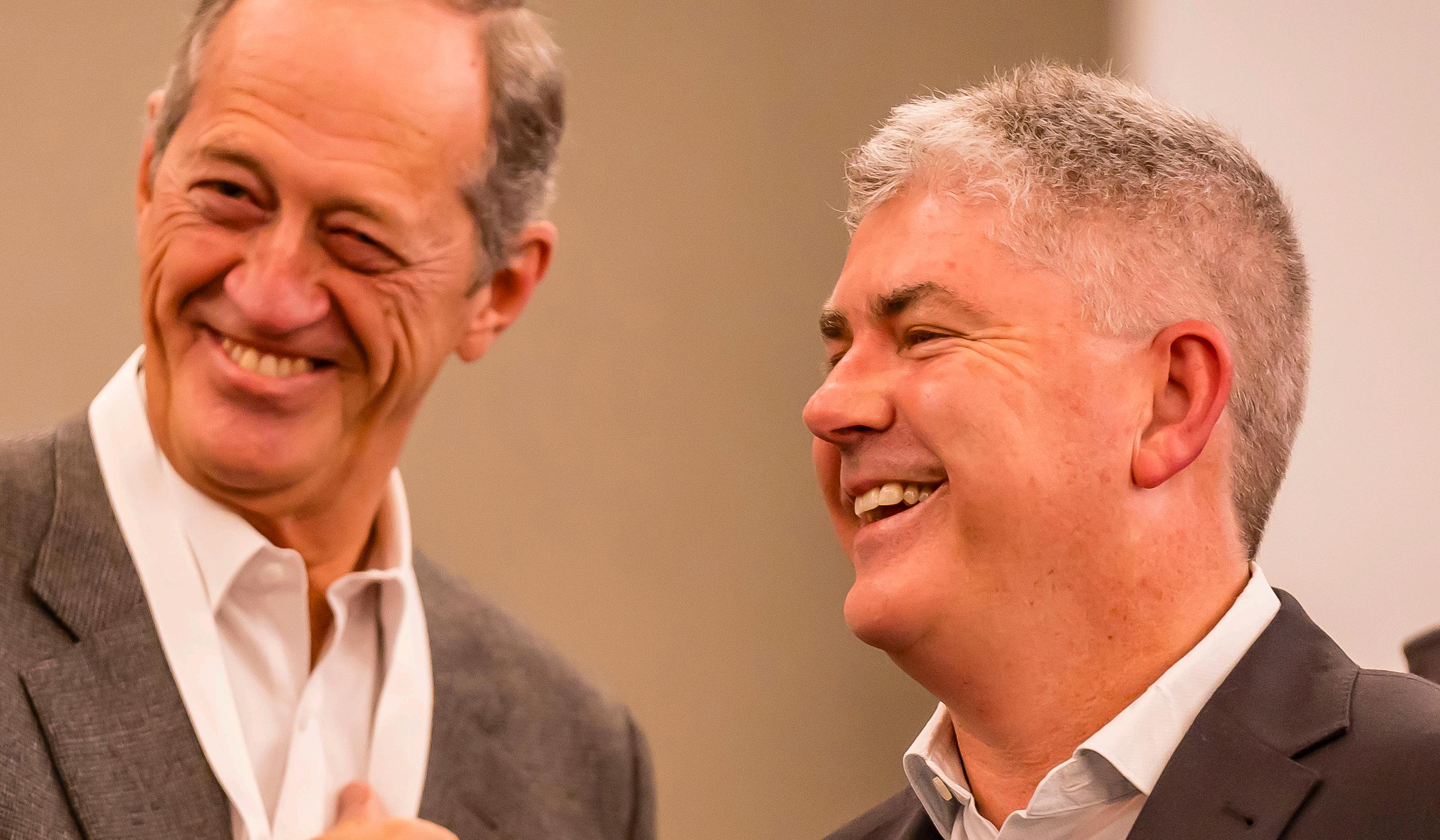
Candidates who are in their 4th year of training or beyond and have completed all training requirements are eligible to sit the annual Fellowship exam, which comprises a written component (MCQ and SAQ short answer papers) and a clinical exam featuring a complex long case presentation, Viva and a series of short case examinations.
In 2023, 18 candidates sat the MCQ / SAQ papers remotely via a secure weblink on their own device, in their own city. 89% of candidates passed the MCQ and 78% passed the SAQ exam.
For the 2023 clinical exam, 22 examiners, 16 candidates and 8 patients assembled in Sydney in September for an extensive day of Exams. The EAC acknowledges a great collaborative effort from College Fellows and our National Office staff to make the exam process work. 89% of candidates passed the Long case, 100% passed the Viva and 94% passed the Short cases.
Overall,14 registrars successfully passed all components of the exam in 2023.
James Brennan was awarded the College Medal for overall excellence across all components of the exam.
Simon Kim will take over as the Chair of the EAC from 2024, supported by an experienced and dedicated group of committee members including Tracy Peters, Judith May, Leesa Huguenin, Matt Hislop and Paul Blackman. Lari Trease will join the committee as a new member in 2024.
Dr Corey Cunningham Examination and Assessment Committee ChairI was pleased to take over as Chair of Training in 2023 after Dr Sharron Flahive’s time in the role, and am thankful to her for leaving the committee in great shape.
As always, being a member of the Training Committee can be a busy but rewarding role with the College. All Training Committee members are Zone Training Coordinators and are highly involved in the Registrars’ journey to becoming ACSEP Fellows, as well as contributing to key decisions affecting the Training Program. The committee’s role has been particularly important in 2023 as a voice in the introduction of the revised Curriculum, which will be introduced in 2025.
Excitingly in 2023, several Registrars made the momentous achievement of passing their exams and attaining Fellowship.
At the annual Scientific Conference, 15 former Registrars were presented with their Fellowship and since then, another six have had their Fellowships approved. Congratulations to all of our new Fellows on behalf of the Training Committee.
Looking ahead to 2024, the College welcomes 15 new Registrars to the Training Program. The coming years will be an adventure for everyone involved with the introduction of the revised Curriculum reflecting a more competency-based Training Program. I believe this will be a positive step that will provide a clearer pathway and a more robust Training Program for Registrars to be a part of.
Dr Viran de Silva Training Committee Chair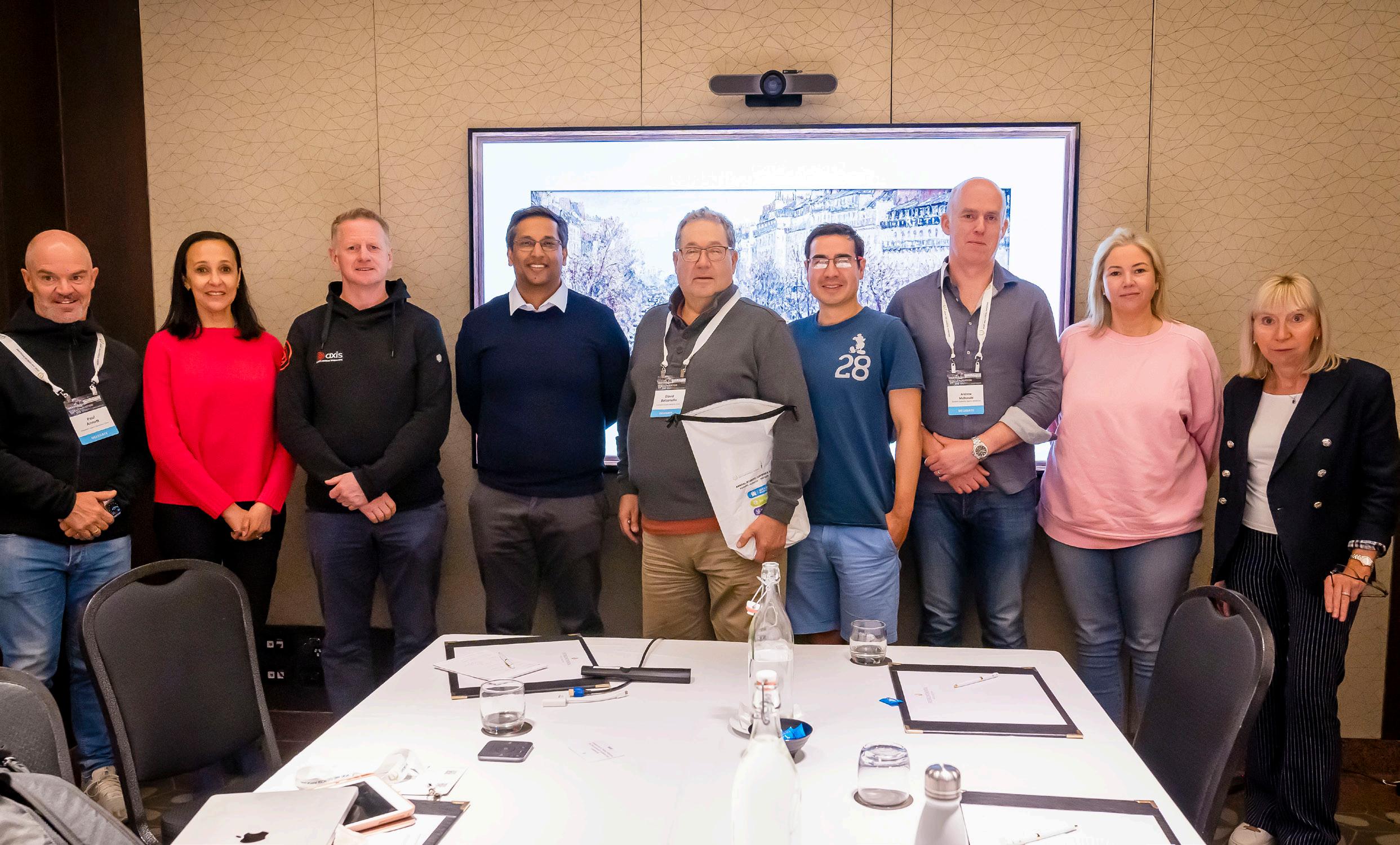
The CPD Committee looks after the development and maintenance of the CPD Program to ensure Fellows maintain and advance their knowledge and skills to ensure the highest standards of patient care.
The end of 2023 marks the end of the first triennium year and also a year full of changes within the CPD world. The committee has been focused on planning and implementing the changes required by the regulatory authorities on both sides of the Tasman and continuing to improve our CPD program to support our Fellows to improve their practice.
The Australian Medical Council and the Medical Council of New Zealand are committed to improving CPD for medical practitioners and this has led to new requirements in 2023, which included the following:
• The introduction of CPD Homes
• The introduction of Annual Conversations and Professional Development Plans (PDPs) for all doctors
• A change to CPD categories to improve the value of professional development
• A requirement to complete 50 hours of CPD each year which differs from the previous points-based system.
As a result, the committee has worked to implement these in a simple and effective manner for our Fellows. We have provided a range of updates to our new CPD handbook to provide guidance and support for the new format to our CPD program, along with updates to our CPD portal and website.
It was great to see everyone face to face at our national conference held in Wellington, NZ in November to be able to share some of these changes and updates and to also have an in-person meeting with our committee.
As always, we welcome feedback from Fellows and any questions regarding the new or upcoming changes to the CPD program.
Dr Craig PantherContinuing Professional Development Committee Chair
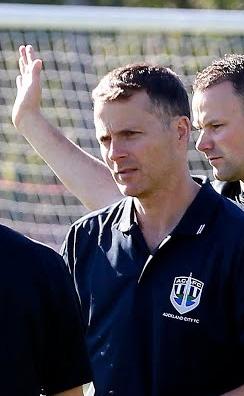
The year represented one of positive change in the Research Committee and for research at the College. New Research Based Activity requirements for Registrars in the Training Program were introduced, which allow Registrars to demonstrate research competency by building a portfolio of research outcomes including high-level publication and presentation of research at conferences. It is hoped this approach will suit a range of research designs and projects and ensure completion of Training Program research requirements at a similar pace to other Training Program requirements. To date, the requirements have been well received by Registrars and we will continue to monitor feedback in 2024.
There was some incredible research published by Fellows and Registrars in 2023, including Dr Tom Cross’s work on the Cross Bracing Protocol, Dr Lari Trease’s work on low back pain in athletes and Dr Patrick Sunderland’s work on concussion incidence and mechanisms in AFL.
The Research Committee is committed to the promotion of research excellence in the College and has highlighted the promotion of research activity as a priority for 2024.
The year saw the departure of Dr Kellie Wells from the ACSEP after providing excellent support to Registrars and the Research Committee through the period of transition. I would like to recognise her significant impact. Luke Major has picked up the reins in recent months over an interim period, but in 2024 we welcome Tracy Firth who will provide administrative support to the Research Committee and Registrars. To assist both Registrars and Fellows in their research, we are excited to have established a contractor
position for an ACSEP Research Technical Support Officer and to have recruited Michael Girdwood to the role. Michael is a PhD candidate at La Trobe University with over 7 years of working research experience at the La Trobe University Sport and Exercise Medicine Research Centre. Michael is available to support Registrar research activities for up to 4 hours per week and will contribute to other Research Committee initiatives.
I am always thankful for the members of the Research Committee – Dr Mark Fulcher, Dr Jeni Saunders, Dr Brandi Cole, Dr John Orchard, Dr Justin Paoloni and Dr Kieran Fallon – for their work in supporting Registrars and the direction of research at the College. Finally, we are interested in increasing the number of Fellows on the Research Committee and I encourage any Fellow with an interest in research to join this stimulating and fulfilling committee.
Dr Bruce Hamilton Research Committee Chair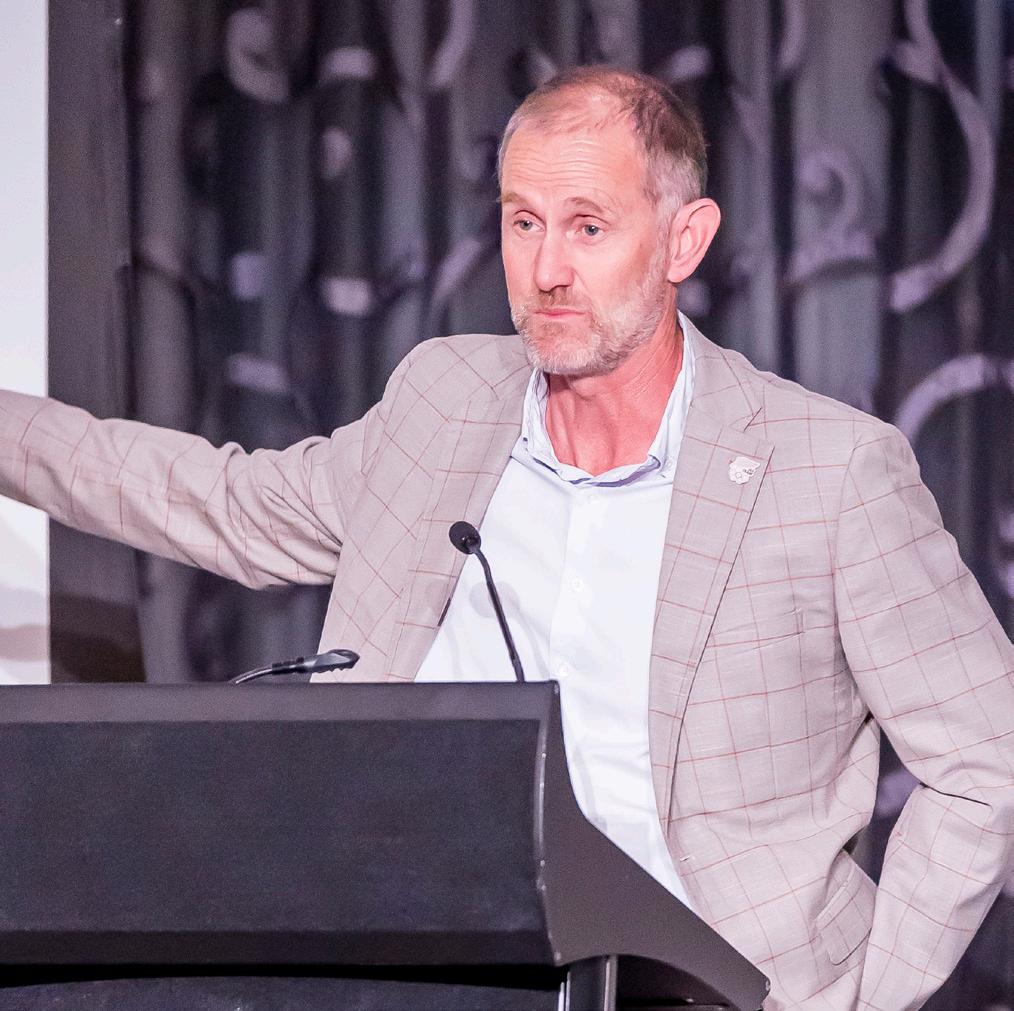
IHAC provide a leading voice for the College regarding Indigenous Health; specifically Aboriginal and Torres Strait Islander, Māori and Pasifika populations. The overarching role of IHAC is to provide direction for the College to improve Indigenous Health standards.
The Indigenous Health Advisory Committee continued its role through 2023 by collaborating with the Board to assist the college on a variety of issues.
We were very fortunate to be joined by Donna Burns as co-chair to provide a depth of wisdom and experience previously lacking within the IHAC and we have been grateful for her time and contribution. The area of Indigenous health is such a challenging area within health organisations because of the historical failures of systems and behaviours and the last twelve months have provided examples of encouragement and absolute devastation. From the launch of the Cultural Safety Framework at the beginning of the year there have been several meetings where colleges have had the chance to compare notes on their progress in the implementation of these strategy principles. There seem to be progressively more Māori doctors taking on positions of influence within the health sector, and indeed within our IHAC we have welcomed Anika Tiplady (Ngāi Tahu) into our fold.
The IHAC has continued to try to find its way forward within the ACSEP and a review of the terms of reference was an important step which will help define how we work together with the board and the other committees of the college for the
benefit of the organisation and served communities.
The IHAC has been very fortunate and is indeed grateful for the support and work of Malika Bee from the college staff who has contributed enormously to the committee, and the contribution of all its members. This is not easy work.
The year in review is written from the place of some angst among Māori doctor groups with the New Zealand government setting their trajectory with the disestablishment of Te Aka Whai Ora. It also follows the Australian rejection of the 2023 Indigenous Voice referendum and as chair of the Indigenous Health Advisory Group it feels like a depressing representation of our relative nations’ current priorities. However, these are not new challenges and the work continues.
“He mahi kai hōaka, he mahi kai takata”.
This proverb compares the way that sandstone is worn down (as it is used to shape greenstone), with the way that people are worn down with hard work particularly on issues like these.
Indigenous Health Advisory Committee NZ Chair
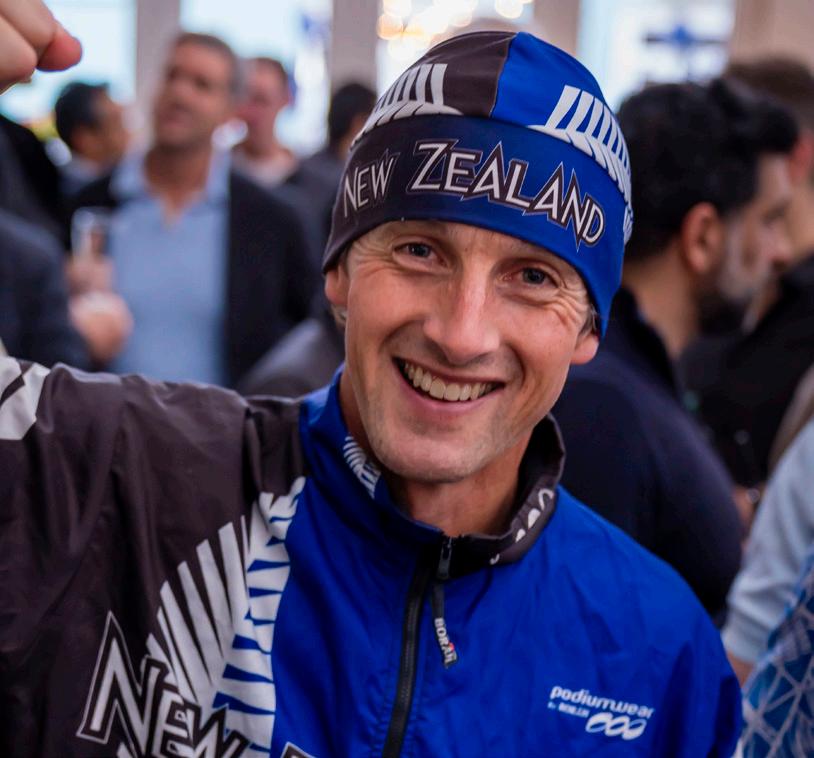
2023 shone the spotlight on Women in Sport, with athletes enjoying booming popularity and recognition, sharing their experiences, achieving landmark collective bargaining agreements and having organisations addressing barriers to participation. Research and highperformance support for female athletes grows, drawing on broad expertise to better serve this population.
At the 2023 ACSEPxSMNZ Scientific Conference Women in SEM function, Dr Pip Inge reflected on the history of Women in SEM, emerging from humble beginnings with women’s representation continuing to grow. Year on year, incoming Registrar numbers increase, and while women made up only 8% of 2019’s intake, this number rose to 46% in 2023. Now at 26% of total Fellows, the pool of future women leaders and contributors to the health and sporting landscape grows.
In the second half of 2023 the Women in Sport and Exercise Medicine Advisory Group (WSEMAG) surveyed members and reassessed its strategy and direction. We are working towards improved online visibility and engagement with membership, increasing networking and leadership opportunities, and continuing to provide advice on issues that impact women in our College. In 2024, applications for the third round of the Women in SEM Leadership Scholarship opens and with a growing list of development opportunities available, we look forward to supporting the recipient in their career journey.
WSEMAG also welcomed Dr Hilary Grover onto the group, providing a crucial trainee perspective, and fostering engagement with medical students and junior doctors.
The annual WSEMAG event at the ACSEPXSMNZ Scientific Conference is continuing to grow in popularity and this year, brought together an inspirational trio (pictured). They shared their leadership journeys, showcasing friendship, humour and resilience. The panel spoke of mentors who championed them as they entered roles that had previously never been held by a woman. Across sport, governance, business and clinical work, the passion and joy that drove them to overcome significant challenges shone through. We thank these women and many other pioneers in our field! The evening was an opportunity to make new connections, share stories and enjoy the collegial spirit that ACSEP fosters.
We look forward to the future with optimism in furthering gender equity in SEM.
Dr Nicole Sly Women in SEM Chair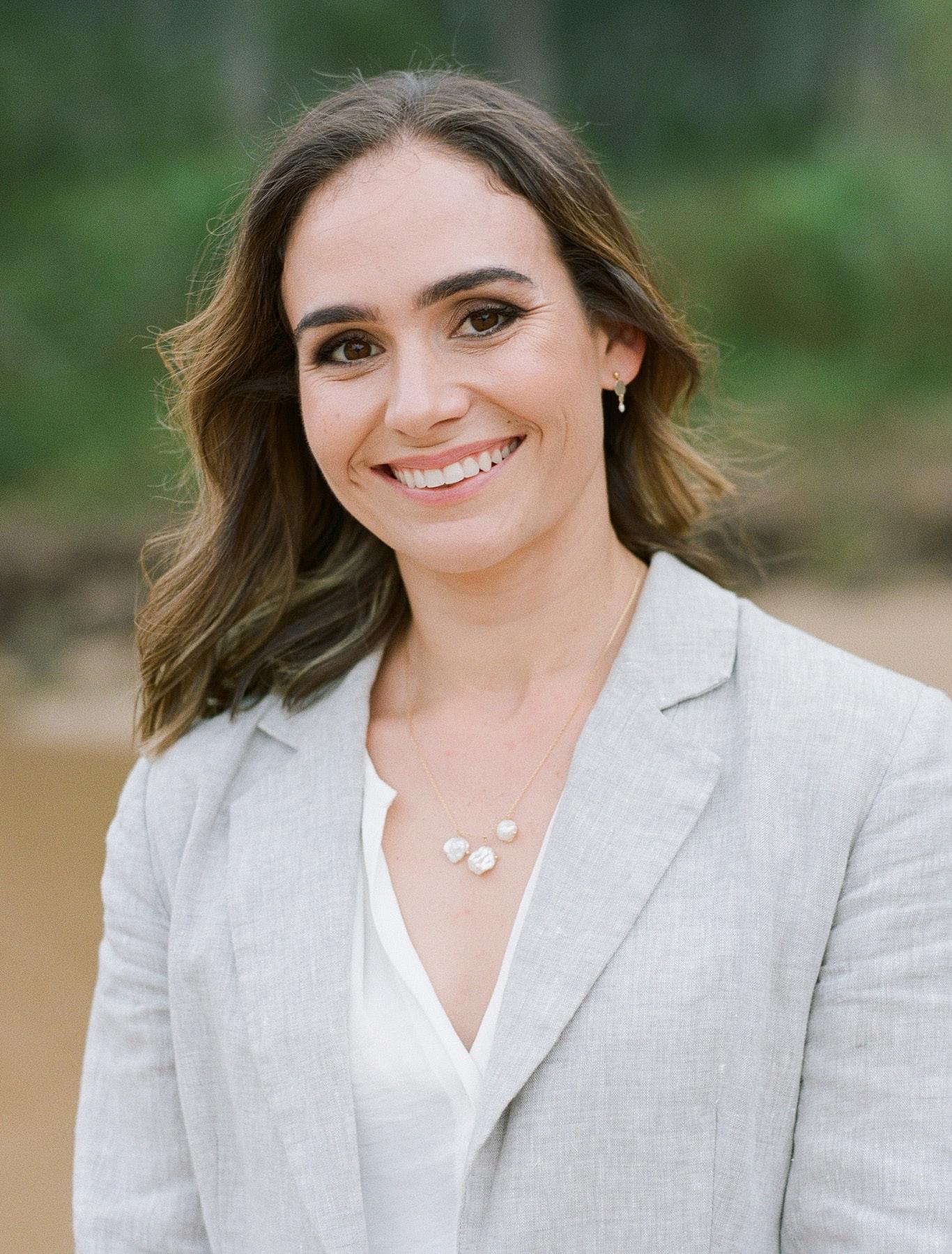
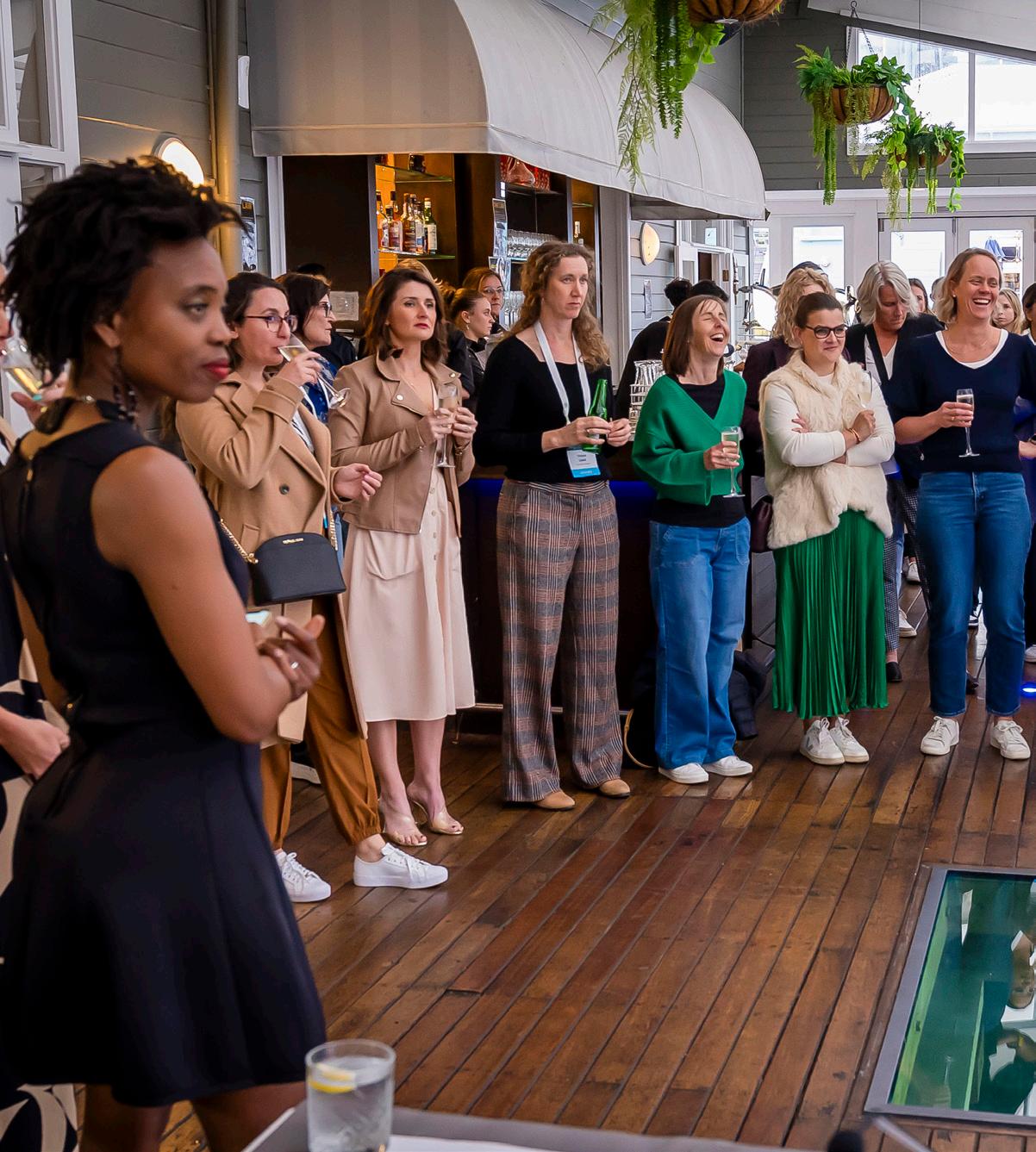
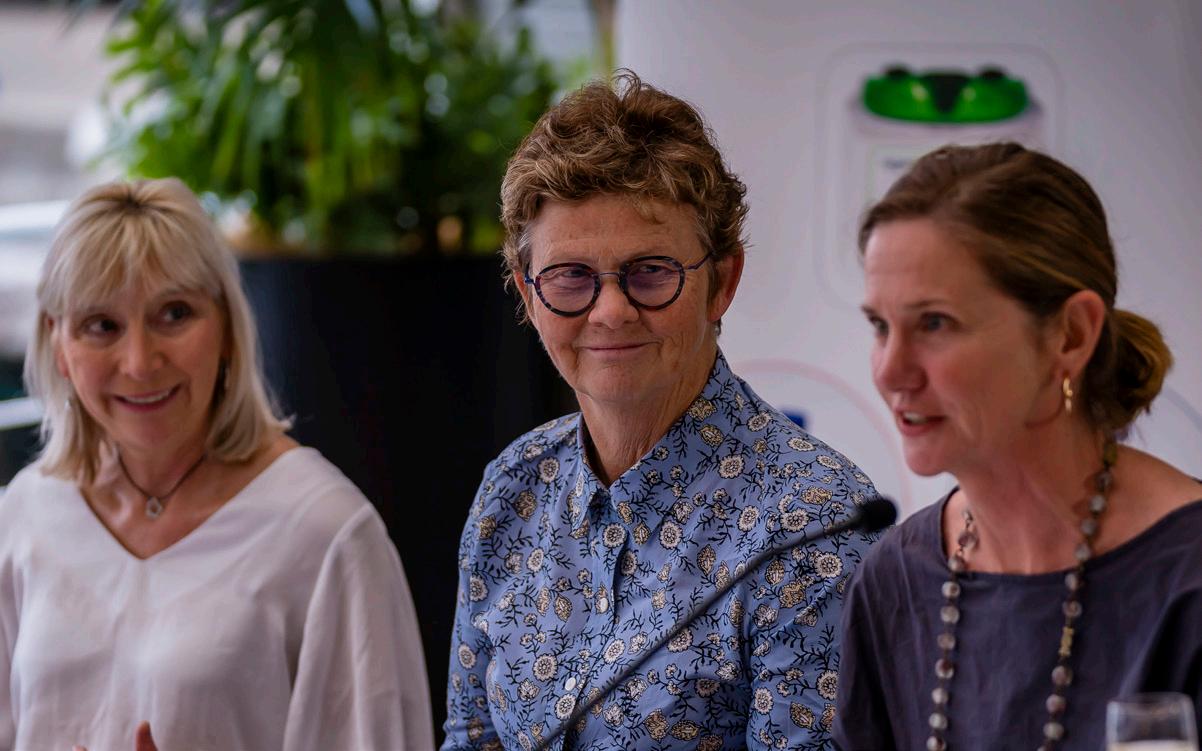
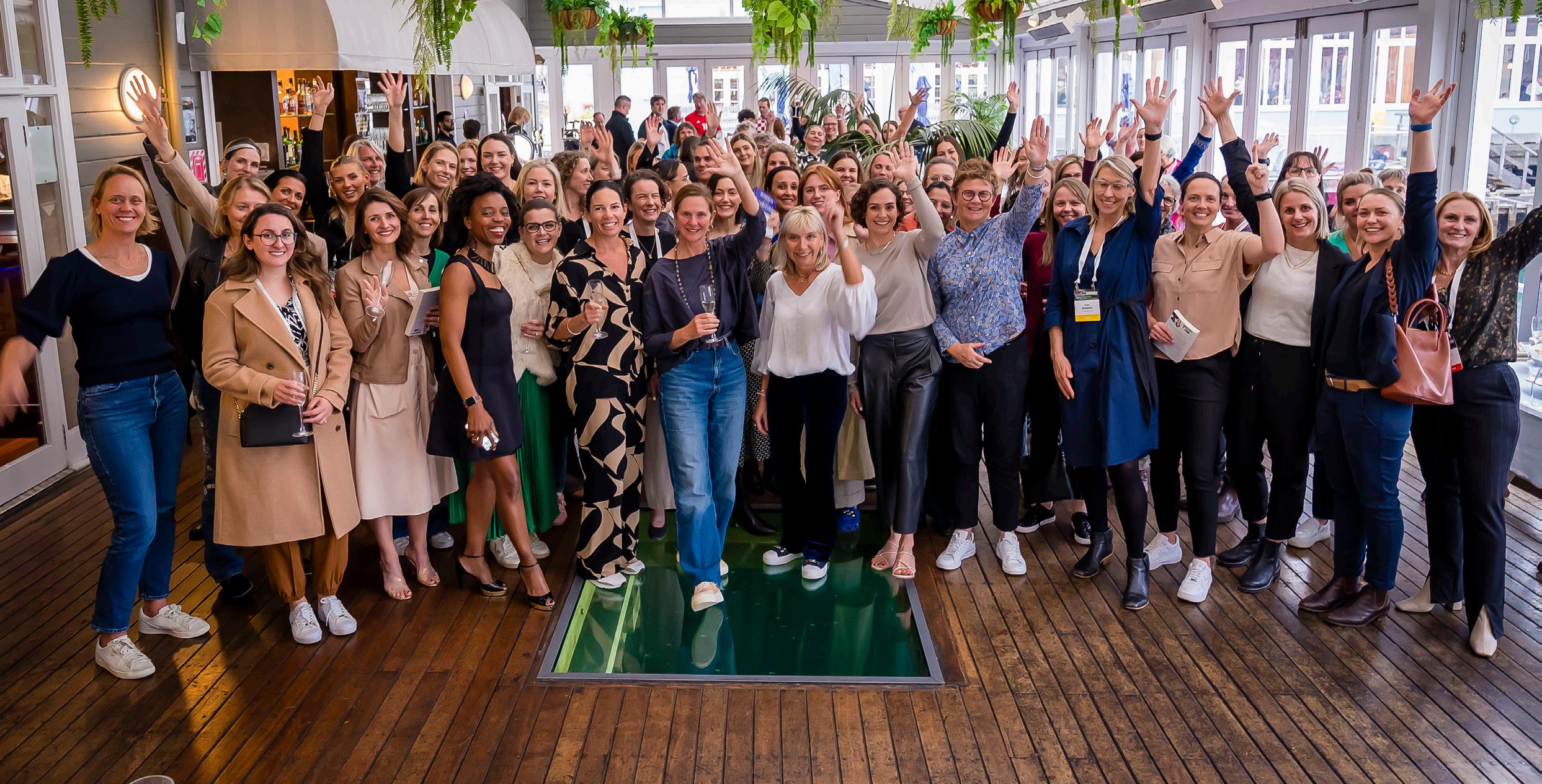
The Interview and Selection Committee members are proud to be involved in the growth of the Sport and Exercise Medicine fellowship and to run a robust and fair selection process. This year, the College received 26 applications for the Training Program, a record number which is encouraging for the College and the speciality. The standard of applicants was incredibly high, which made for a competitive selection process that saw 17 talented future Fellows join the Training Program in one of the highest intakes for the College.
An updated Training Program Selection Policy and Process saw reaffirmed focus on diversity of applicants to the Training Program reflecting the College’s strategic plan. Development of new, reliable interview questions, and establishing processes for checks and balances ensure the behaviours of applicants mirror the standards
of the College. Committee members were highly engaged in the process working directly with personnel at the University of Melbourne to develop interview questions, attending training in conducting interviews and finally conducting the interviews.
I am grateful for the work put in by committee members and our College National Office staff in 2023, and grateful to the Registrars who volunteered their time to participate in an interviewer training session.
The College’s upcoming governance changes will see a new phase of collaboration between several standalone committees involved in Registrar selection, placement, and practice accreditation. We welcome involvement from any Fellows interested in joining the committee in the years to come.
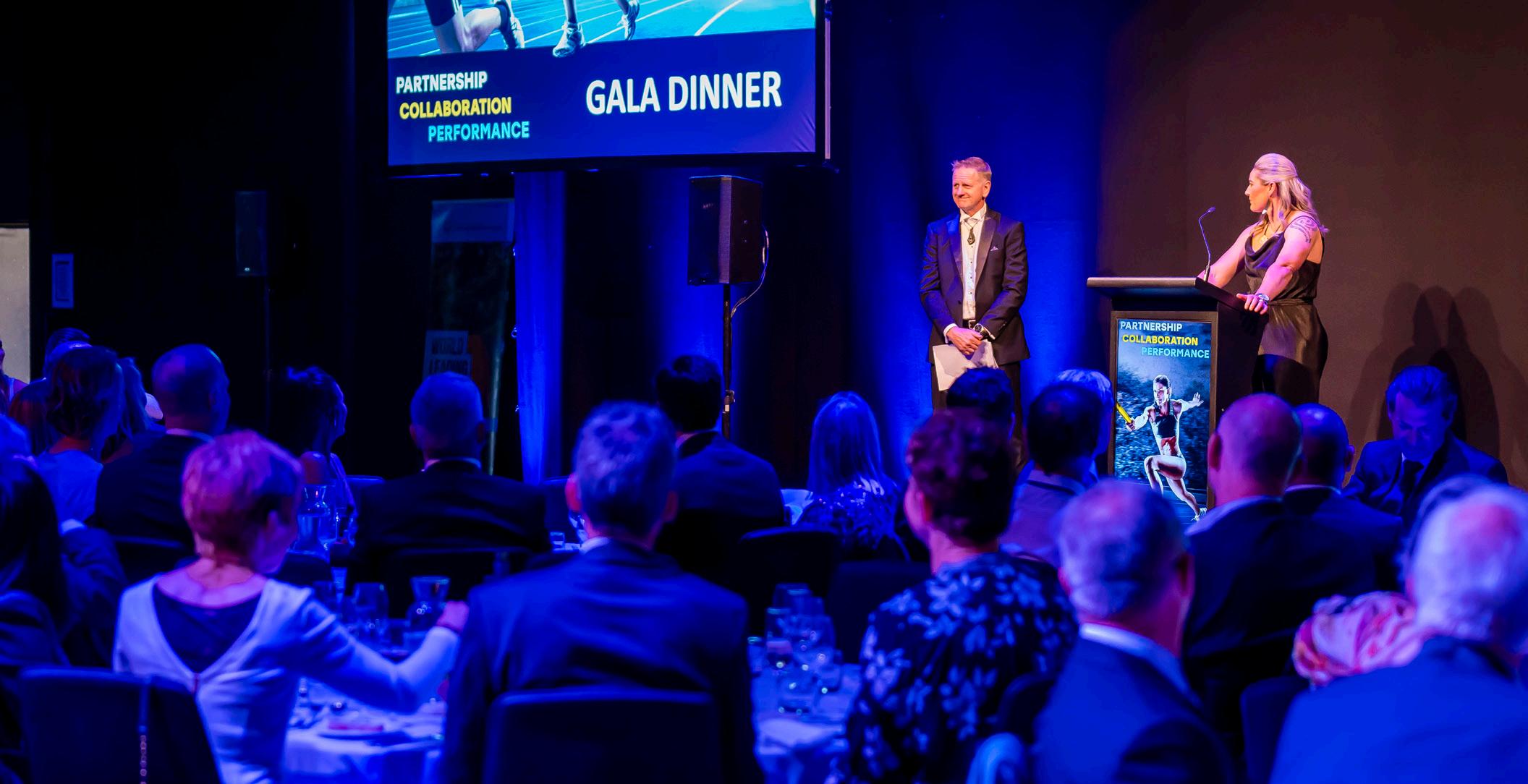

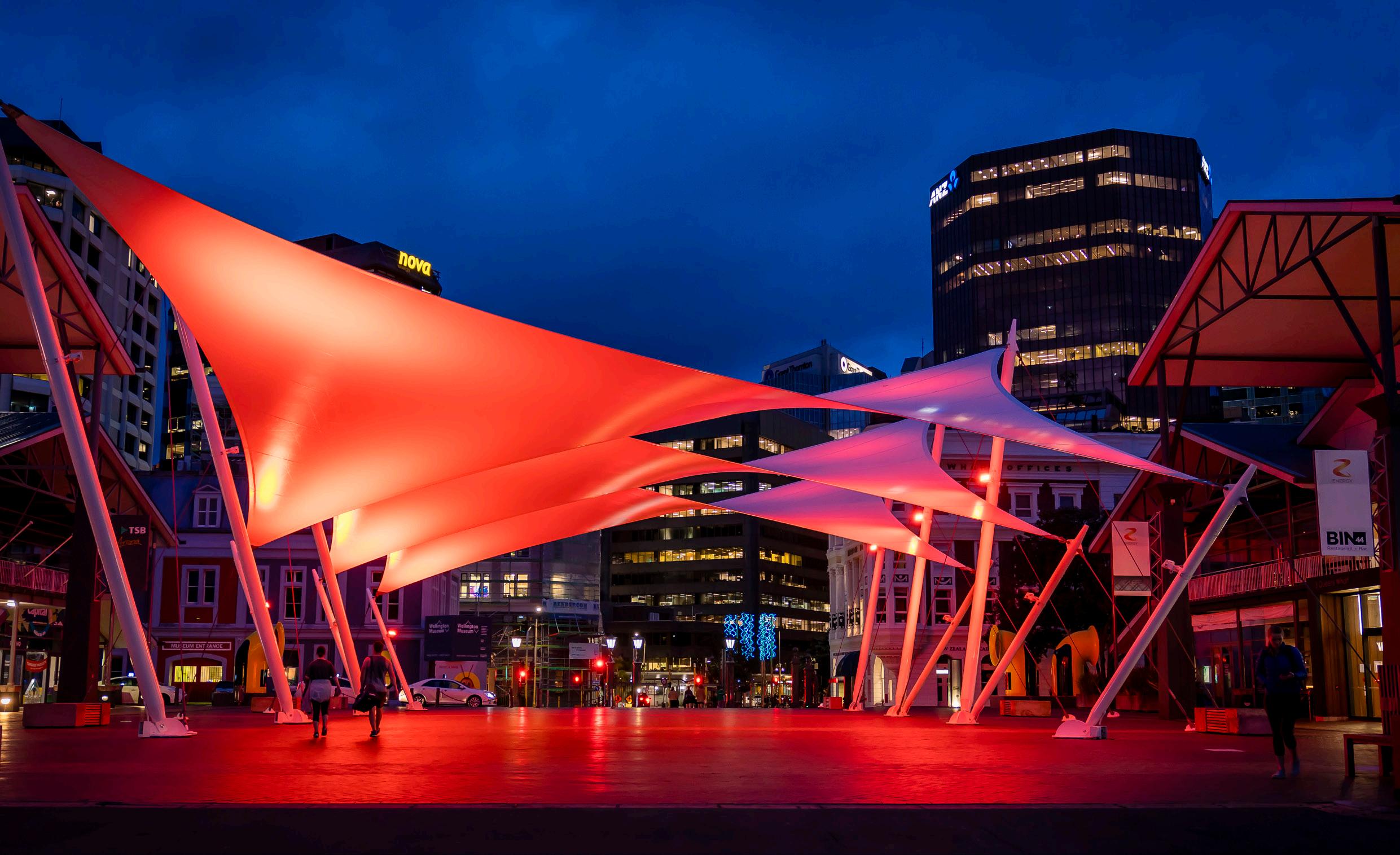
A conference in Wellington you say? Some of you, like me, may have had pangs of trepidation in hearing that the 2023 ACSEP Scientific Conference was scheduled for Wellington – nightmarish images of horizontal rain and taxi’s being buffeted sideways by heaving winds during the 100m journey to the Gala dinner flashed across my consciousness… Another suitcase and heavier shoes may be required!
This year’s conference theme of Partnership Collaboration Performance was chosen with SMNZ to highlight our combined conference, and to reflect both the work we do in multidisciplinary sports teams and clinic environments. With a desire to provide content to the broader range of attending delegates, totalling 314 attendees, a Conference Team comprising SMNZ and ACSEP members worked consistently over the year to deliver content relevant to all. Sentiment from the large number of feedback replies to our post-conference questionnaire suggest overall satisfaction with the content and structure of this combined conference. There were many good recommendations
for future conference planning which is great as this is YOUR conference, so keep the suggestions coming.
Launching into the opening of the conference with an ACSEP focused day, Dr Ra Durie first delivered a very personal cultural welcome, and then introduced the ACSEP Legacy Project – remembering those College members who have passed, and recognising their achievements. With the combined conference set-up, it was necessary to fit the majority of the College required content into this first day, and there were some real highlights with hilarious photos teasing the fashions of the days during the College foundation years! Registrars showcased what a talented bunch of young doctors the College has attracted with multiple streams of research content, before an informative Cultural Safety session challenged us all to be more aware of our working environment to ensure safe spaces for all.
The scientific content kicked off on the second morning with the SMNZ sponsored Matt Marshall Memorial Lecture starring Dr
Carolyn Emery, updating the latest in sport related concussion, and the advances that have been made in the community settings to get early appropriate care to these patients. A highlight was David Hughes’ challenging of the media narrative that surrounds concussion and its suggested relationship to future cognitive decline. A wide range of subsequent sessions provided options for the multidisciplinary delegates, before SMNZ hosted their annual function.
The final conference day was a powerpacked affair, Professor Jon Drezner delivering the Vince Higgins lecture detailing understanding and progress made within sudden cardiac arrest in sport. Prominent fellows and invited speakers rounded out the presentations – ACL ruptures being treated with the (Tom) Cross Brace Protocol challenging the status quo – before a number of workshop options were delivered and well attended after a long day.
A highlight again this year was the setting for the Gala dinner which provided some grandeur of old to recognise particular achievements from Fellows and Registrars. The quality of graduating Fellows and their accomplishments were truly outstanding – congratulations to them, it is a great reflection on the College for attracting such talent. Congratulations also to the retiring fellows – Dr Graham “Pato” Paterson and Dr Geoff Thompson – for their inspiration and service to the College and their communities – may the wind be always at your back, may the sun shine warm upon your (sunscreen protected) face.
Successful events like this take the work of a well-functioning team, this year with the added challenge of being a combined conference, so a very big thank you and well done to all those involved in helping deliver the Wellington 2023 conference. We now can look forward to Melbourne 2024 at the MCG, another combined conference, this time with Sports Medicine Australia – watch out for our advertising campaign, possibly featuring Lara Bingle. Haere ra.
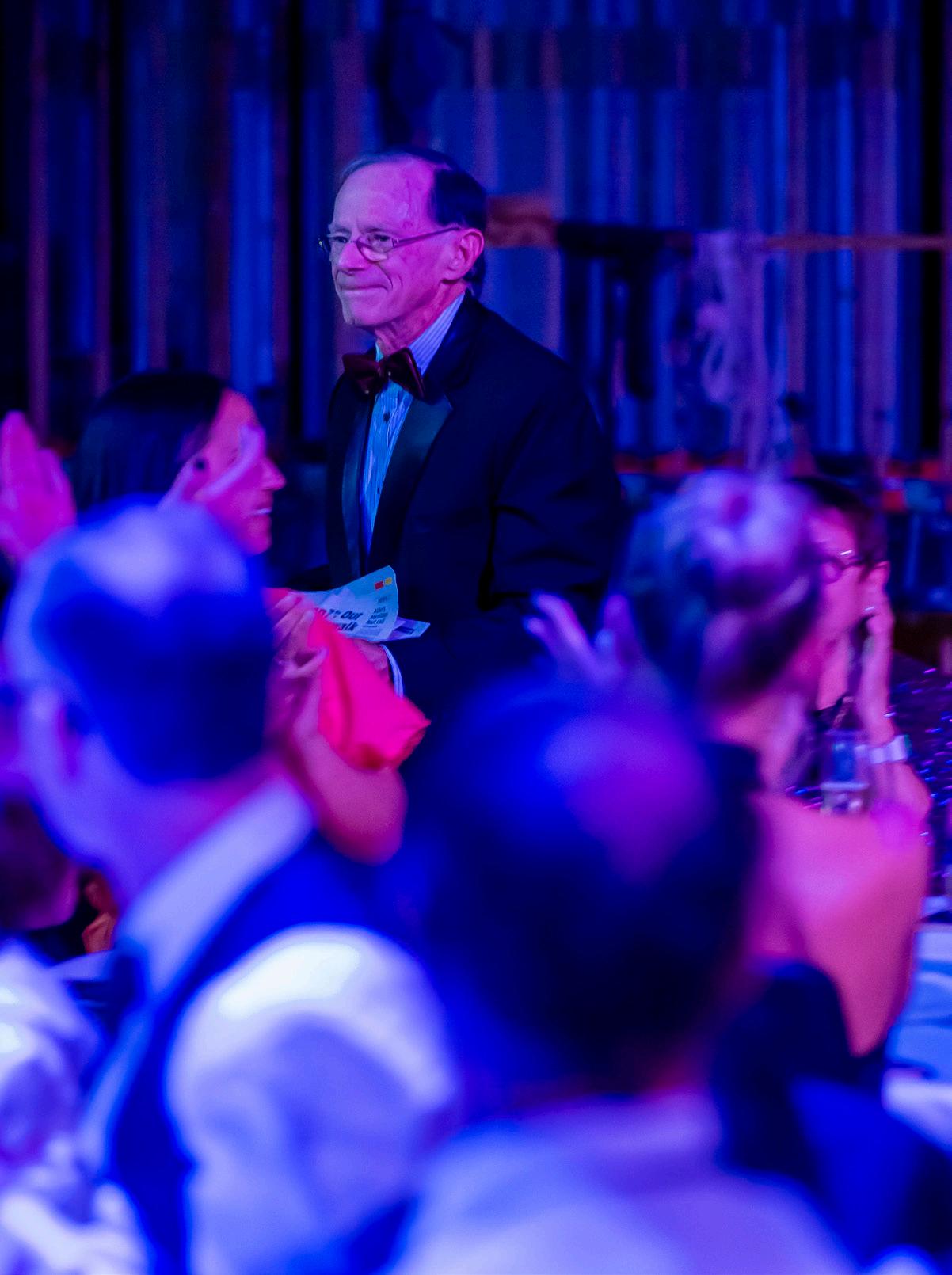
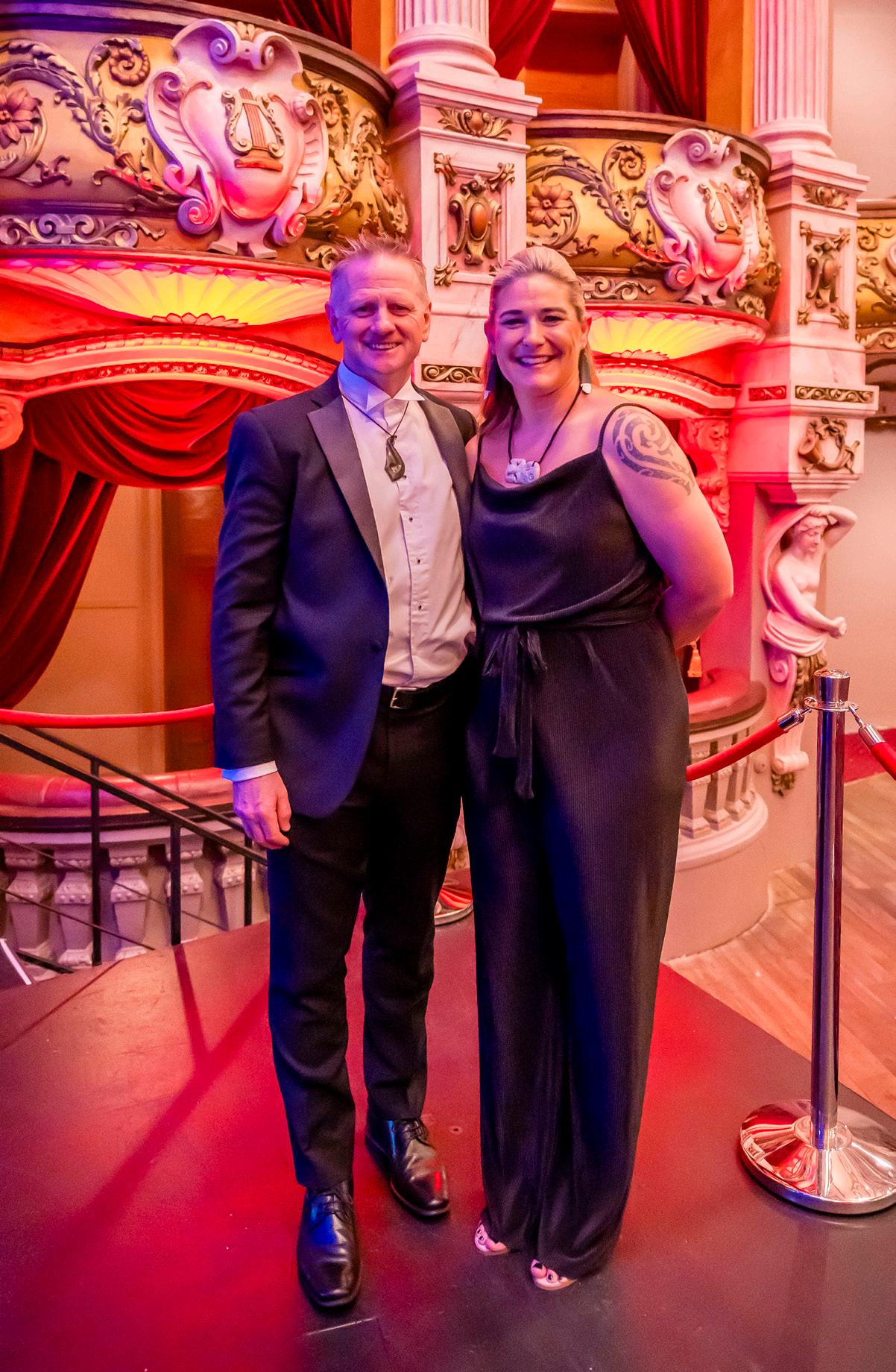
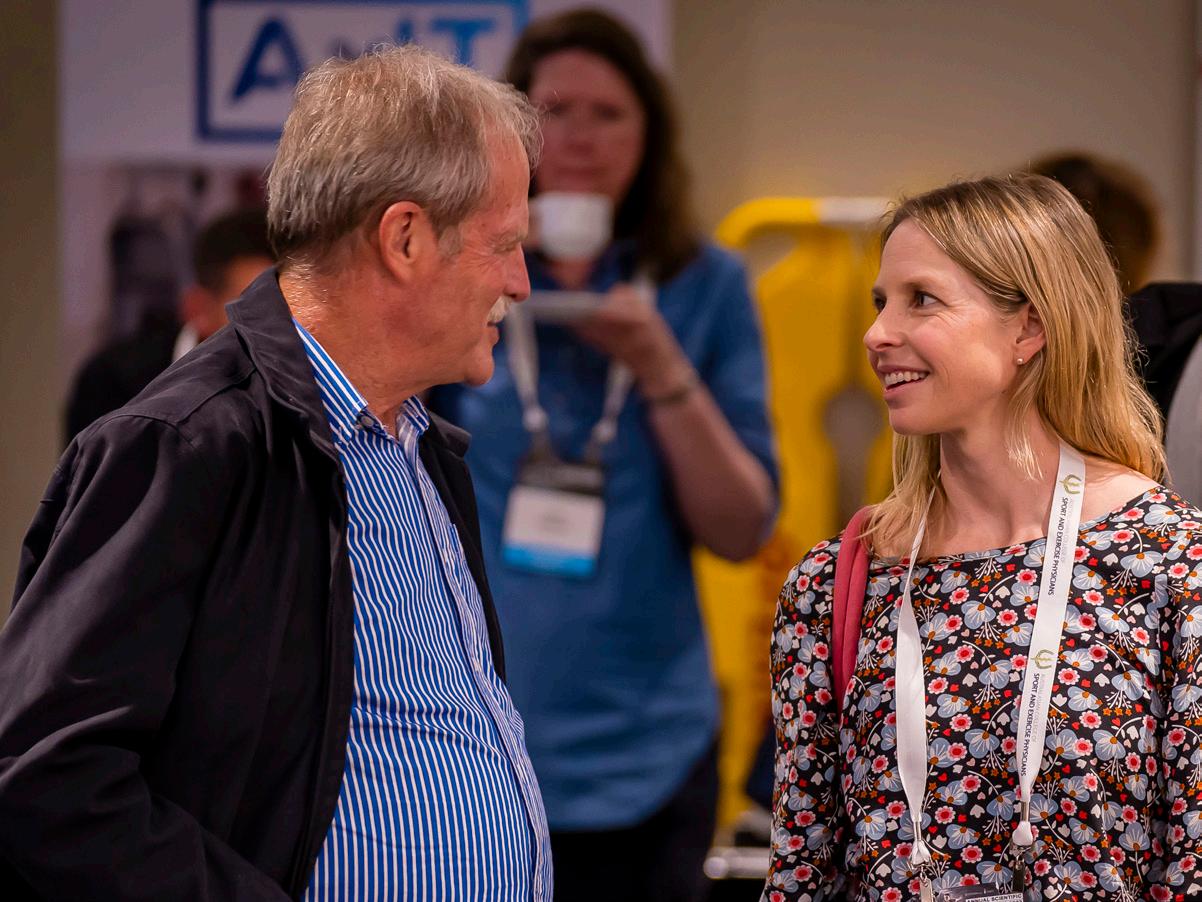
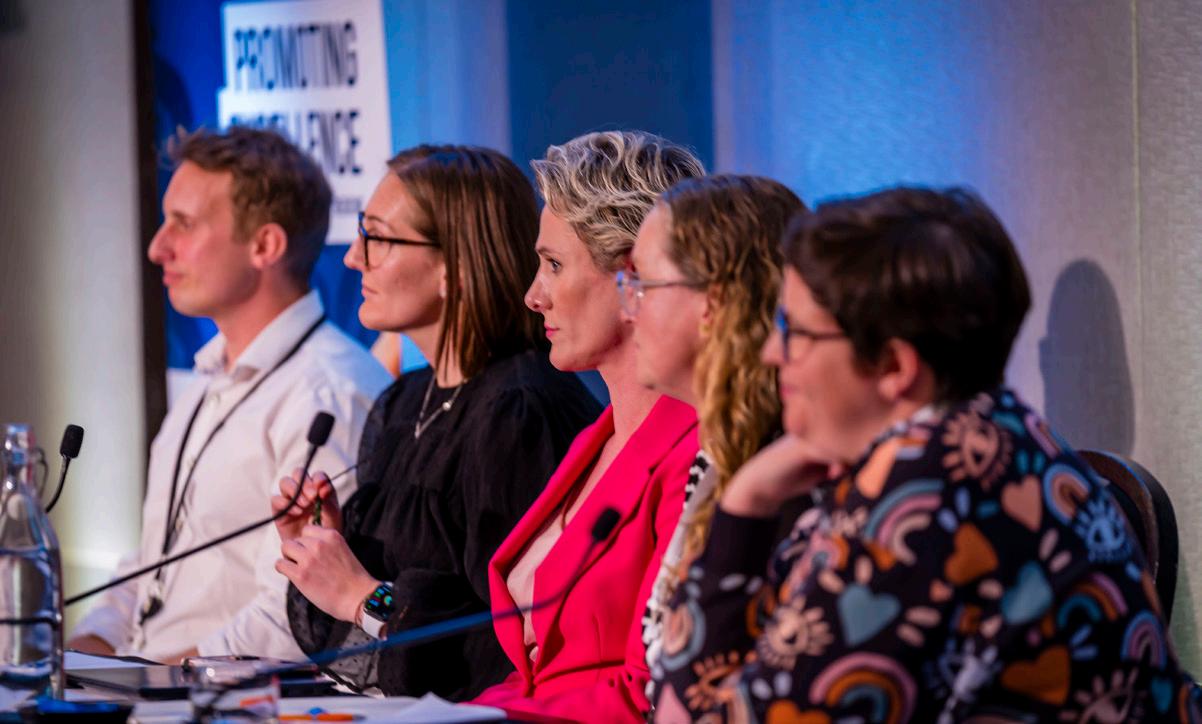
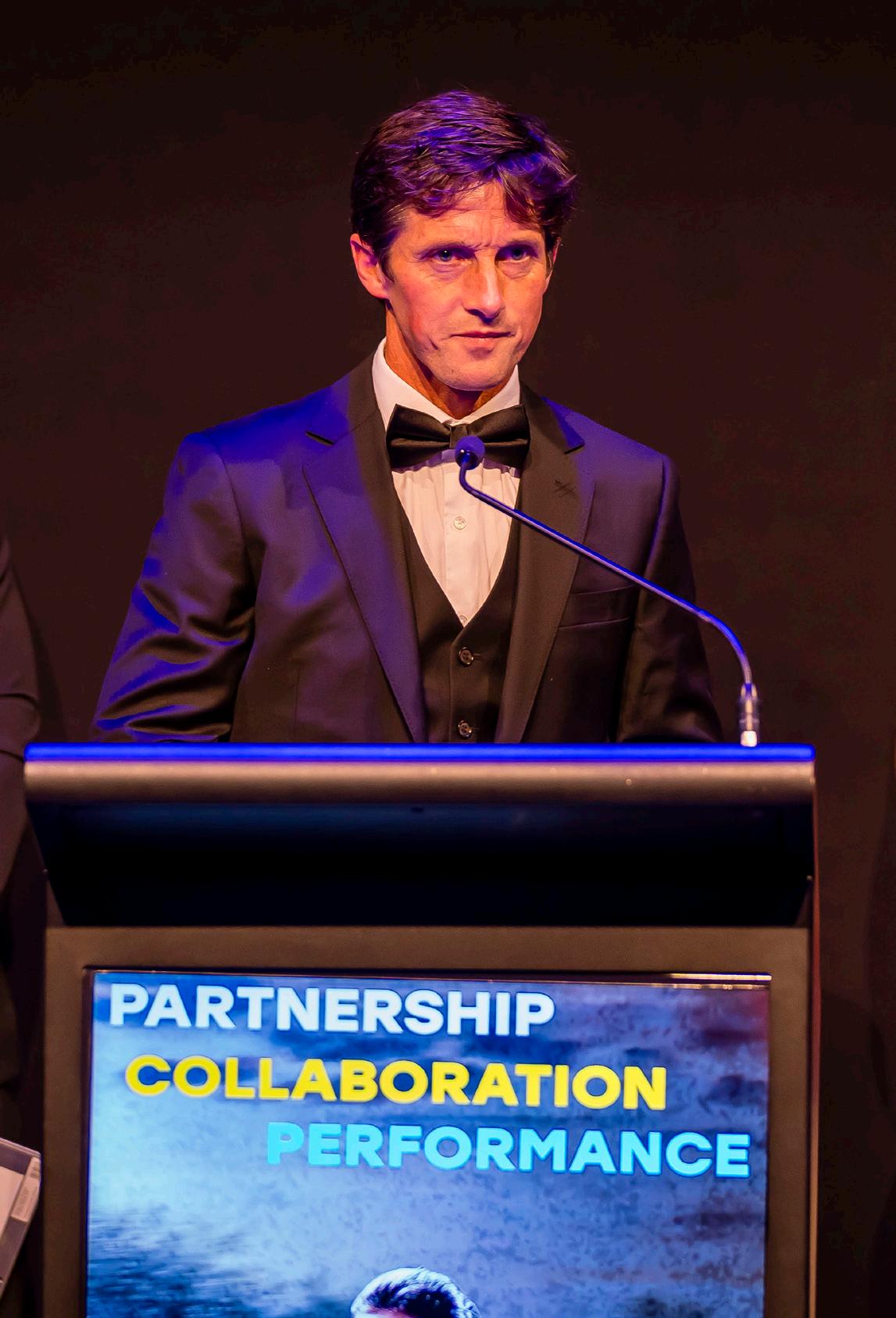
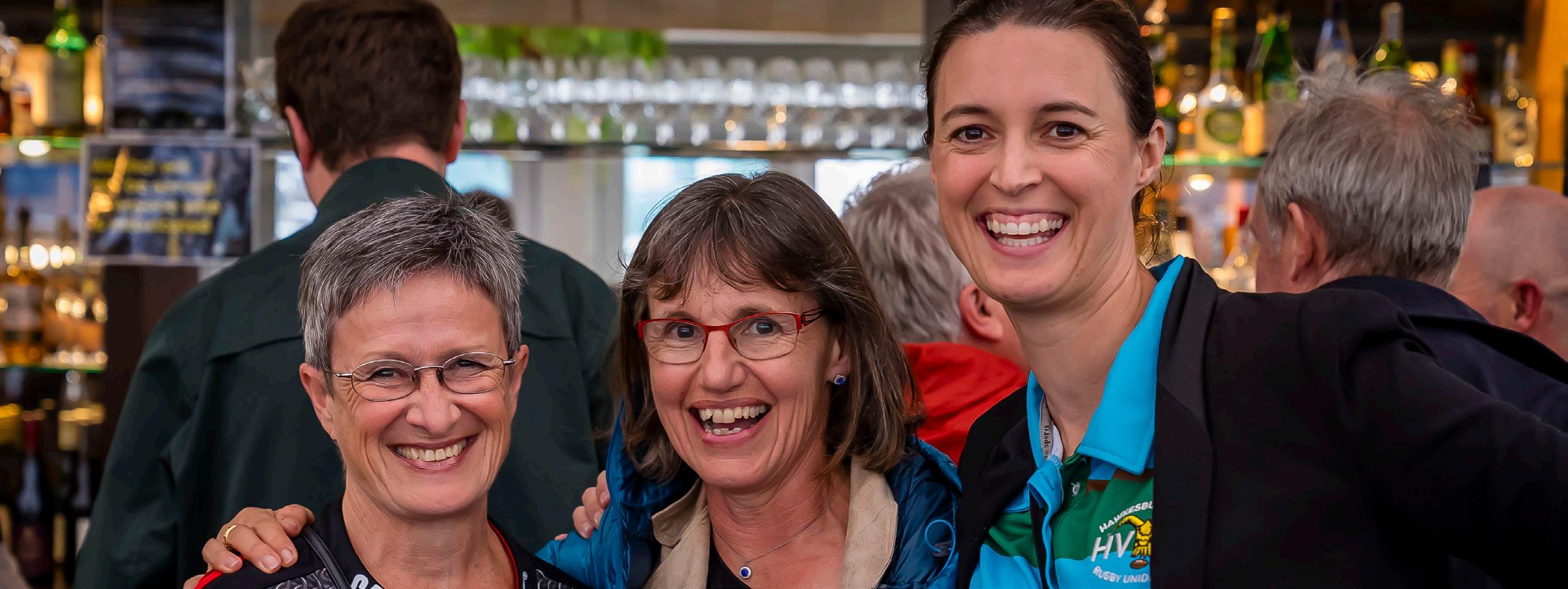
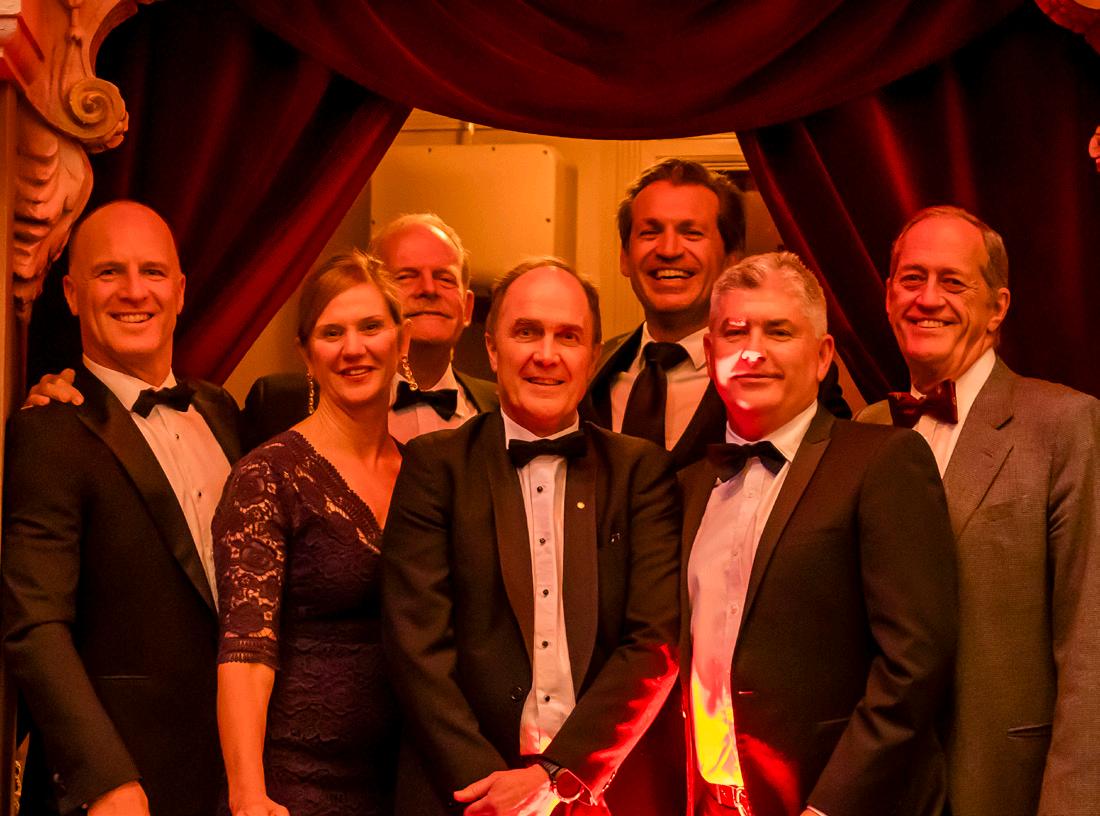

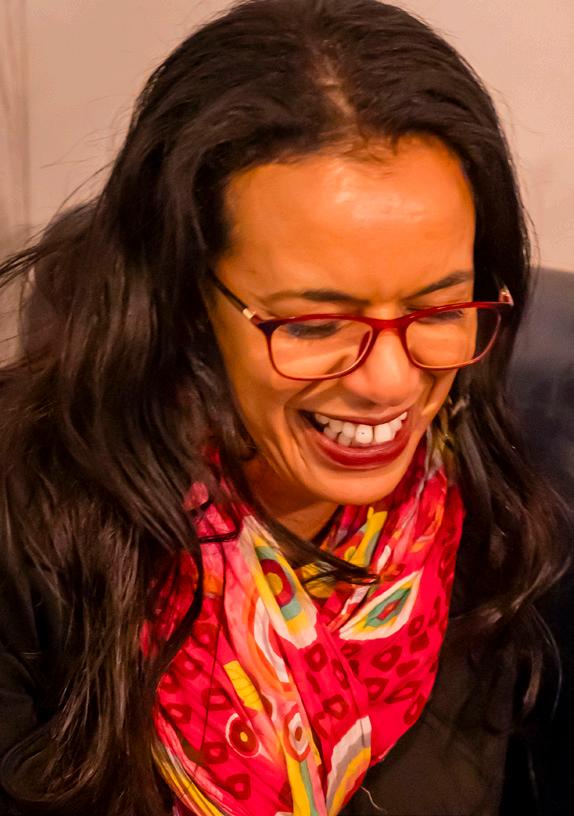
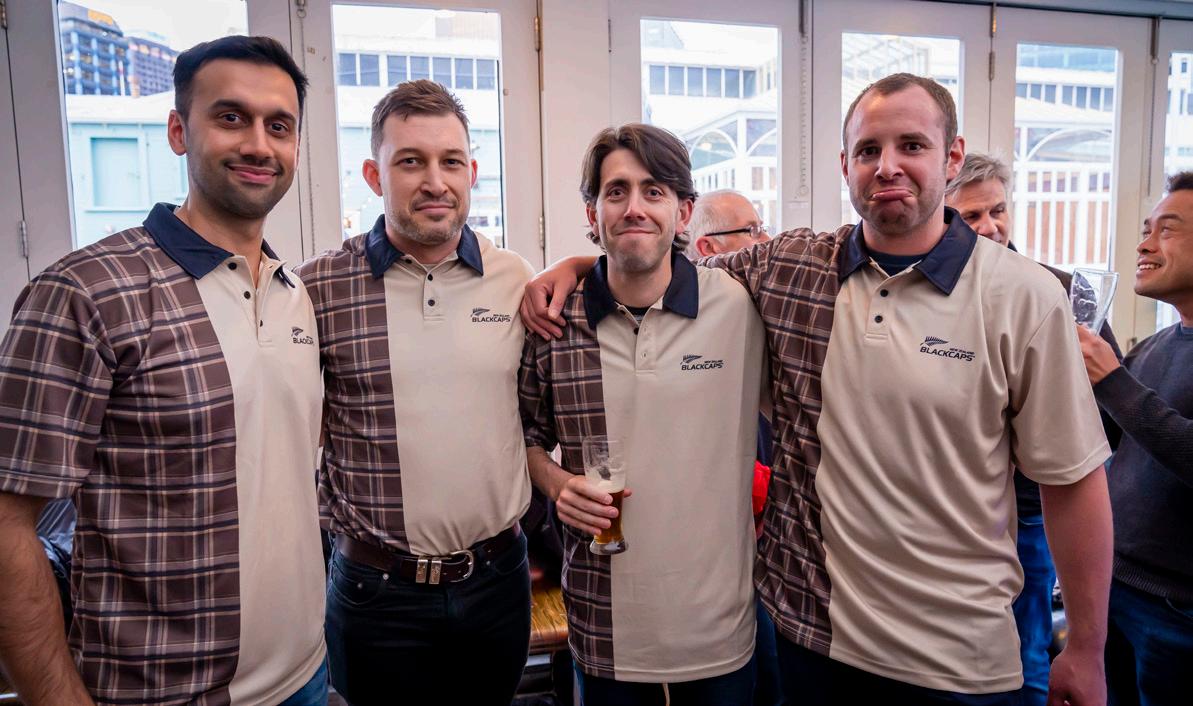
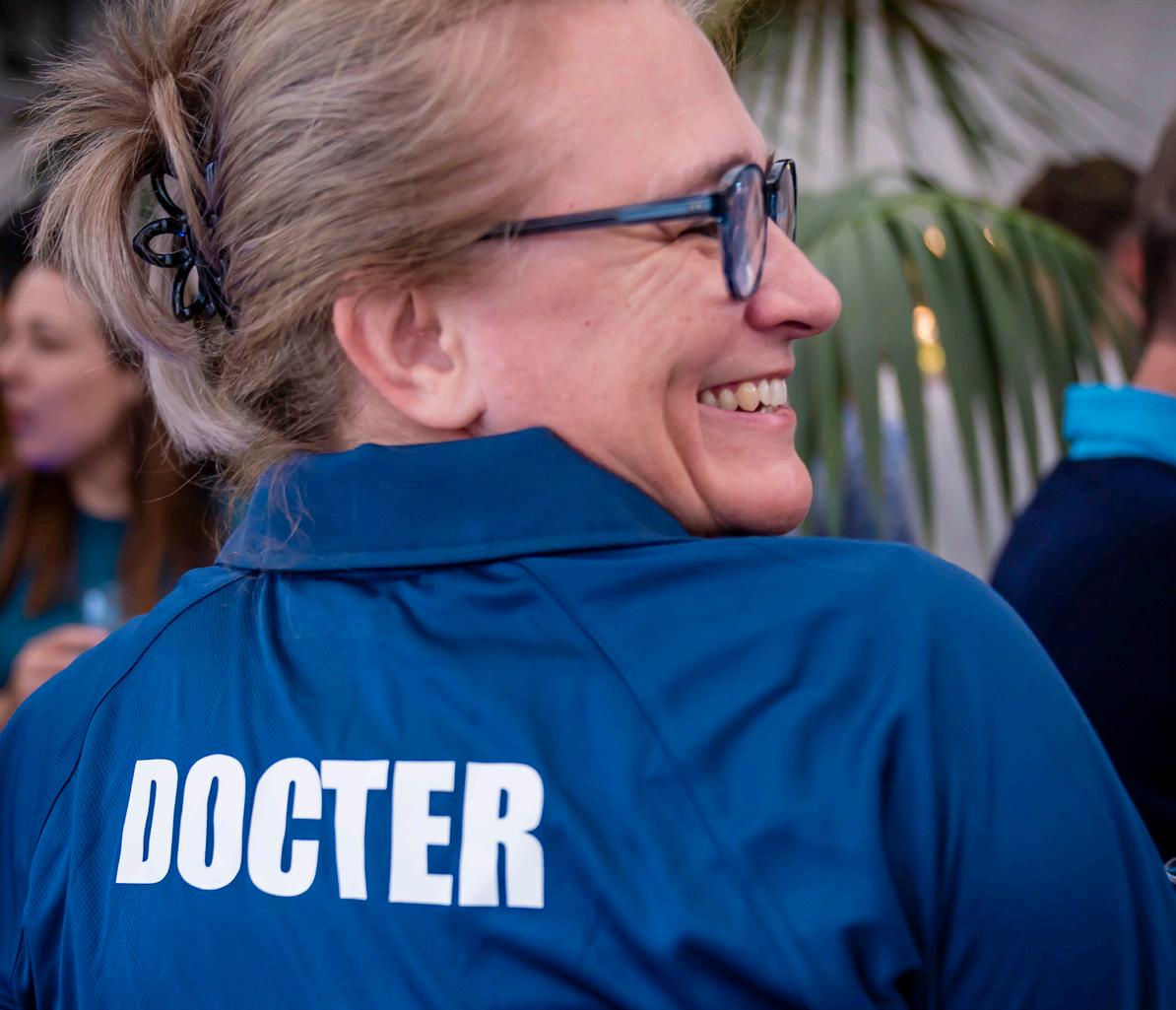

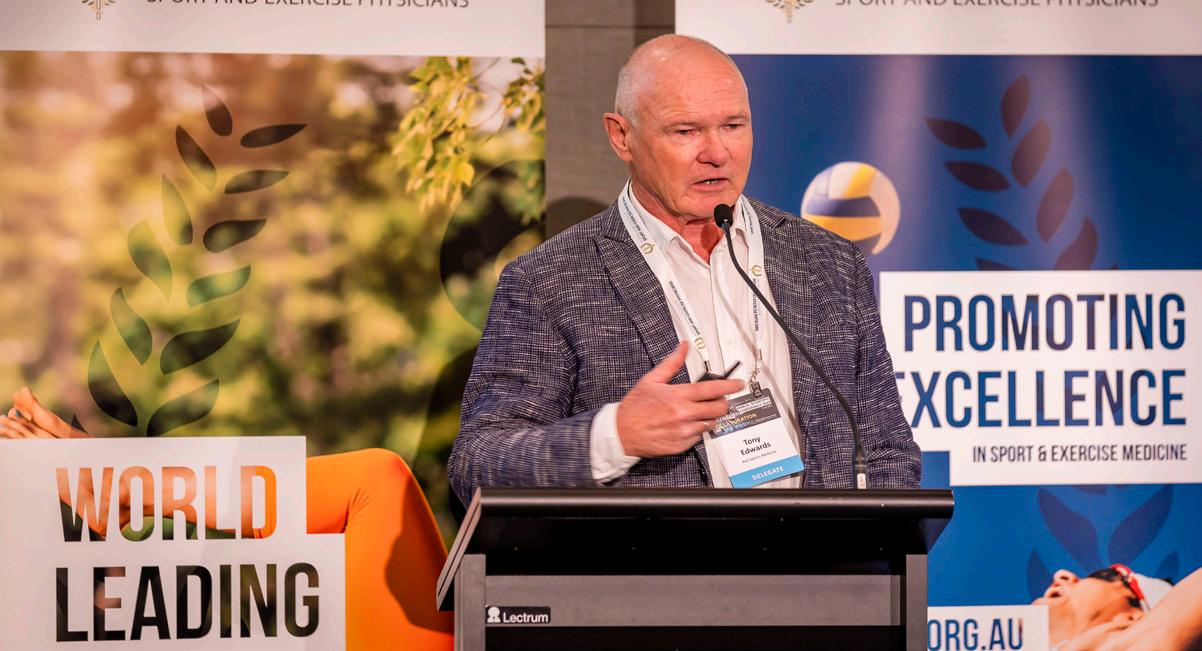
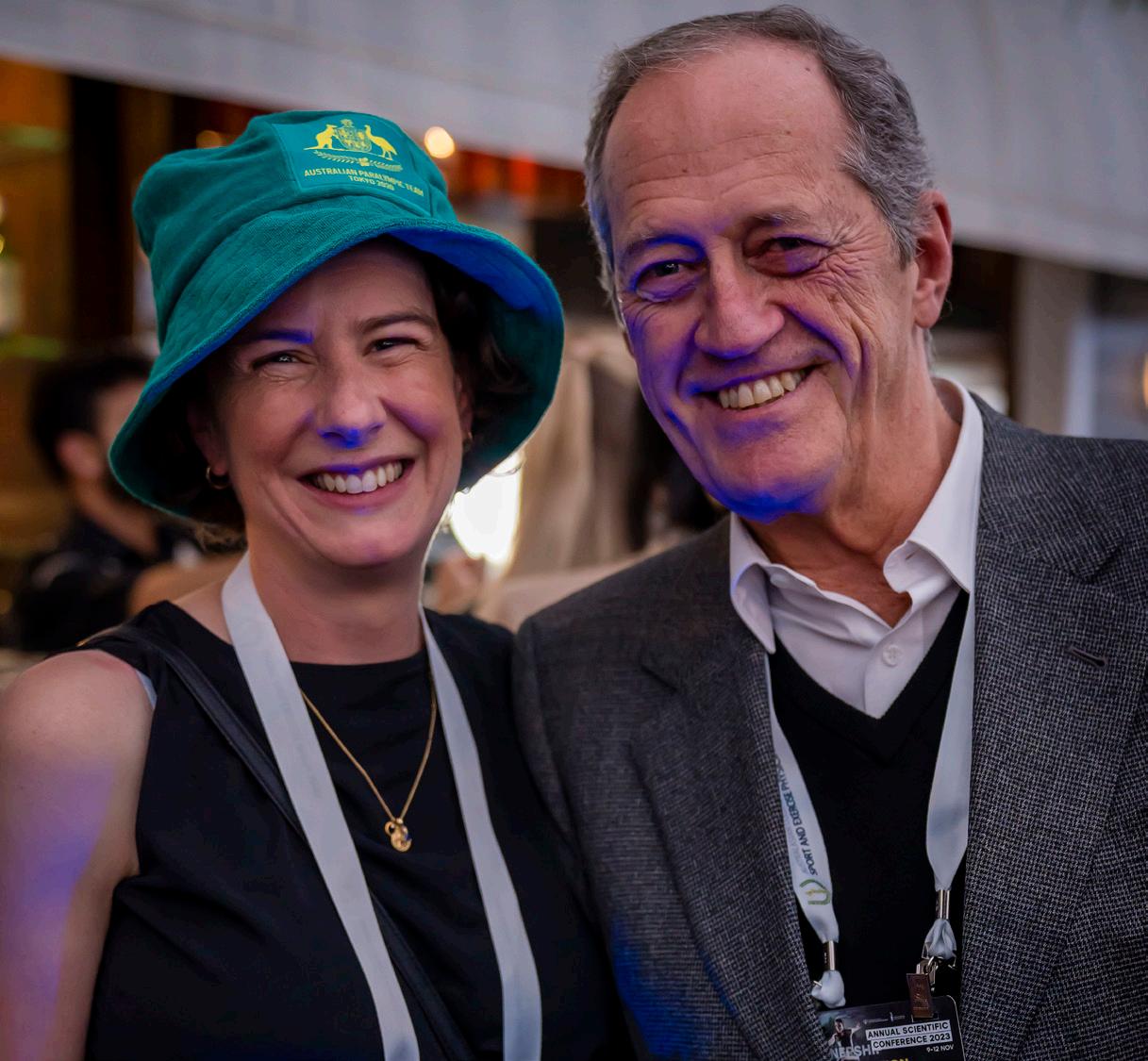
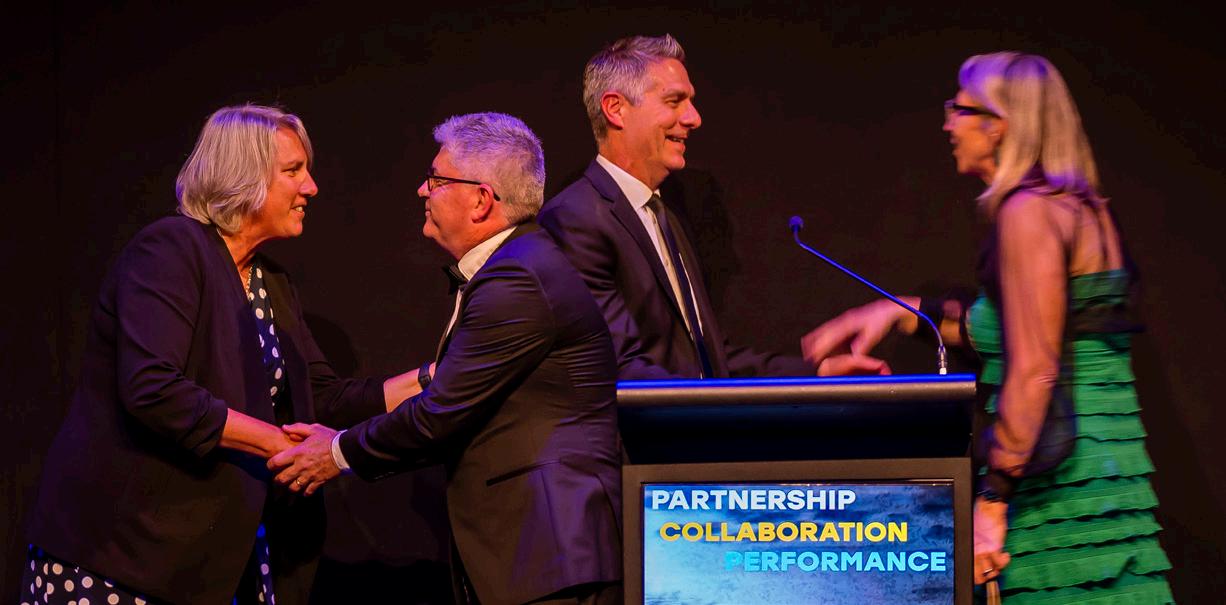
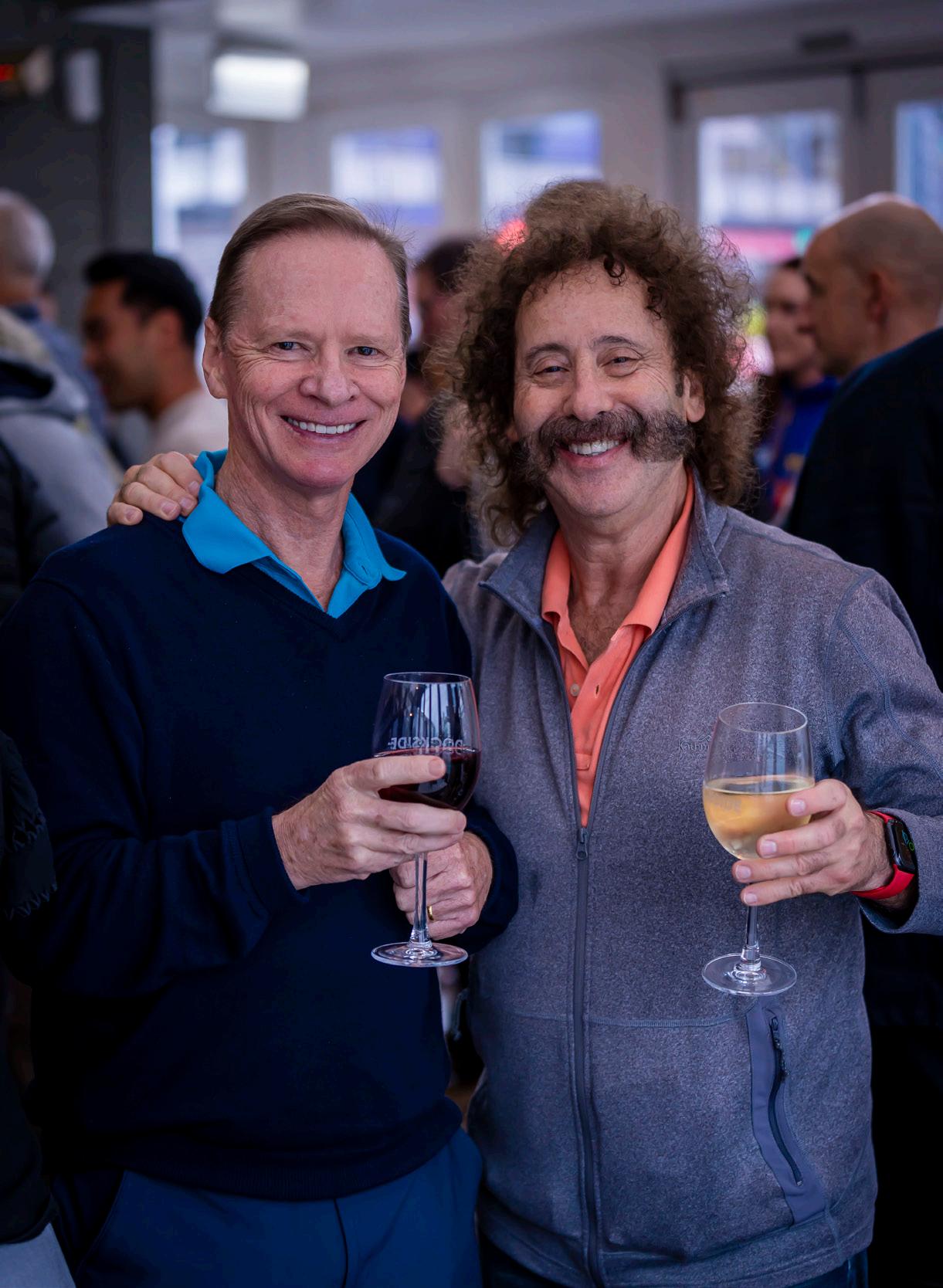
Dr Corey Cunningham
Ken Crichton Distinguished Service Award
Dr Alice McNamara
Fred Better Award
Dr David Humphries & Dr Steve Reid Training Supervisor Award
Dr Sophie Ootes
Dr Geoff Thompson Rural Scholarship Award
Dr James Brennan College Medal
Dr Lari Trease
Fellow Research Award
Dr Dougal Middleton Registrar Research Presentation
Indigenous Scholarship Awards
Mr Jarred Hodson
Maori Recipient
Dr Gyanendra Prasad
Pasifika Recipient
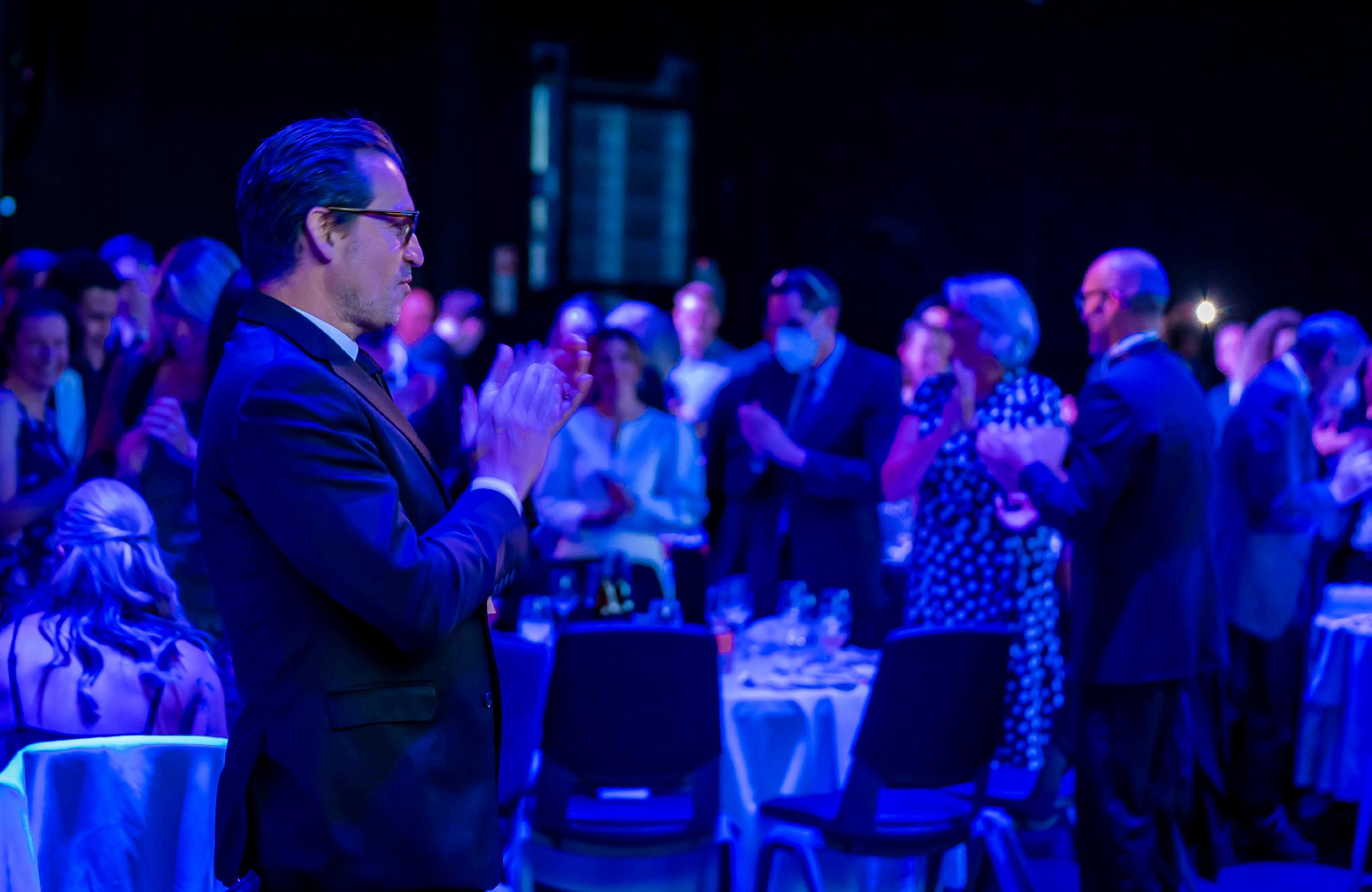
Dr Tamika Ponton
Aboriginal & Torres Strait Island Recipient
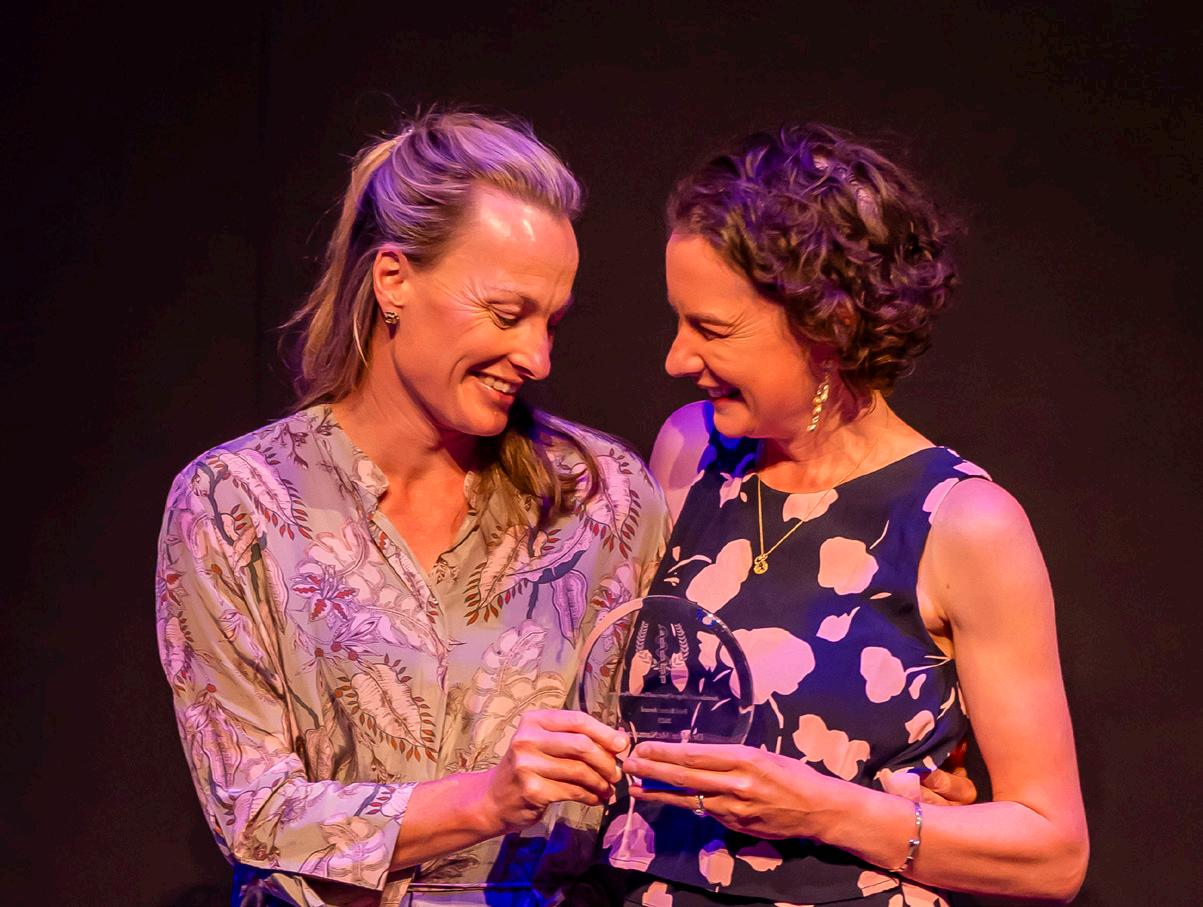
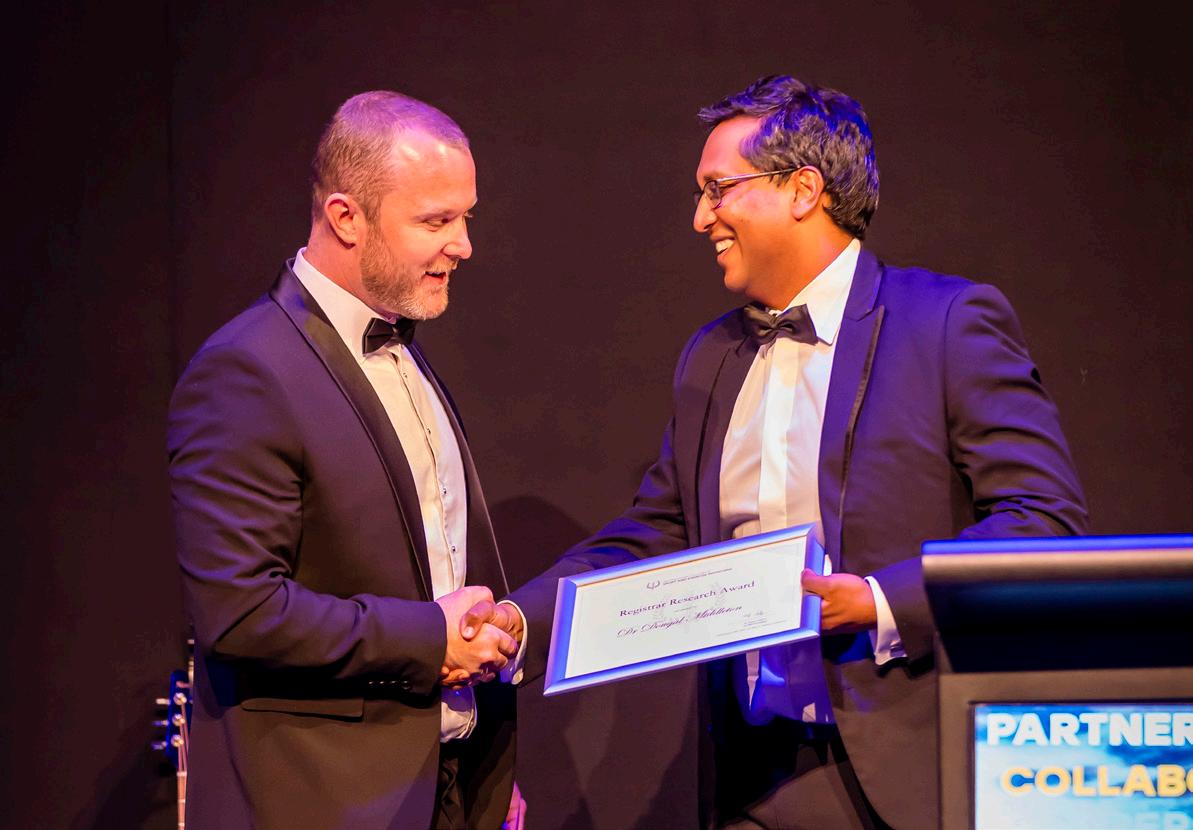


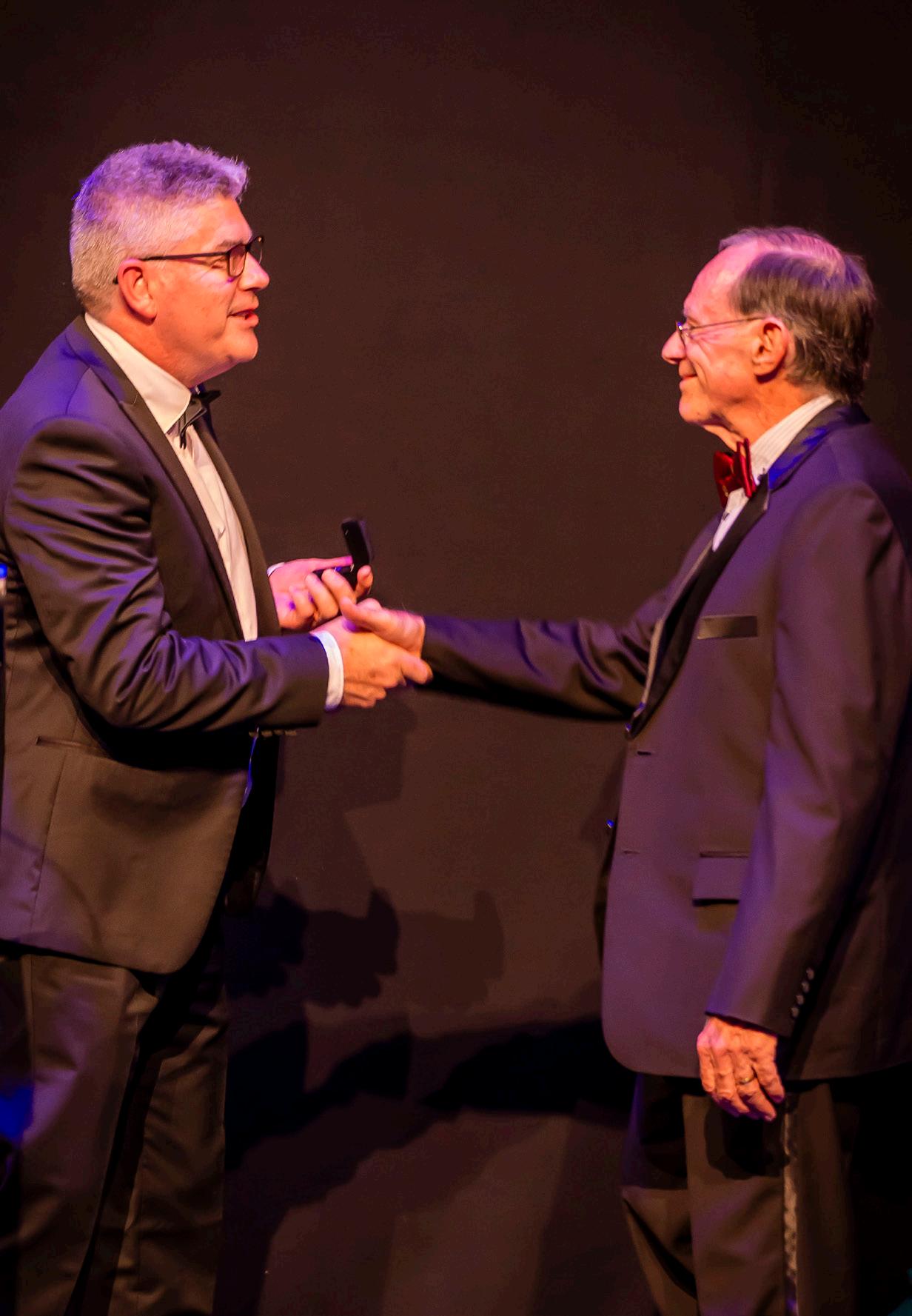
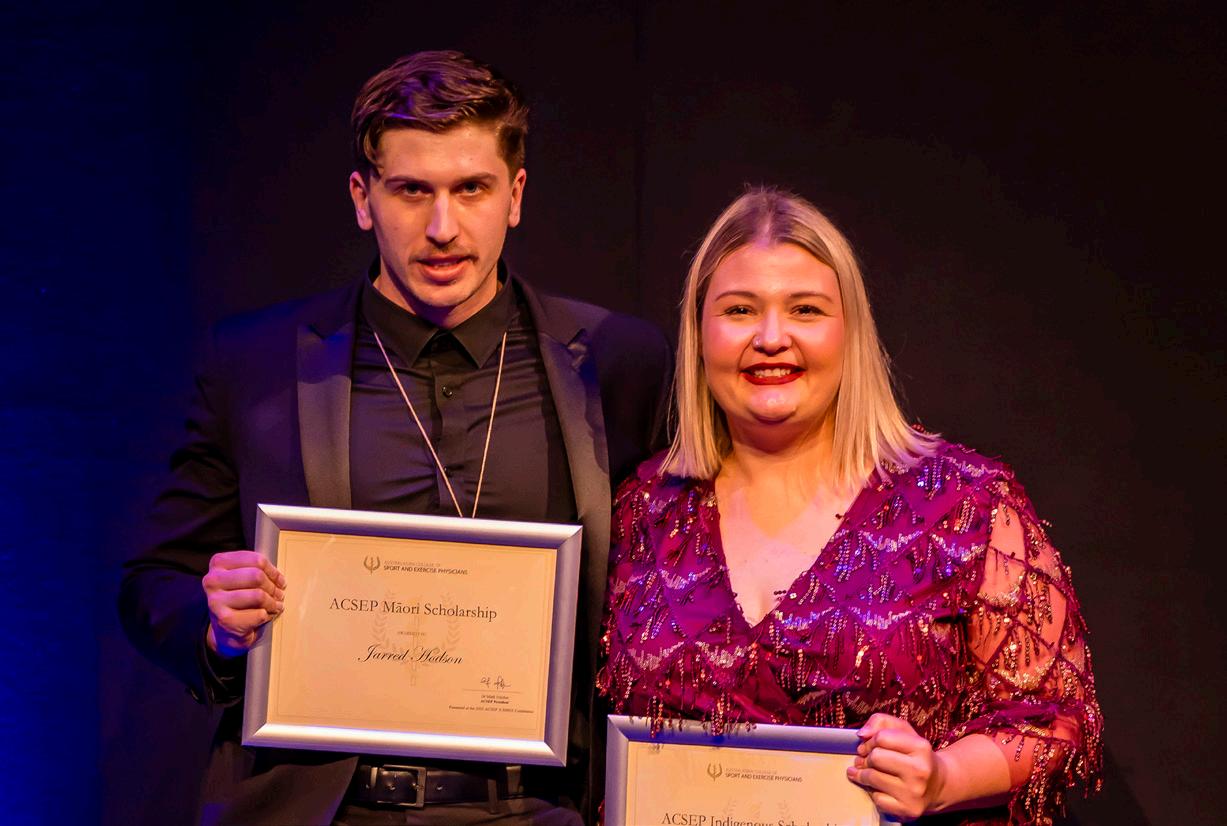
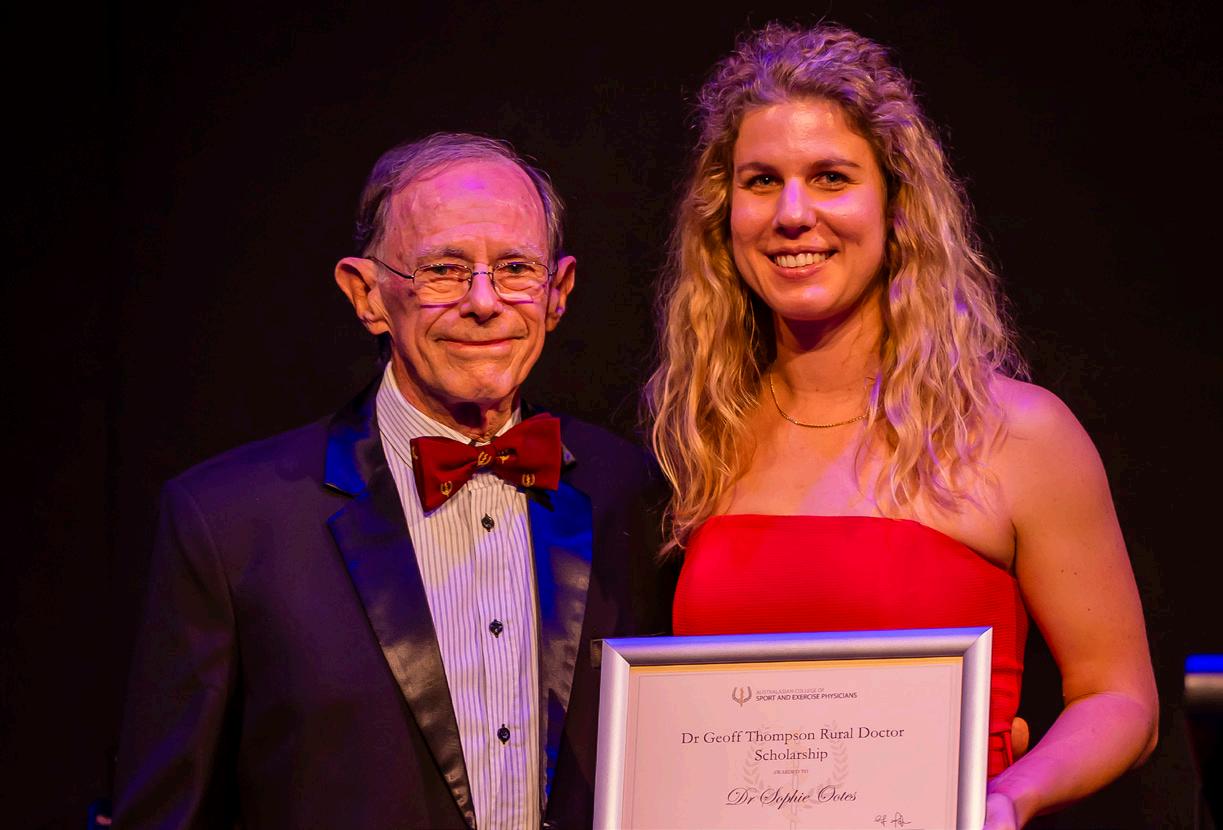 Dr Corey Cunningham
Mr Jarred Hodson & Dr Tamika Ponton
Dr Sophie Ootes
Dr Lari Trease
Dr David Humphries
Dr Dougal Middleton
Dr Corey Cunningham
Mr Jarred Hodson & Dr Tamika Ponton
Dr Sophie Ootes
Dr Lari Trease
Dr David Humphries
Dr Dougal Middleton
2023 has been a busy and exciting year for the SEM Academy Modules with development underway of not only the usual STP modules, but 3 modules arising from our relationship with BASEM.
In early 2023, the Swimming sportsspecific module was launched, with a huge thanks to Dr Rachel Harris and A/Prof Jeni Saunders for their tireless work to pull this together. Motivational Interviewing and Behavioural Change is an engaging module demonstrating practical skills to assist you work with your patients to encourage motivation to change behaviour. Hamish Reid has created a highly interactive and thoughtful module for us to enjoy and learn from! The MOST supplementary module was launched as a preparatory module for MOST Course participants to familiarise themselves with the basics prior to the in-person course, giving participants more time to spend undertaking practical aspects of emergency management of sporting trauma. I would like to thank Dr Sharon Stay for her huge efforts here, and the team on the MOST Advisory Committee for their input.
In 2023 we were hard at work developing a Snowsports module, thanks to Dr Donald Kuah and his team of Dr Kira James and Dr Peter Braun. This module, covering downhill skiing, cross country skiing and snowboarding was released early 2024. In addition, the indefatigable Dr Rachel Harris has created the content for the Female Health module, released in early 2024.
I am delighted to note that also in production is a Paddlesports module, with thanks to Dr Andrew Griffin, a well-respected sports medicine and Paddlesports expert. This too was released early in 2024. We have two further modules in development and scheduled for release in April 2024 from the 2023 STP funding pool, which are Team
Sports – Organisational management and Ethics in Team Care, with content developed by the experienced Dr John Best, and Climate Change and Sustainability in SEM which I am creating. Dr Corey Cunningham and his team are well underway developing the Ultrasound module which will run alongside the ACSEP Ultrasound Course. I am grateful to Dr Best and Dr Cunningham for their ongoing efforts.
In 2024 we aim to take three new modules into the module development stage: MRI Interpretation, Hip and Groin Injuries and a Train the Trainer module from our SEM partners in BASEM. These modules will be developed by leading practitioners in the UK.
Finally, in 2024 we have received approval to create three new STP modules, and funding to update the Clinical Training Supervisor modules to reflect the transition to competency-based training. The new modules include Martial Arts which would add to the sportsspecific module suite, Menopause and Exercise, and a further Ultrasound module, targeting ultrasound guided injection into major joints.
Finally I would like to thank Kymberleigh Bray and her team at White Leaf Solutions, for always providing us with the latest software, the most amazing design and interactivity, and is absolutely always a delight to work alongside. No matter the problem, there is always a solution!
We will let you all know as these modules are released.
A/Prof. Diana Robinson Chief Project Officer
Latest Releases
Australia
UK
NZ
USA
South Africa
Ireland
Canada
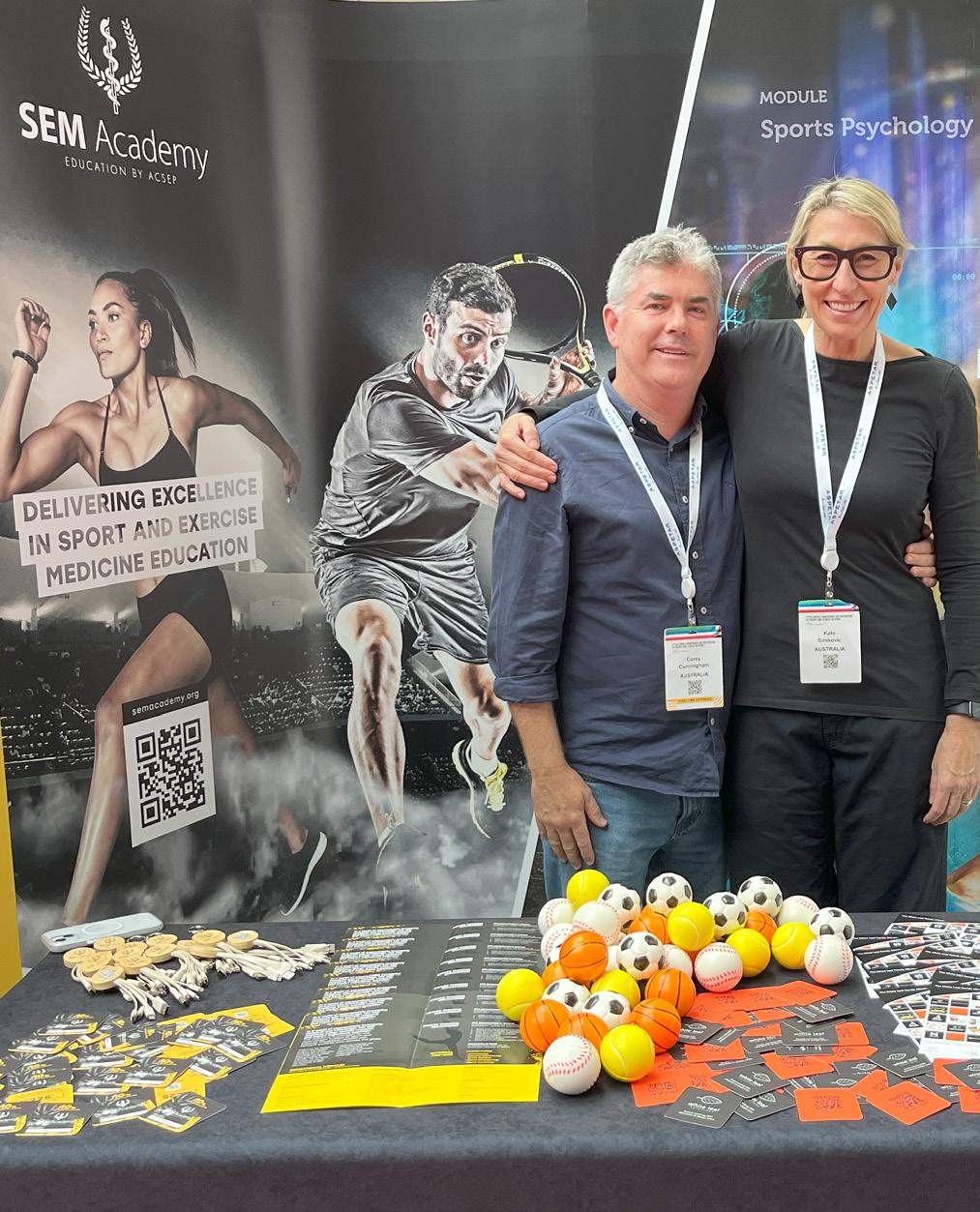
General Medical Care of the Athlete
Motivational Interviewing and Behavioural Change
Swimming
Management of Sports Trauma (MOST) Course
Snowsports
The Female Athlete
Paddlesport
Basics of X-ray Imaging and Upper Limb X-ray in Sports Imaging
Coming Soon
Organisational Management and Ethical Issues in Team Care
Ultrasound
Climate Change and Sustainability
Martial Arts
Ultrasound Guided Injections
Menopause and Exercise
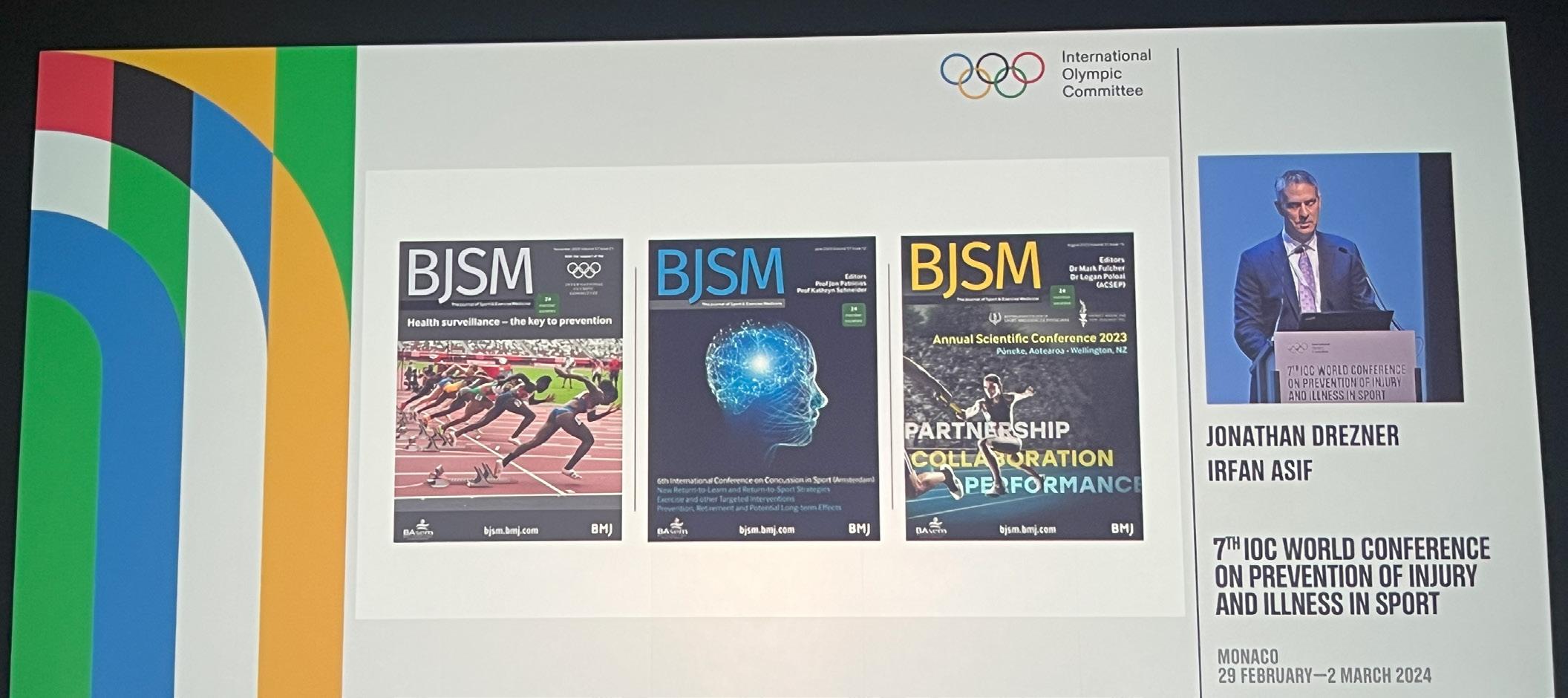
As the vast majority of our membership would know, the ACSEP Curriculum is transitioning to a competency or stage based medical education structure, commencing in 2024 with a trial of aspects of the revised curriculum commencing in 2024, and a full transition in 2025. As part of this revised program, the learning outcomes are spread across 11 Entrustable Professional Activities (EPA), or units of work that, when the Registrar is considered competent, with the appropriate knowledge, skills and behaviours, they will be ‘entrusted’ to carry out unsupervised. Each EPA is assessed via a number of Workplace based assessments, or assessment FOR learning, where appropriate, targeted and detailed feedback is vital. Throughout the three stages of training, various EPAs must be successfully achieved, along with other requirements of training (for example, the MOST course, Academic modules etc) before moving to the next stage.
The Fellowship exam will be decoupled with the Written Examination in Stage 2 and the Clinical undertaken in Stage 3. I will stress that during the transition, no registrar will be worse off than where they would have been with the current program.
Over the coming months there will be an extensive communication plan to ensure that all Supervisors and Registrars are aware of the changes. Please ensure you keep an eye on the weekly newsletters for the dates of planned Webinars for Q and As for Supervisors, Registrars and WBA assessors (non-teaching Fellows). Feel free to reach out to me, Dr Viran De Silva or Luke Major at the National Office if you have any queries or concerns.
Finally, in late 2023 Expressions of Interest were sought from Fellows to join a newly
established Workplace Based Assessment (WBA) Remote Assessment Pool which will provide support for Registrars and Clinical Training Supervisors with completing WBAs with a breadth of Assessors at times convenient to both Registrars and Fellows. The WBA Remote Assessment Pool will be made up of ACSEP Fellows willing to complete WBAs with Registrars via phone, live video conference or by watching and responding to a video recording of an assessment. Pool members will be able to claim CPD hours for assessments completed as per the current CPD Manual. As a further incentive, Fellows who complete at least 12 assessments per year will receive one night of accommodation in-kind at the ACSEP Annual Scientific Conference that year
Please contact National Office to express your interest. There will be assistance in understanding the requirements for all Fellows who act as Assessors via short training webinars and written information. The CTS Modules will be updated in the New Year.
Finally, I have resigned as the Chair of the Curriculum Working Group after 12 or more years in the role, initially developing the curriculum and subsequently reviewing and updating the document and training program. I would like to thank Ms Jodie Atkin for her unwavering support over all these years and more recently the Curriculum Working Group who took a large load from my shoulders.
Dr Sharon Stay has now taken over the role of Chair of the Curriculum Working Group and I have no doubt she will continue to maintain the high standards that ACSEP has set in this area.
A/Prof. Diana Robinson Chair, Curriculum Working Group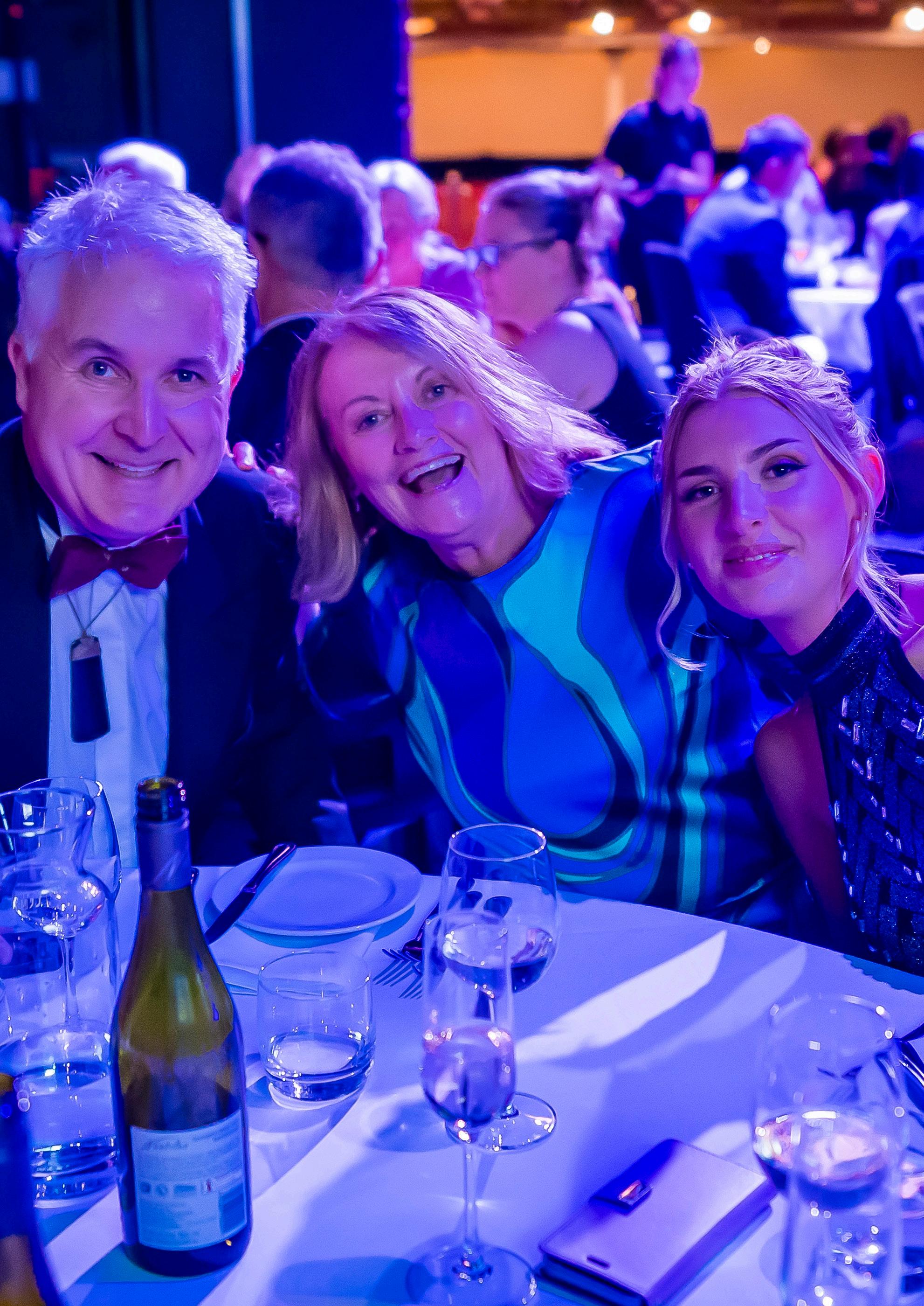
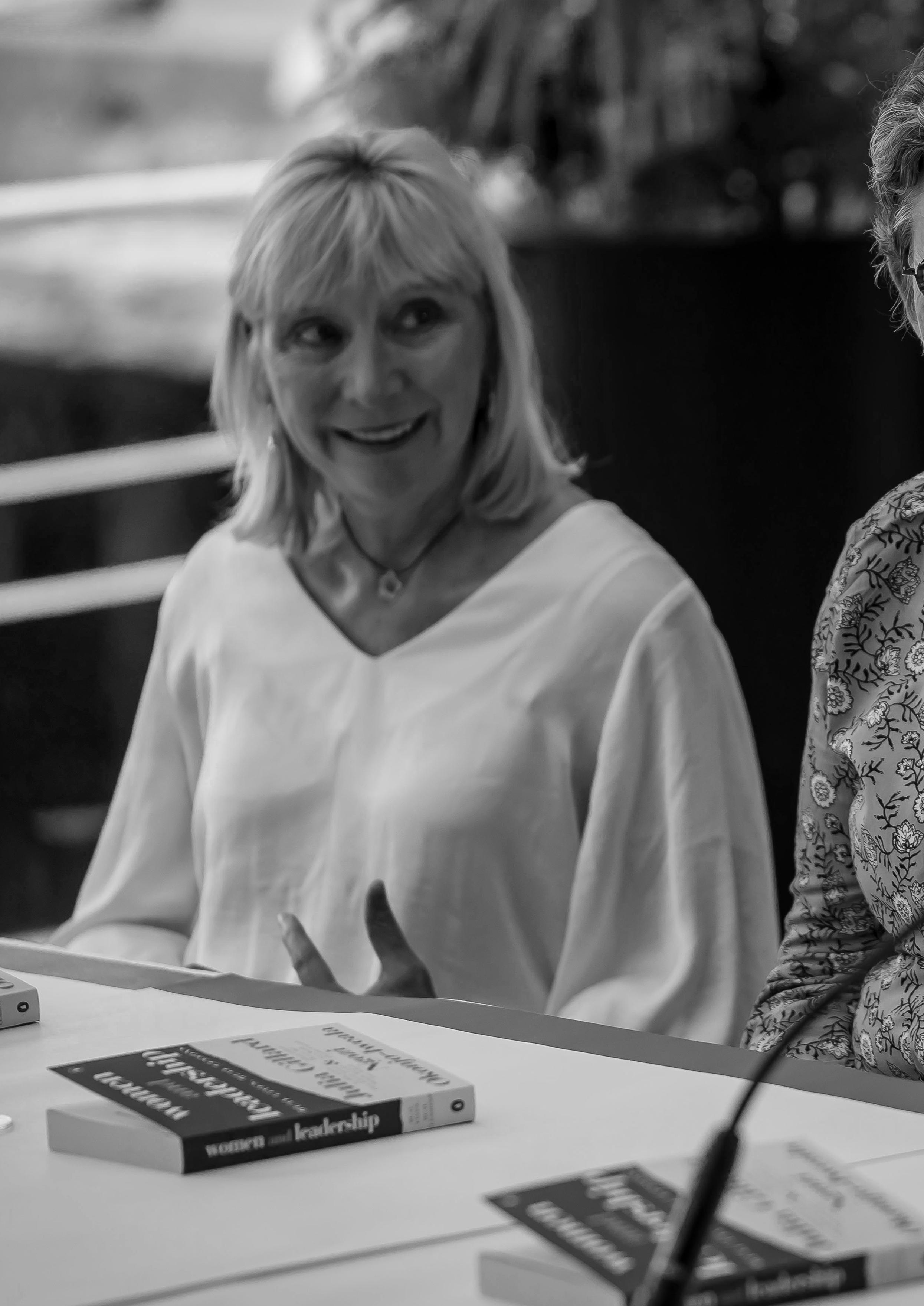
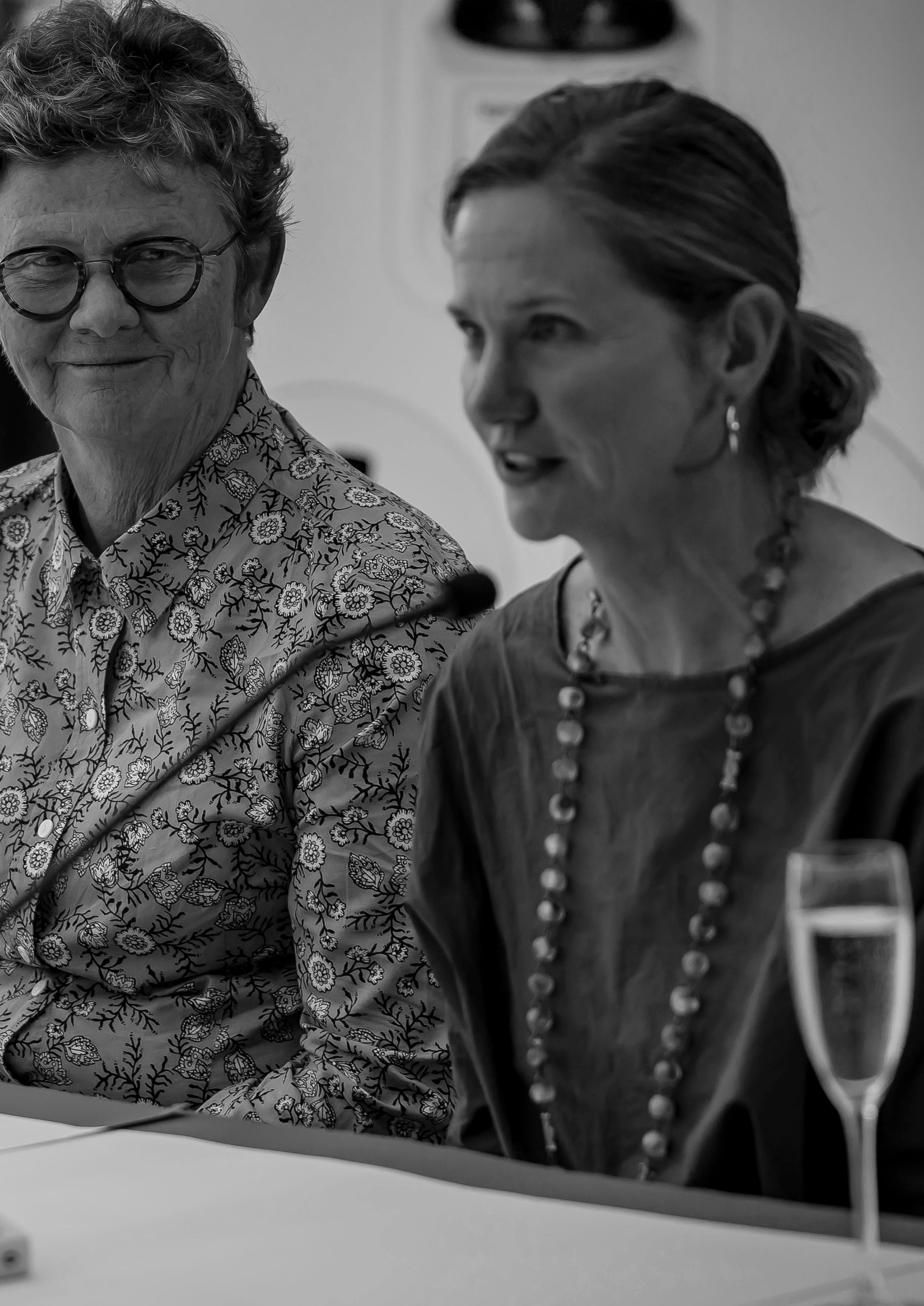
“
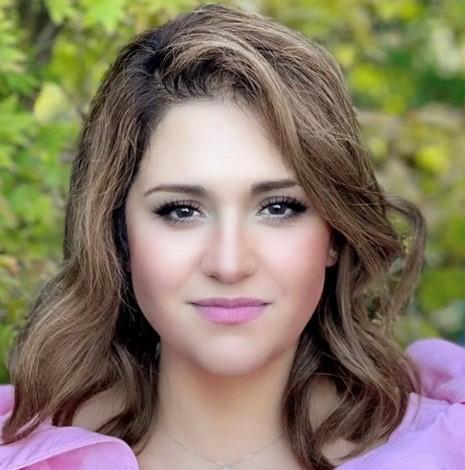 Mona Shabghareh Fellow
Mona Shabghareh Fellow
What influenced you to become a Sport and Exercise Physician?
I studied medicine in Iran, Sports medicine was quite a novel specialty when I was at medical school. I had not had any experience or idea of it until 2009 towards the end of my internship. I made the decision to become a sport physician knowing that it would give me a huge opportunity to make a difference in this challenging area, as well as it being a rewarding speciality.
My decision was based particularly on my interest in musculoskeletal injuries and preventive health management. I have always been interested in helping people to live and lead a healthier life and achieve optimum health.
If you weren’t a doctor, what would you have been?
If I was not a doctor, I would probably be a biologist. I am fascinated with our planet’s natural beauty and especially love exploring the animal kingdom. My hobbies include watching wildlife documentaries or strolling in wildlife sanctuaries.
What do you enjoy most about what you do?
I believe there are many enjoyable and satisfying characteristics of being a sport and exercise physician that are not easily found in other fields of medicine.
Our job is quite versatile, whilst you have the opportunity to work with professional athletes and sports teams in elite environments, you can also work with the general community and promote public health by optimizing your patients’ physical and mental well-being .When I practiced in Iran, I had a fantastic
I am fascinated with our planet’s natural beauty and especially love exploring the animal kingdom.”
opportunity to work in cardiac and pulmonary rehabilitation centres and help patients with chronic diseases to live a healthier life and get the best from themselves.
I also enjoy how our job as a sports physician is collaborative and the best results for your patients are often achieved when you collaborate well with other specialists, physicians, and allied health professionals. I find myself more motivated and happier working in a team rather than as an individual.
Moreover, I think the holistic approach we have in management of our patients is outstanding and has a positive impact. We are not only focused on MSK injuries but we also utilize our knowledge in other medical fields to take great care of other aspects of our patients’ health.
Are there any learnings or challenges that shaped your experience as a Sport and Exercise Physician?
Once I entered into the training program as a sport medicine Registrar 15 years ago, I embraced the challenges ahead with an open mind. It has been a long journey to get to where I am now. One of the most challenging times in my career was when I was working in a public hospital in a remote, deprived area in Iran (Susa). I was the first sport medicine specialist in that area Not only were patients confused about my role in their management plans, but also the other physicians had no idea about sports medicine. Unfortunately, more often than not they had little faith that I could help patients until they tentatively referred some patients and witnessed some good results.
The public health system could not provide anything more than a room and
very basic equipment for me to practice. There was no MRI machine available. My hands were tied in regard to being able to complete diagnostic and therapeutic procedures.
Therefore, I mainly relied on my clinical assessment and the magic of tailored exercise therapy. My strong belief about the therapeutic effects of exercise was further reinforced during this period and as a result my examination skills were greatly improved.
It is clear that moving to Australia as an overseas trained specialist and becoming a FACSEP was a turning point for me. Starting to practice in a new country just when COVID-19 hit was yet another challenge. I was extremely lucky to have a supportive husband and a fantastic supervisor, Dr Leesa Huguenin, who helped me to get through such an overwhelming situation.
What is the best career advice you have been given?
My grandfather was an ophthalmologist. He advised me to never stop learning, and don’t ever think you know enough as medicine is always evolving.
He kept reading medical articles and journals even after his retirement and until he passed away at the age of 96.
If you could be the best at any sport, what would it be and why?
I would love to be a professional dancer, I love jazz and hip hop, especially the synchronized performances. The combination of music, synchronicity of the dancers and creativity of the choreography is magical to me.
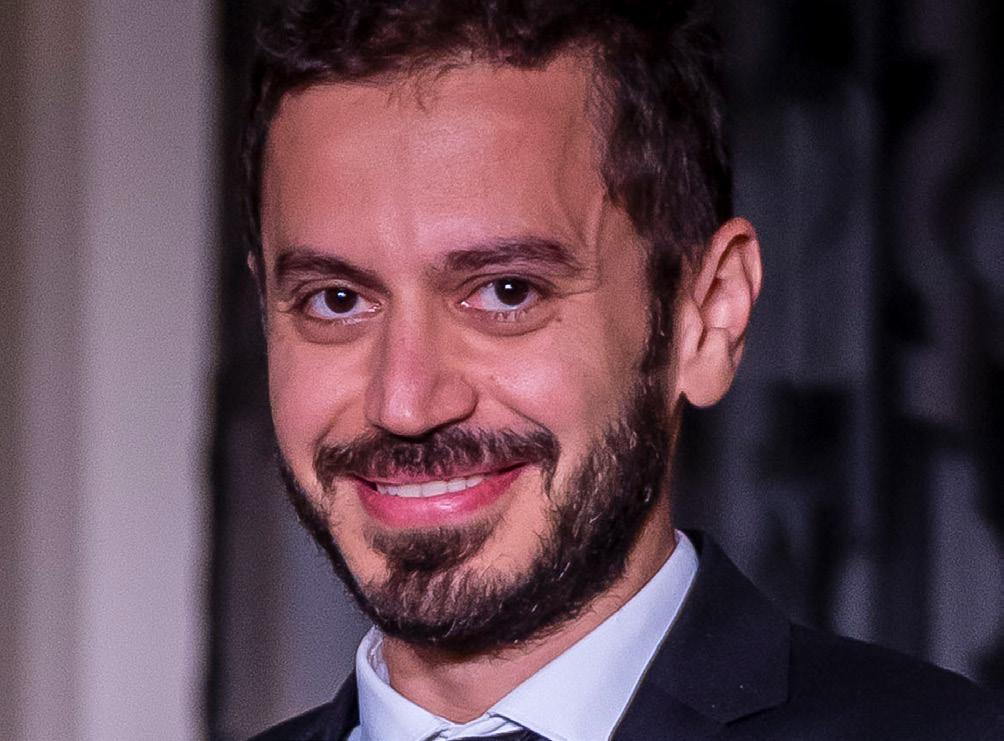
What influenced you to become a Sport and Exercise Physician?
I decided to work in musculoskeletal medicine at 5th Grade Med School (2008). One of the important moments included when I met a Professor in Physical Medicine and Rehab applying manual therapy during the practical hour of the internship and how that immediately affected people’s pain and function. I saw the surgical approach later on during surgical internships, and I thought I would fit in the spectrum between pain and surgery well within non-surgical MSK practice. I was not fully aware of the specialty of Sports Medicine until I met one of my mostinfluenced-by supervisors – Prof Bulent Bayraktar. Everything then made sense about Sports Medicine, but specialty examination process and point-based choice system in Turkey both add extra layers of difficulty on final placements – available cities, number of vacancies, chances of being placed according to list numbering – I got quite lost in the system and almost became a Physical medicine and Rehab specialist. Although both are quite relevant, SEM had a better international representation and more dynamic workflow. My wife Anita always
supported me saying I would be a much better fit with SEM and we were both really happy to learn I received the placement in Istanbul University, Sports Medicine Department. Anita later regretted this quite a bit – me flying with teams every fortnight and coming home at 11 pm most match days – sorry darling!
If you weren’t a doctor, what would you have been?
I would have most certainly enjoyed an organisational job in music industry – as an event manager or an event photographer. I was lucky enough to lead the students’ Music Club for 3 years in med school and we broke records on ‘largest audience attending’ to a student-run event in med school. I also had the best times being an accredited event photographer in rock concerts and event.
What do you enjoy most about what you do?
I mostly enjoy the exceptional positioning of SEM amongst all other specialties in medicine, covering such a broad scope of practice of medicine. More often than not I hear patients saying that they had no idea about what we could do and that they are so grateful to know that we exist in clinical practice. Most of these patients would be somewhat lost in between specialties and be told to ‘live with’ their pain / disability, while SEM physicians would likely find a way to alleviate this and improve their function and wellbeing. Is there anything more common than musculoskeletal pain?
Although the organisational aspect of this specialty brings its own challenges – it is another reason for me to enjoy it. I remember working with the National Anti-Doping Organisation during Athletics Championships with real time radio communication and it felt like running a concert at times. Similarly, being responsible
for the whole crew of a team us a very big responsibility but also such a joy when things go as expected and you return home with a victory from intercity or abroad.
I can not not-mention the interventional aspect of our specialty and the benefits and joys of it as being my special interest area. Having a point-of-care Ultrasound – I still remember how I took care about my portable US device travelling with team. Using US to aid diagnosis, follow up and treatment is a true joy to me.
Are there any learnings or challenges that shaped your experience as a Sport and Exercise Physician?
During my training in Istanbul I had to manage doing my degree in Biomedical Engineering, registrar training and being an A team physician of a professional soccer team. This was happening in a city of 16 million people, and sometimes I had a tough time trying to reach all my commitments and do my 100% at all times. The academy and soccer team both wanted 100% of my time and availability, and family, social life, hobbies got lost most of the time within this challenge. Luckily again, I always had someone who understood and supported me – my wife, senior colleagues, my supervisors and my physios at the team.
Coming to Australia was another unexpected big challenge. I will not forget the darkness I found myself in landing in this country and learning that I was not eligible to have a Medicare provider number without exemption as an overseas trained doctor in private practice, and I might be forced to turn back to my country. That was a dramatic scenario I was not prepared for. It was very unfortunate that I was also the first overseas specialist in ACSEP to suffer through this. We learned to get through this together with a lot of pain. Although I lost a decent amount of physical and mental wellbeing in 2019, after
almost 5 years here finally I can say that I feel like I’m back to my normal self again –trying to expand my scope of practice and enjoying my life in Australia.
From the moment I attended the first Gala Dinner of ACSEP, I most certainly felt like I was joining a big family where all members have unique skillsets, expertise and enjoy supporting each other. I learned so much on that aspect. I also loved the way the ceremony was held for new fellows – what an amazing experience. I would feel so lucky if I were an ACSEP member from the very beginning of my specialty training!
What is the best career advice you have been given?
It was early on during first grade of med school – our biophysics professor telling us to “Always be different, extra-ordinary. Be the one that stands out in a crowd.
Question things, do not accept as they are” I guess these words were quite extraordinary by themselves for their time and especially to a boy coming out from a traditional education system and a small city, but I loved and embraced this advice in my career. I ended up being the student asking difficult questions, and thereafter motivating the next generation of med students to do the same when I was giving lectures at the Uni. Now the professor who gave this advice rests in peace, and I feel very lucky to having met with him.
If you could be the best at any sport, what would it be and why?
Most certainly basketball. I grew up watching NBA and playing NBA computer games, and always enjoyed the spirit of this sport, the venue and of course, the way games would kick off in NBA, the music, dance and the show. I wish I were part of this, but never got the right circumstances to follow.
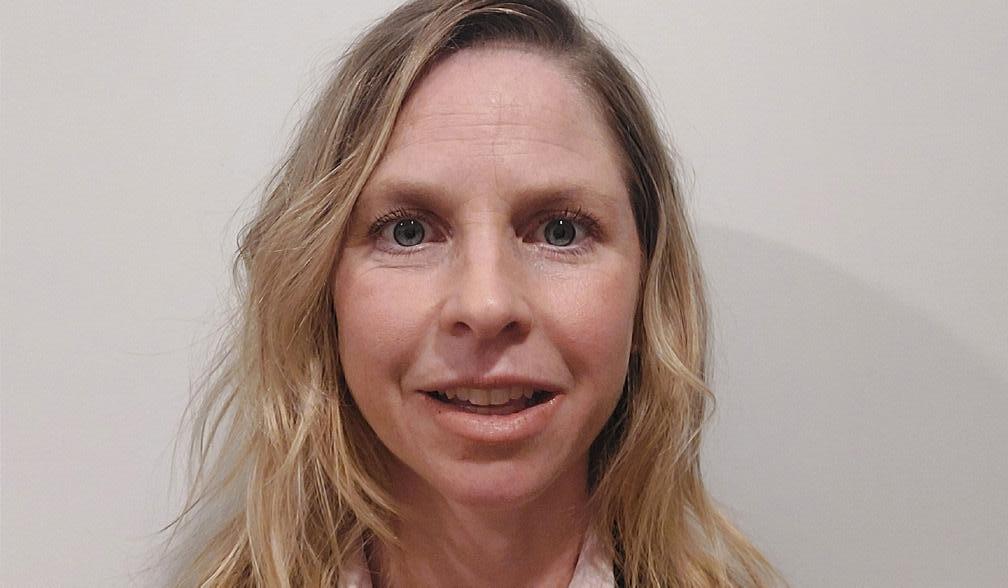
What influenced you to become a Sport and Exercise Physician?
I wanted to be a doctor from a very young age due to a drive to help others. By the time I was a teenager and competitive dinghy sailor, I wanted to be the America’s Cup doctor and the first female on board Team New Zealand. I grew up in Lyttelton harbour in a rural town immersed in sport and spent most of my summers in or on water and winters in the snow. I loved being in nature either on the water, in the snow or in the hills. Sport and exercise have always been an important part of my life.
I was fortunate enough to be exposed to SEM early in my career and was intrigued and excited by what SEM had to offer. My fellowship journey started when I was an elective medical student sitting in with Dr Nat Anglem who opened my eyes to what SEM was all about. After this, I knew this was the right path for me and once I had completed my internship and attended the ACSEP conference there was no turning back!
I started my registrar years on the beautiful Mornington Peninsula under the guidance of Dr Leesa Huguenin before returning home to Christchurch which provided a stable village for me to continue to grow my whanau and balance life as a doctor, a wife and a mother. All three of my kids were born during
my time as a registrar. A year after gaining my fellowship I opened my own practice in Ferrymead Christchurch, Pinnacle Sports Physicians. Six weeks after opening Covid-19 sent NZ into a national lockdown which was certainly a challenge for a business in its infancy. Fortunately, being small meant we could be nimble, and we managed to survive. The practice has allowed me to balance both clinical work and grow a skill set as a director all while being available for my growing family.
If you weren’t a doctor, what would you have been?
Prior to medicine I ran a busy central city cafe with my husband. We pondered the idea of continuing in hospitality but decided this was not either of our long-term callings. I really love the idea of working outdoors and did a gap year teaching sailing and running a French chalet in one of the large French Ski resorts. Although that was an amazing experience at that time it wasn’t something I wanted to do forever. I think I would have ended up running some sort of activity or sport related business.
What do you enjoy most about what you do?
I love the breadth of opportunity and the flexibility that is available in SEM medicine. In the last 12 months I have worn many hats as many of us do which give different challenges, opportunities, and learnings. I love that no two days are the same and that there is always more to learn and consider.
I enjoy meeting and being involved in the lives of so many patients with such different journeys through life. I enjoy trying to find a way to connect with each individual and let them see something through a new lens or in a different focus. The most rewarding part of my clinic work is guiding others to make long term behavior changes that improve their health or watching patients return to their chosen sport or exercise and achieve their goals.
Dr Eloise MatthewsAre there any learnings or challenges that shaped your experience as a Sport and Exercise Physician?
I was fortunate to be awarded the Women in SEM leadership scholarship in late 2022 which enabled me to attend a week long live in leadership course in the Hawkes bay region in early 2023. Going into this course, having never participated in any formal leadership training, I had few expectations but was in a space where I was open to soak up and take on board new learnings and skills to assist me in the next stages of my career. My biggest learning from this course is that what I needed to succeed when wearing each of my hats was what I already had within me. This may sound simple but after many years of studying I was used to having a formula, a tick box list of things to learn and master so having this understanding really changed how I approached leadership as an entity. Learning about what really drives me and what I unconsciously strive for and what I’m most fearful of gave me a much deeper understanding of myself, of my own needs and wants and of how I can help or guide others. Most importantly this new and deeper understanding gave me the confidence to do whatever was needed in the situation I found myself in.
One of my drivers for applying for this opportunity was the opportunity to lead the 2024 NZ Youth Olympic Games medical team. There were many challenges and opportunities that came with this role and the course gave me the confidence and skills necessary to do the best I could for this group of very talented NZ athletes and support staff. I’m now writing this on the plane back from the most successful youth winter games NZ has ever had. I am by no means taking any credit for the athletes and their talented performances, but it was a pleasure to be a small part of the team, allowing them to grow and show the world how amazing they really are.
I love SEM as a specialty but I have found that in comparison to the team environment of a busy hospital or a traveling team, sitting behind a closed door in a clinic can be rather isolating. There is often pressure to see patients and squeeze extras in due to the shortage of SEM physicians in the community. Early on I realised the importance of the ability to say no and manage these pressures. Peer support and collaboration is extremely important and I have learnt that we all benefit from working together more closely. I feel this is an area we need to continue to work at with an aim to create more opportunities and space to connect, to discuss and to interact.
What is the best career advice you have been given?
You can’t fix everyone or everything. This advice has assisted me many times in challenging situations and is like a foundation that I can fall back on when I need to.
When I received that advice I had little insight into my own drive, it is only in recent times that I have realized that I am driven by the ideal of perfection in just about every area of my life and that although this gives strong and powerful motivation and energy for a given task it at times needs to be balanced with kindness for oneself and a healthy dose of realism!
If you could be the best at any sport, what would it be and why?
There are so many sports I love and would love to be the best at. It would definitely be a sport in nature. Right now it would be enduro mountain biking. The speed, flow and skill of these athletes is an inspiration to me and it would take you to some amazing places around the world.
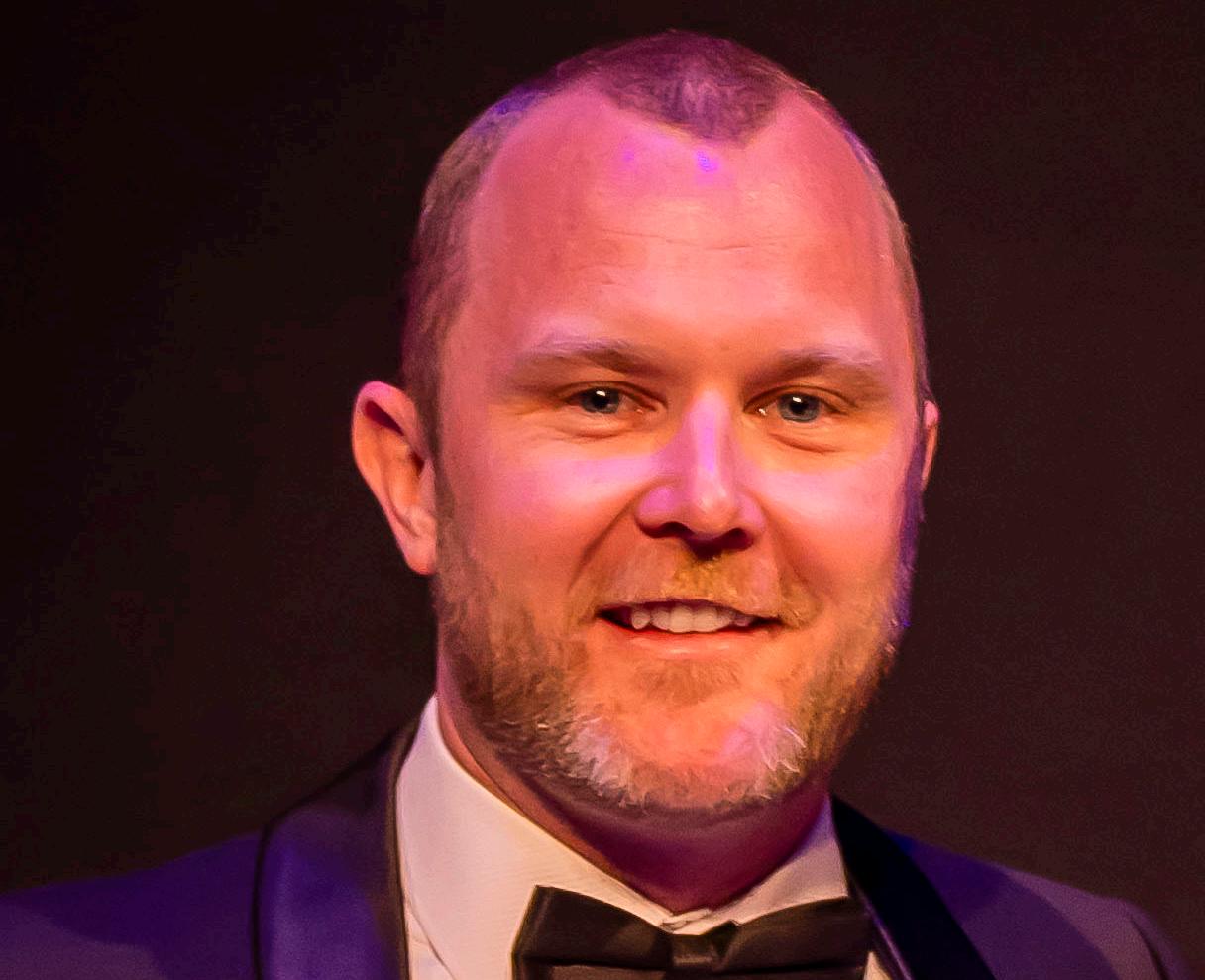
What influenced you to become a Sport and Exercise Physician?
Sport has always played an influential role in my life and I have always been interested in the human body. I played multiple sports at a high level but also spent a significant amount of time as a patient with sporting injuries which gave me an insight into what it could be like to be a Sport and Exercise Physician.
I was fortunate as a high-school student to have the opportunity to shadow Dr. Steve Reid (ACSEP Fellow) and then as a medical student, Dr. Richard Brown (ACSEP Fellow) which piqued my interest to pursue Sports Medicine as a career. It’s funny how the Sports Medicine world works with Steve being one of my training supervisors in 2023 and I plan on working for Richard in 2025 for my final years of training.
I have a background in Physiotherapy and had some Orthopaedic training which I feel is a perfect blend to develop into a Sport and Exercise Physician.
The opportunity to be able to pursue a career that enables you to travel
the world whilst also being able to help people is something I aspire to continue to achieve.
If you weren’t a doctor, what would you have been?
I have always wanted a career in healthcare. The simple answer is a Physiotherapist however over the years my interest in real estate and investment has picked up so something in sales or becoming a Real Estate agent would be an alternative career choice.
What do you enjoy most about what you do?
I’m pretty new to Sports Medicine, but so far, it’s been ticking all the boxes for what I want in a long and satisfying career. I am currently based in Cairns for my training, and it has been both exciting and challenging. I have a fantastic role model in Dr. Kira James, who not only supports me but also pushes me to be a better person and clinician.
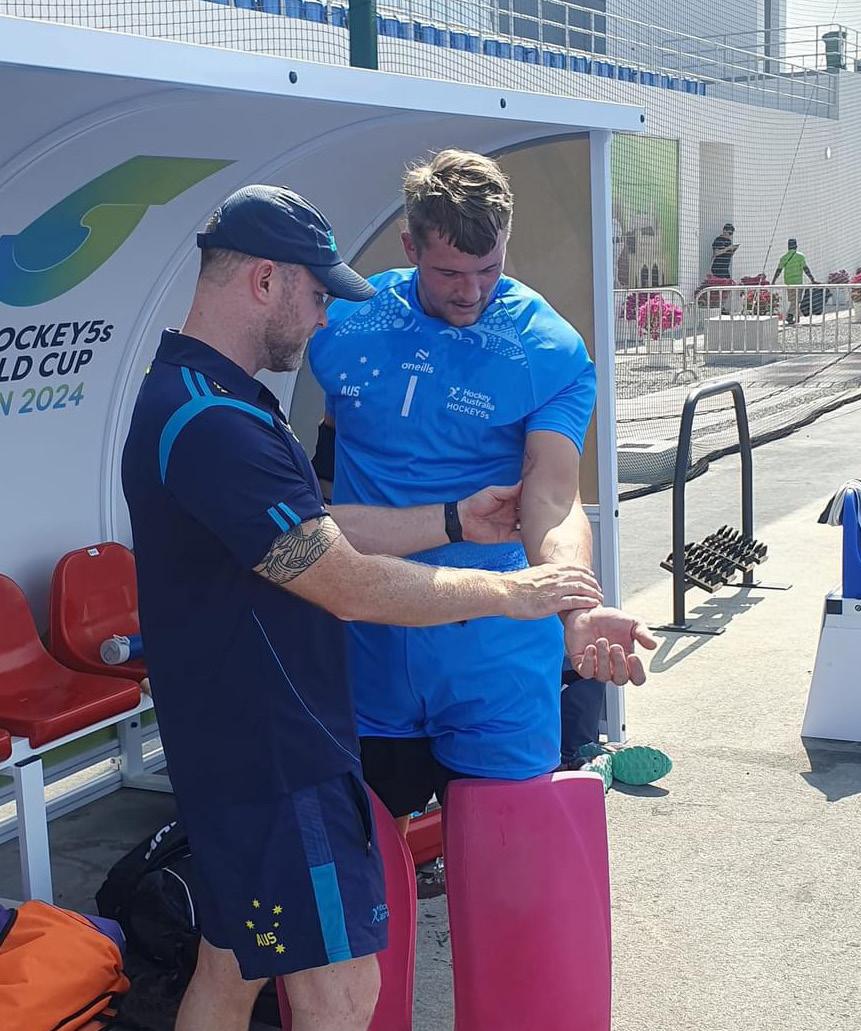
I’ve had some fantastic opportunities to travel around Australia and even to Oman in the Middle East as part of my training. One thing I really like about Sports Medicine is that it feels like a small, closeknit community. I can easily reach out to other ACSEP Members from all over the country, such as Darwin or Perth, for help. A quick text or phone call helps ensure continuity of care and better outcomes for our patients. It’s great to be part of a supportive network in this field, and I’m excited to see where it takes me.
Being based in Far North Queensland we have a much higher proportion of Aboriginal and Torres Straight Islanders people and therefore we are able to provide healthcare to those whom otherwise may not have the same access to those in the major cities.
Are there any learnings or challenges that shaped your experience as a Sport and Exercise Physician?
Being a new registrar in a new training post brings different challenges every day. We have commenced the first public Sport and Exercise Medicine Clinic in Queensland so trying to find a balance of the appropriate patients and wait-times has been a learning curve.
Being in a rural and remote region of Australia, it is well established that these areas have less funding, resources and access to healthcare so inherently this brings its own challenges.
What is the best career advice you have been given?
We learn more from our mistakes than our success. Don’t be afraid to make mistakes however make sure you learn from it and don’t make the same mistake twice.
“The only way to do great work is to love
what you do. If you haven’t found it yet, keep looking. Don’t settle.”- Steve Jobs.
If you could be the best at any sport, what would it be and why?
Golf – One of not many sports you can play from the age of 8 - 80+. Also, one of the most frustrating sports to play so to be the best in the world would minimize that. The paycheck at the end of the day wouldn’t be a bad thing either.
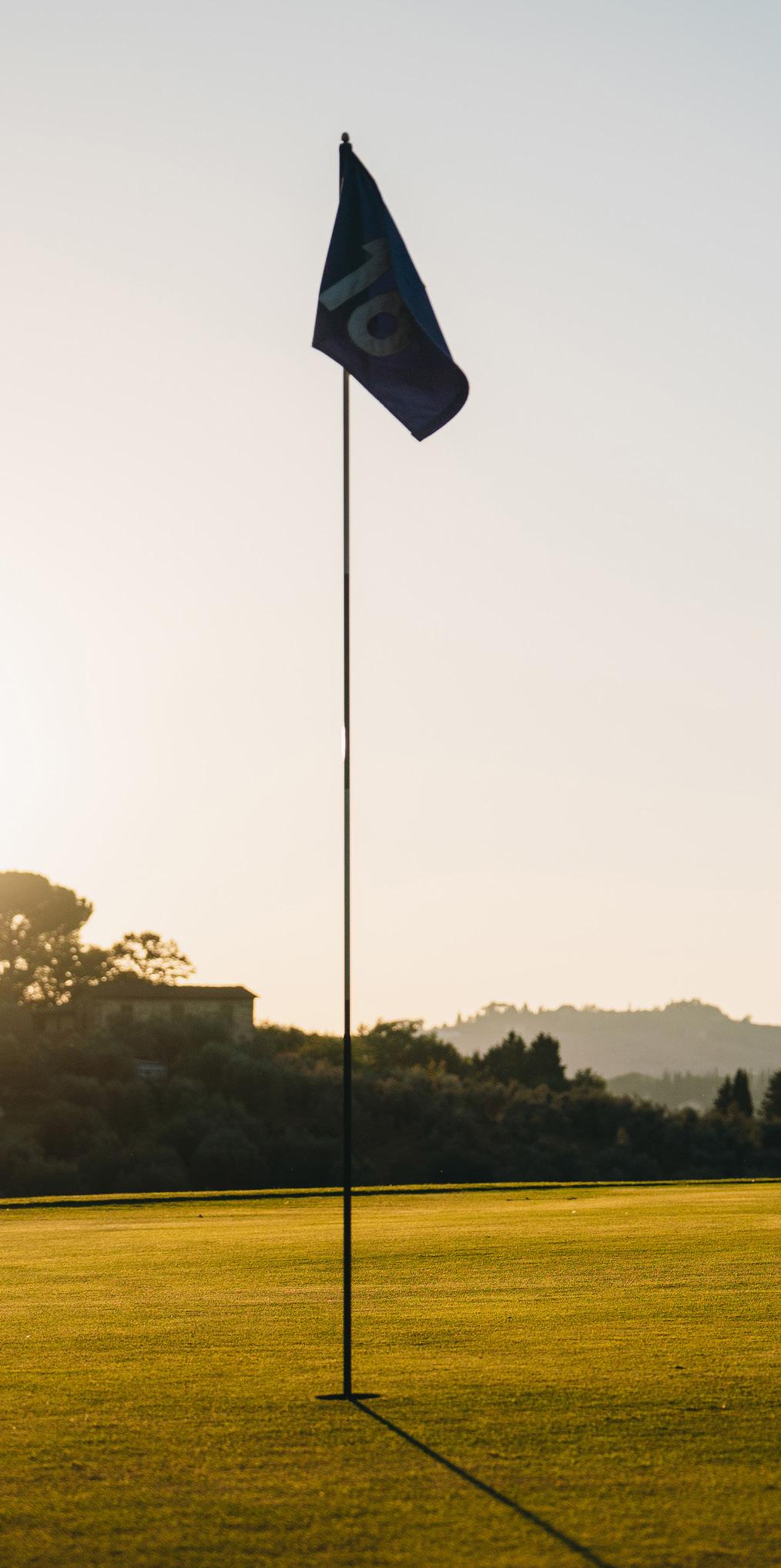
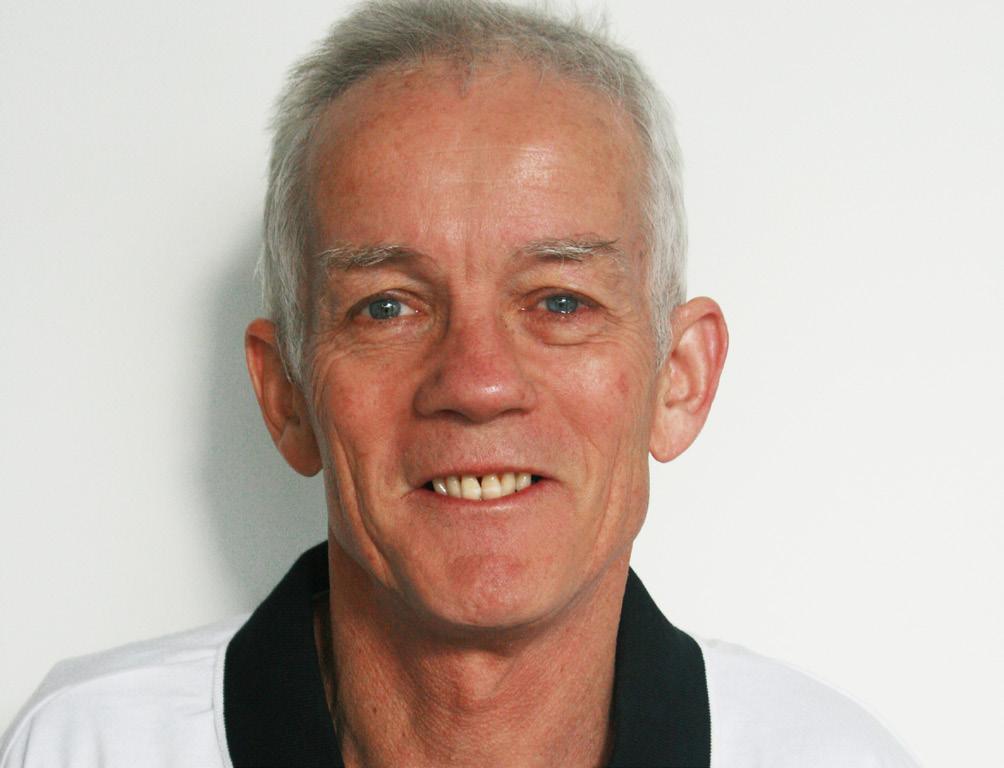
What influenced you to become a Sport and Exercise Physician?
My initial years were as a Rural General Practitioner in South Gippsland, Victoria in Foster. Local Footy and Cricket played a significant part of our years in Gippsland and complemented becoming part of the Community. I was fortunate to play a few footy seasons in the local Alberton League. It would mean that despite having nil training, I would find myself in the opposition team-rooms at half-time reducing a disrupted finger or displaced fractured nose and plugging bleeding, and then going back to play in the 3rd Quarter, occasionally to be playing on ‘my half-time patient’.
As we prepared to leave Gippsland, the obvious questions were raised. What are you going to do? Have you thought about Sports Medicine? I was not sure if this meant “you are not much of a GP, so have a crack at something different”. And it did become truth in as much as General Practice in Melbourne was a very different entity to Rural Practice and Procedural Medicine with a significant Women’s Health element; both of which were not part of my urban practice.
Fortunately, those South Gippsland suggestions escalated and were saviours.
If you weren’t a doctor, what would you have been?
As a Student, I was more Science than Humanities; but never saw myself in ‘hard-core’ Science nor Engineering. Health Science was more attractive. My father floated Dentistry but it did not switch on my lights. I think on reflection I was channeled mentally into Medicine. It is a long time ago, but nothing was looming as an alternative
What do you enjoy most about what you do?
The elements integral to clinical medicine have been the main drivers and source of enjoyment. Listening to the patient paint the picture, factoring in what seems to be important to them, interpreting the clues offered to put together quasi-diagnostic options and then critically using examination to support or negate initial thoughts and discussions around options in terms of investigations, interventions, medications, primary elements of care and involvement of multi-disciplinary team members in potential longer-term care as appropriate.
I have very much enjoyed the medical changes over the years in terms of refinements in imaging, surgical and medical options and physical medicine. Research and evidence base was not my skill-set and so this has given me further pleasure.
I look forward to the further evolution of biologic interventions, but still on reflection enjoyed the clinical challenges patients provide and my selfflagellation if I missed an examination sign or a spoke Queue.
Are there any learnings or challenges that shaped your experience as a Sport and Exercise Physician?
My early years in General Practice where your patients are your team-mates and your friends, and you are an element and have a (key) role in the Community had a significant impact in the Team element that is so important in what we do.
As a Team Physician, it is critical to be inclusive and involved in the big picture Team elements without compromising our specific role.
A decade in Gippsland meant I was exposed medically to General Practice medicine, again critical in Team involvement.
What is the best career advice you have been given?
My roles have been a Clinician and Team Physician coming from a Rural Community. Much as I have tried to knot out each Clinical event, of course we cannot.
My go to is to review Clinical presentation and if uncertain, be humble and ‘share the
love’ with a colleague without a sense of uncertainty or inadequacy, even if it might be late evening in Perth on a Sunday. Anxiety from the unknown is ok if it is only affecting you; but when a patient and all the ramifications of this patient’s challenging presentation are present, most of our colleagues are flattered to be asked and involved.
If not, don’t go back that source again…
If you could be the best at any sport, what would it be and why?
Again, my rural experience and Team inclusion gave me an excellent grounding in ‘Advising the Umpy’ when he ‘got it wrong our way’. My Team involvements meant I was involved in Sports that I had nil experience in, but still thought I could ‘very quietly’ advise the Umpy.
As to actually participating, there was never any real options or aspirations. I’m a keen spectator, but not sure how I can rank my performance, especially getting the umpiring calls correct.

Auckland - February
Brisbane - June
Melbourne - July
Sydney - September
Wellington - November
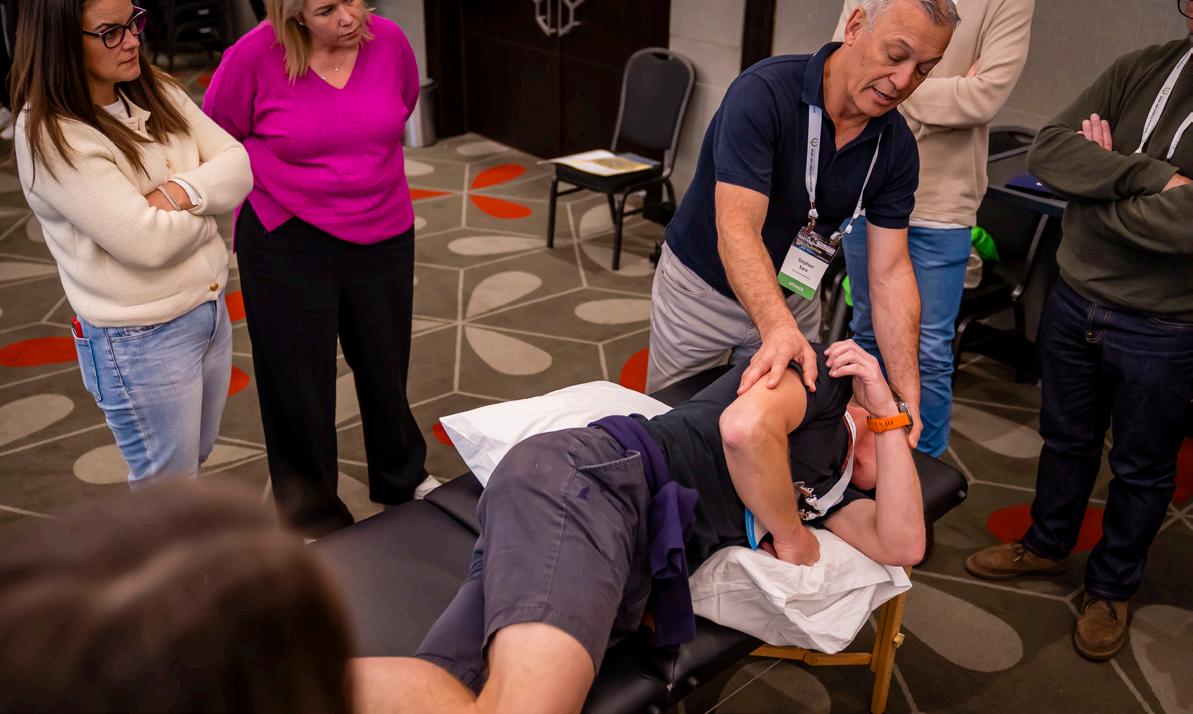
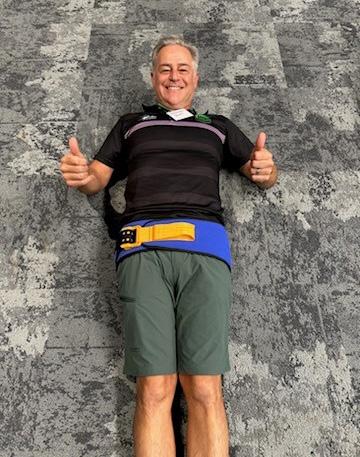
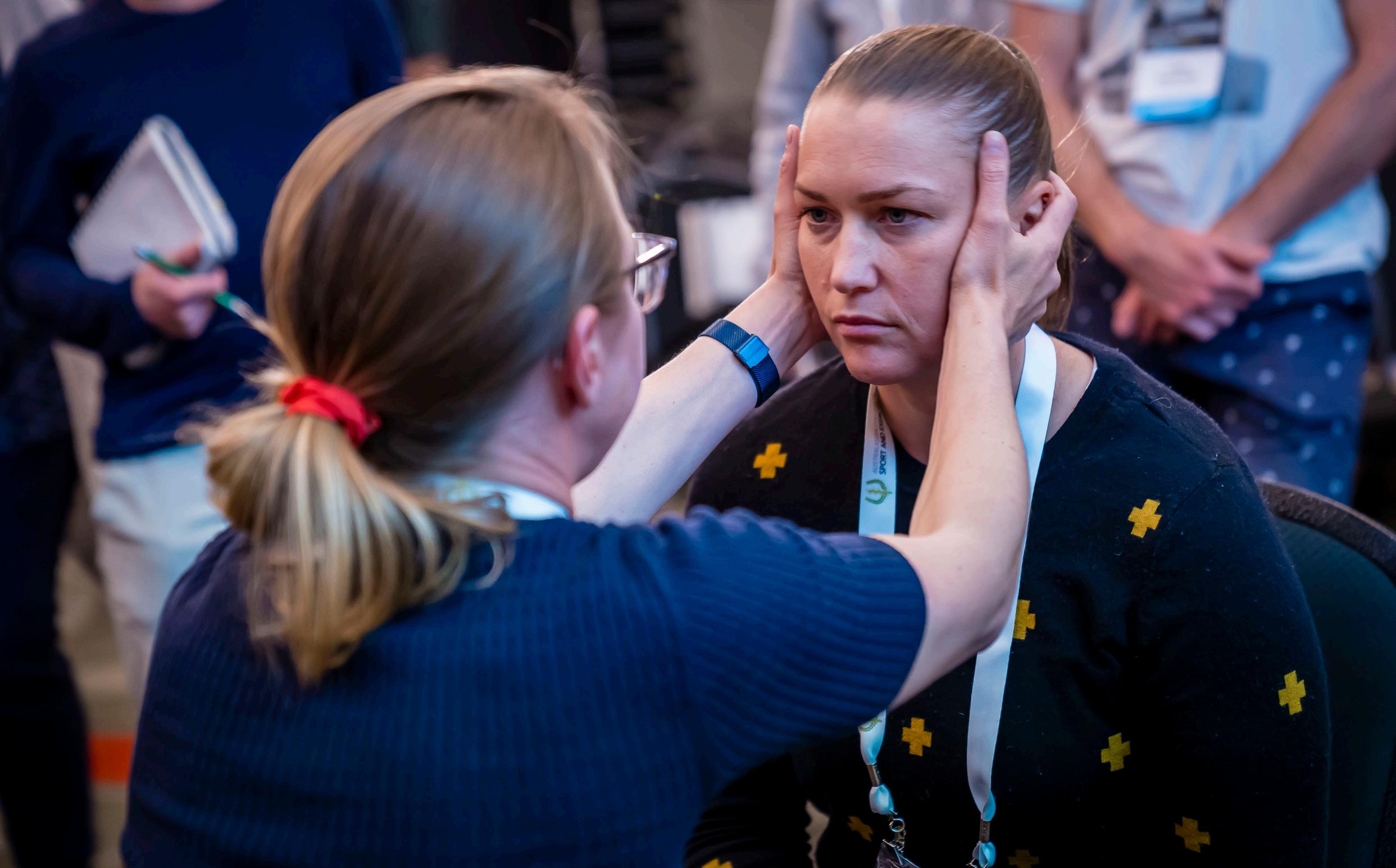
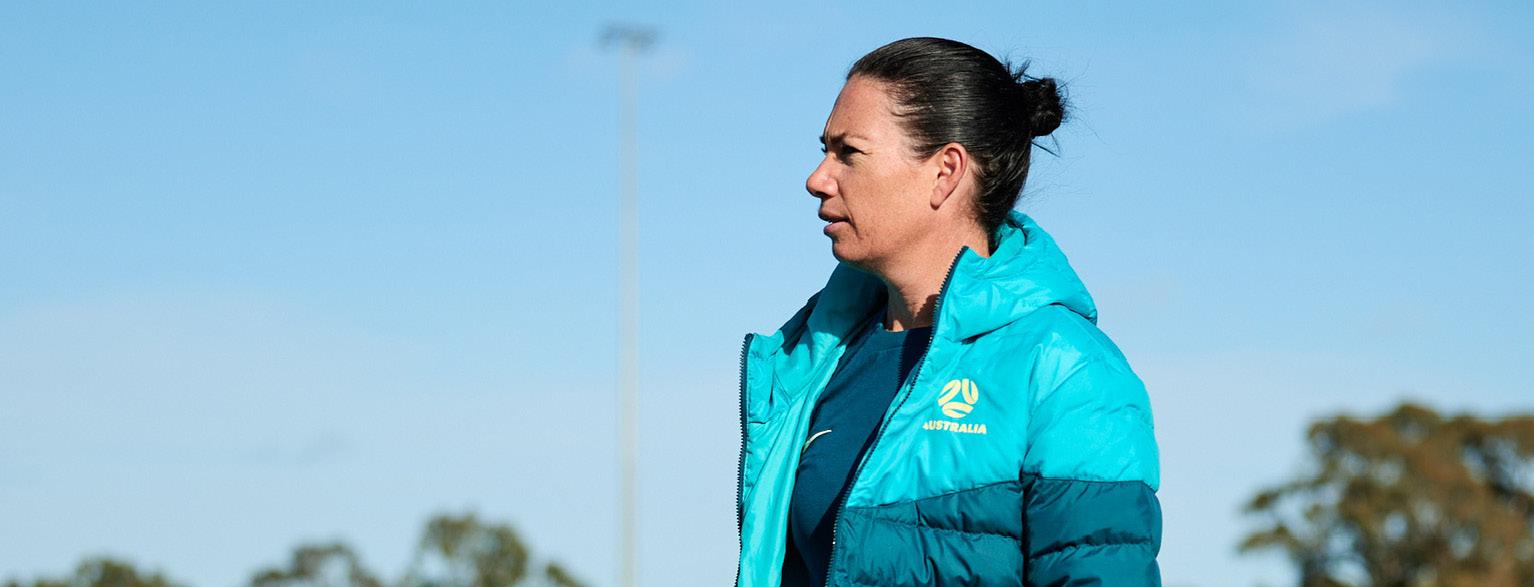 Brandi Cole Fellow
Brandi Cole Fellow
When I started in medicine, I never thought I’d hear the words “you have the hopes and dreams of the nation riding on your decision”, and yet during last year’s World Cup that’s exactly what happened! I had plenty of challenges during that tournament, many that started in the pre-camp well before the tournament had begun, but arguably the biggest challenges started the day before our first game when Sam Kerr injured her calf.
I went into camp on the Gold Coast on the June 11, 2023 and left on August 21, 2023, two days after we lost the Bronze medal match to Sweden in Brisbane. I spent ten weeks travelling around the east coast of Australia: three weeks at the Gold Coast , two weeks in Melbourne, three weeks at Brisbane basecamp which included flying the day before our round games and back the day after for the first three games in Sydney, Brisbane and Melbourne. We moved venues every few days in the sudden death part of the tournament which meant going from Brisbane to Sydney, then back to Brisbane (a different hotel), then back to Sydney (another new hotel) and then back to Brisbane (another different hotel). We caught seventeen flights, stayed in ten different hotels in ten weeks moving 100+
kit bags around looking after twentythree players and thirty staff members. This was a home World Cup so we had the better draw!
The first three weeks of pre-camp saw thirty girls vying for twenty-three spots. Our girls play all around the world and their seasons were at different stages prior to the tournament. Some were in their offseason, some mid-season and some in their final rounds. Clubs weren’t required to release players until the official FIFA window ten days prior to the first game (July 10) so we had a staggered arrival into camp from June 12, depending on what we’d negotiated with their club and if they were in season or not. Eight players came into that camp in full rehab having not been available for their clubs in the one to two months prior due to injury, and six of those were in our starting eleven. Precamp was a busy time for the SSSM team (Sports Science and Sports Medicine) and we spent hours designing each training session to allow for the individualised programs required by each of the girls, whilst logistically trying to work out how we would fit everything required onto one pitch under the supervision of our medical team while having its capacity stretched to our limits.
One of the best parts of having a home tournament other than the clearly biased crowd who got more and more into the football as the tournament progressed, was having the support of many wonderful doctors from our college and also in other specialities who were invaluable to me when I needed them. The ACSEP has always been collegiate in nature and that was exemplified during my many stressful times in these few months. Special mention must go to Bianca Scotney in Melbourne and the amazing team of radiologists at Olympic Park Imaging which seemed to become my second home in the two weeks prior to the tournament, and also to Sharon Stay in Brisbane who had everything I needed organised prior to me even reaching out to her each time one of our Brisbane games finished.
Sam injured her calf in a warmup drill in the training session before our first game. The media were there for the first fifteen minutes and she hid in the drill until they’d left in order to not give anything away and then casually wandered over
to me and said “I think I’ve just popped my calf” Her symptoms were mild initially and she had minimal pain on stretch and contraction. We were flying straight from the training session in Brisbane to Sydney so I arranged an MRI at 8pm that night in Sydney after our compulsory familiarisation session at the stadium and the pre match press conference. James Linklatter from Castlereagh Imaging left a dinner to go home so he could report the MRI remotely for me. I was hoping for a mild injury, thinking it might be a 1a. He called me while she was still on the machine to tell me it was much more significant than that. A few hours of crisis meetings with multiple stakeholders at Football Australia followed. She handled everything like a true champion and made my job easier. Some people up the chain made it harder than it should have been.
To them I had just ruled out our biggest commodity from taking part in the most prestigious event being held on home soil. The commercial success of the tournament looked to be in danger.
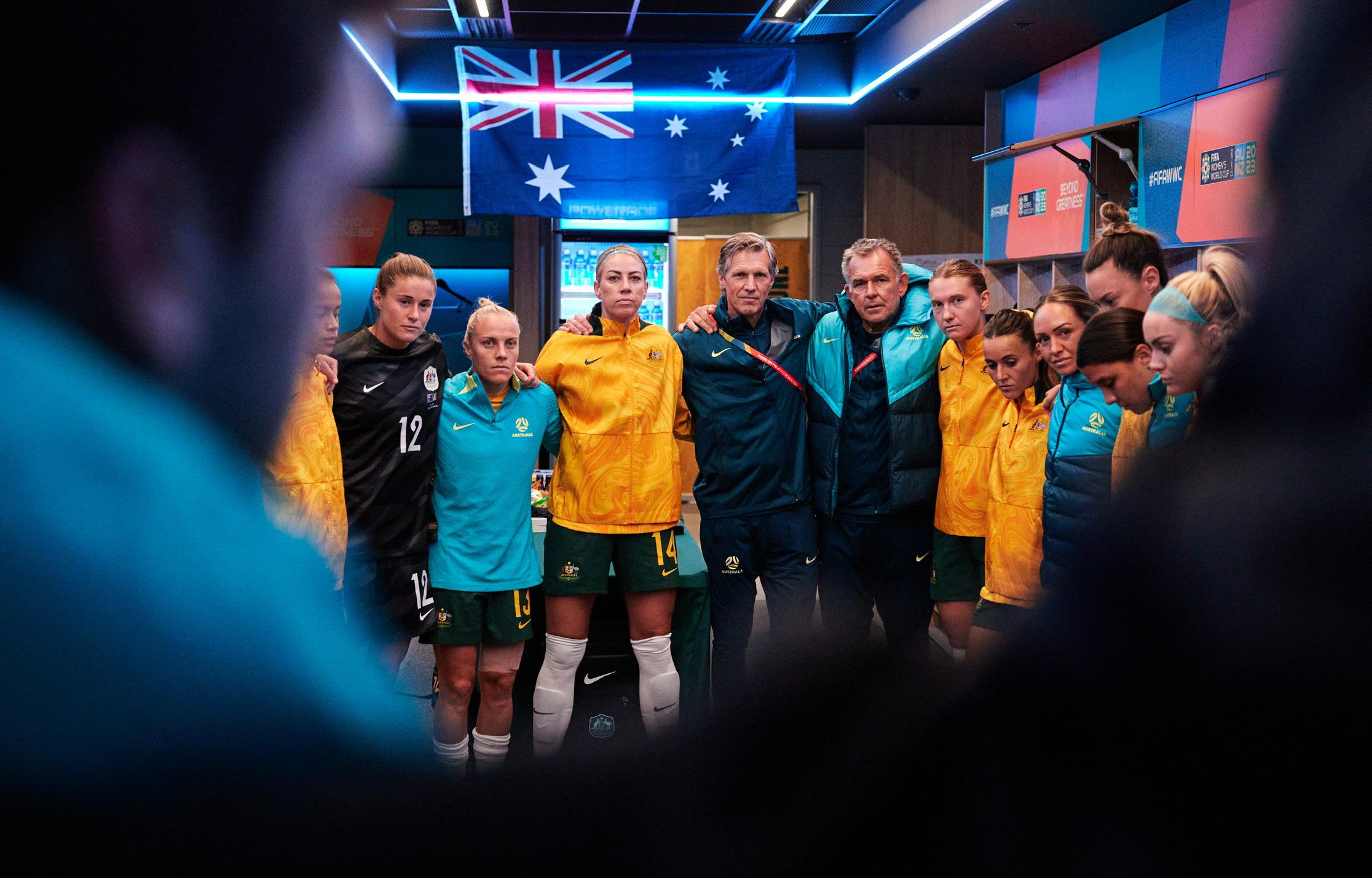
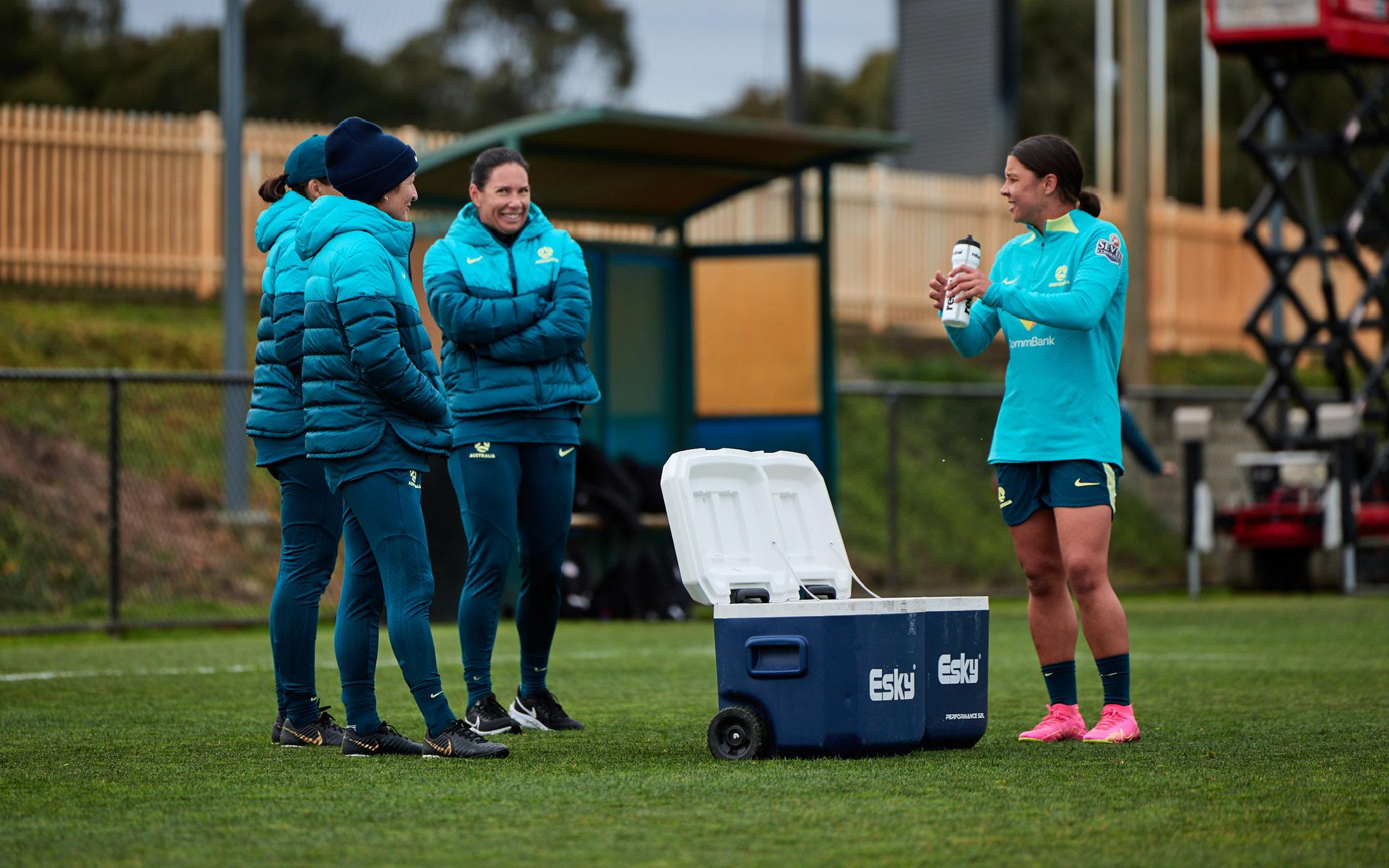
Sam’s injury was followed by concussions to Mary Fowler and Aivi Luik in the training session the day before the second game. It felt like groundhog day. Mary’s symptoms were mild but they were there. The mechanism was ball to the head from a short-range kick. In four years with the team, I’ve never seen that happen and it probably never will again. There was probably more pressure on me in this situation than Sam’s injury because her symptoms were mild and I could’ve turned a blind eye and let her play but I strongly believe we work for the players first and the team second and my three years working in NRL taught me enough about concussions to know to take each one seriously no matter how mild. My approach was to shut out all the external noise, rely on my years of training, trust my judgment, and ask myself one simple question - did I think she was concussed or not? Unfortunately for Australia my answer was yes. She was symptom free the next day and followed the minimum
required RTP protocol which for most sports would be considered very quick these days. I got an independent review to make sure that an external expert also agreed that I wasn’t rushing her back. I thought I might be questioned in the media for her playing seven days later. I wasn’t. I diagnosed four concussions during that tournament, and it was the single highest reason for match unavailability. I’ve heard off the record from those in the know at FIFA that I was the only doctor in the tournament to diagnose a concussion. I don’t think that means there weren’t others.
Layers of pressure from multiple stakeholders with different agendas were thrust at me under the spotlight of the media during that tournament. Public scrutiny was at fever pitch and the media interest was beyond anything we had ever experienced. I spent more time writing press statements than I did writing medical notes. In hindsight we
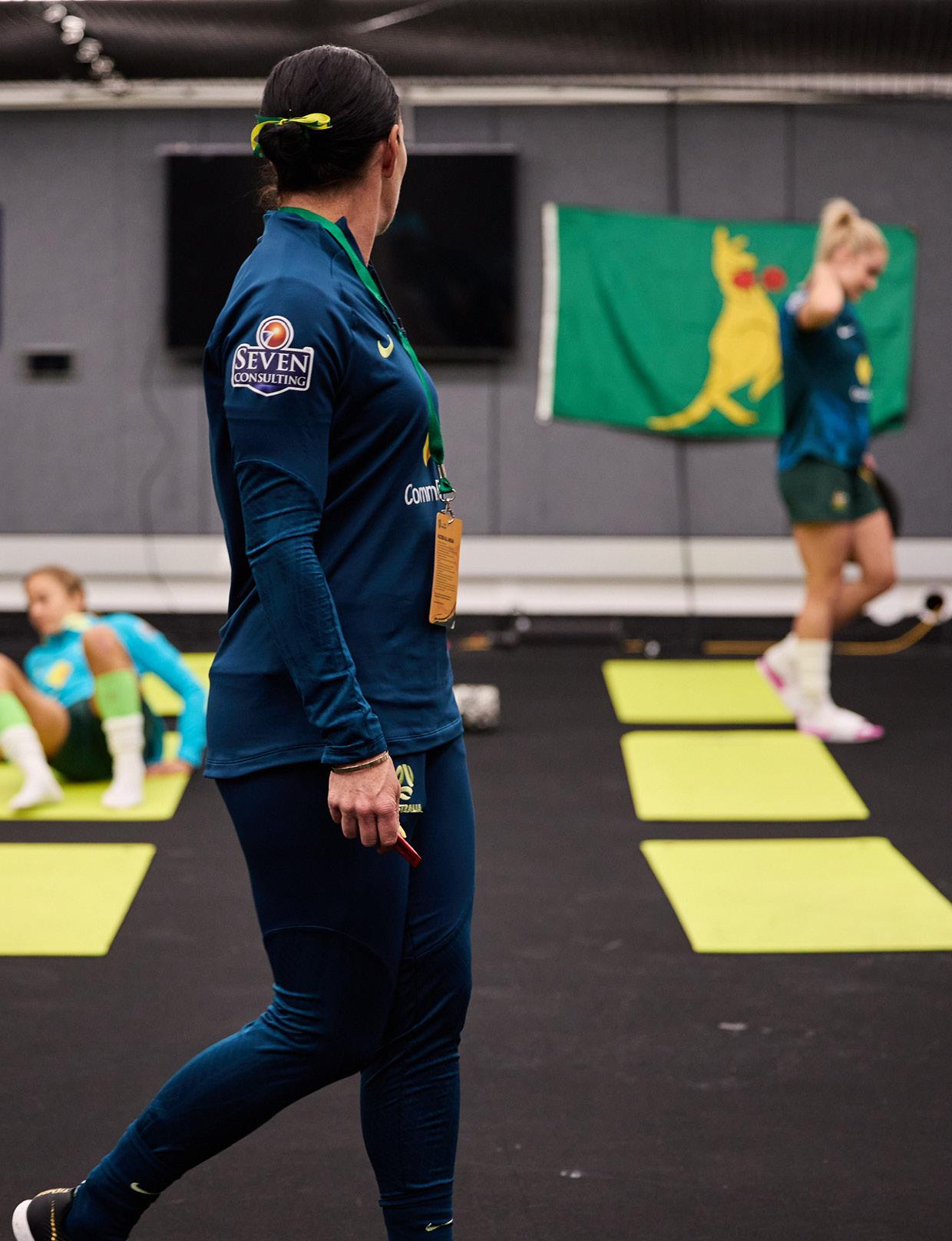
may have been too open with reporters, and it inadvertently had the opposite effect. We were so transparent with our communication around our decision making that they thought we were hiding something!
The tournament left me physically, mentally and emotionally drained at the end. Broken is probably a better way to sum it up. I also had the time of my life, both personally and professionally. The crowd was a sea of green and gold, singing our anthem in unison. For one game in Brisbane, the welcome to country was a crowd rendition of Waltzing Matilda. It still gives me goosebumps thinking about it. That penalty shootout was the one time a team doctor can watch on the sideline almost the same way as the fans. We had practiced the whole shootout a few training sessions prior to that game in real time with all twenty-three players scoring against a collection of male rep team goalies. It literally took hours to
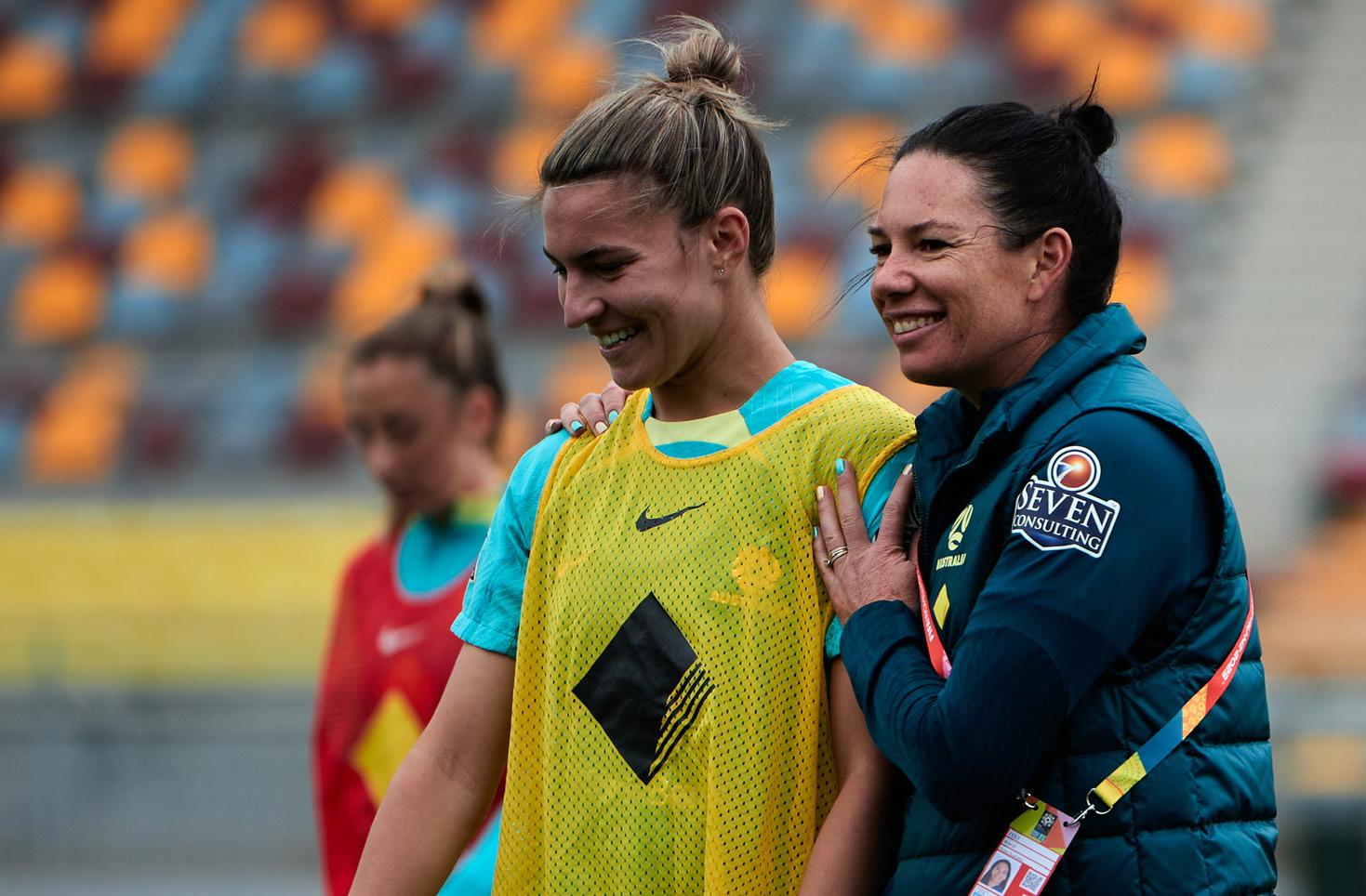
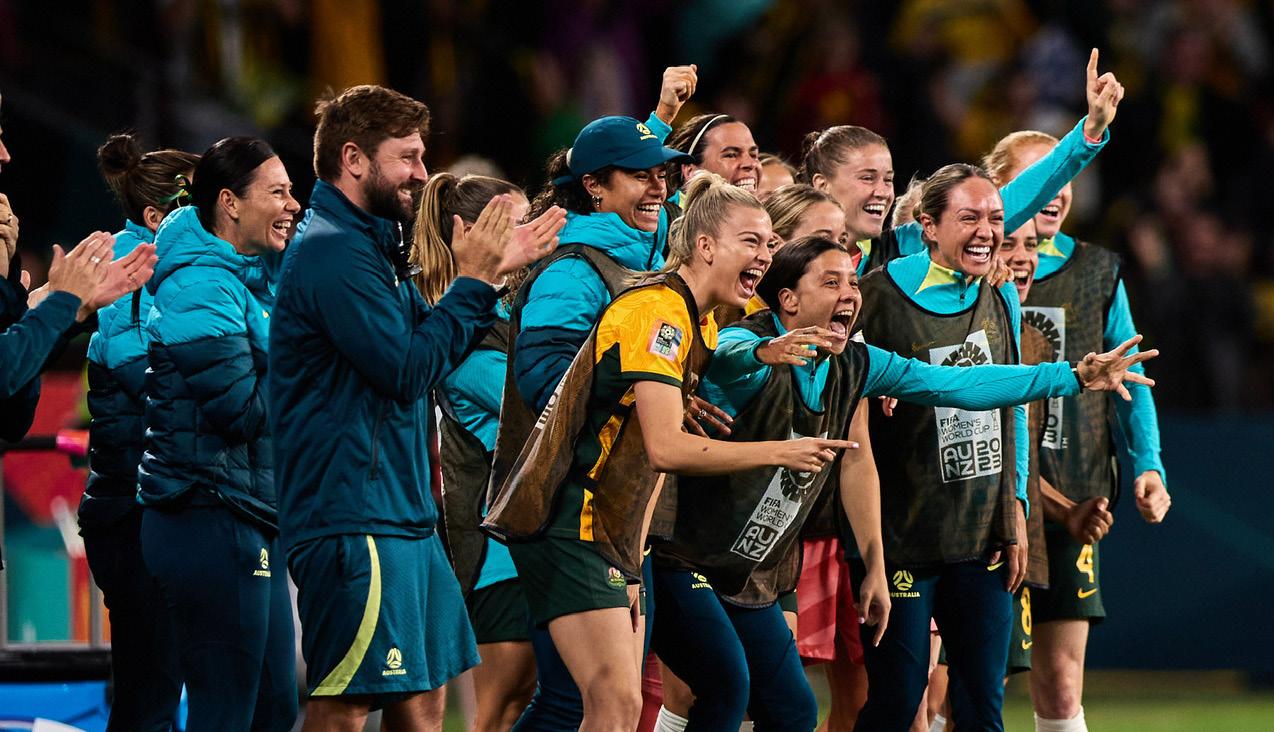
rehearse after training so the real thing felt quick to me! I just knew we’d win the game if we could survive extra time. The fact that Sam could come back and play on that injury (way too early for the textbook RTP for its grade) and score that goal against England...I’m not a very emotional person but that almost brings tears to my eyes.
It was a privilege to be the Matildas doctor at our home World Cup. I’ve made personal and financial sacrifices the past few years to be there, and I am forever grateful to my family for supporting me to be part of something that was so much bigger than the sport. I highly doubt that anything in the rest of my career will come close to this experience - a tournament that will hopefully always be remembered as a defining moment in women’s sport.
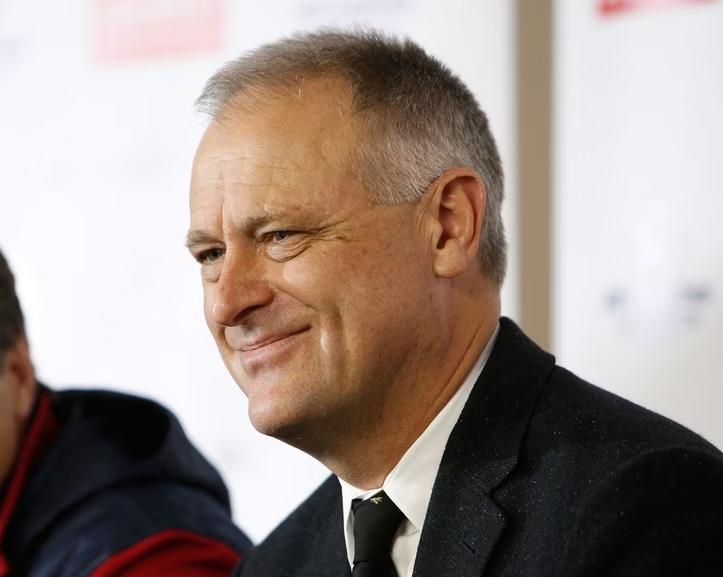
Dr Peter Harcourt
For significant service to sports and exercise medicine, and to anti-doping monitoring.
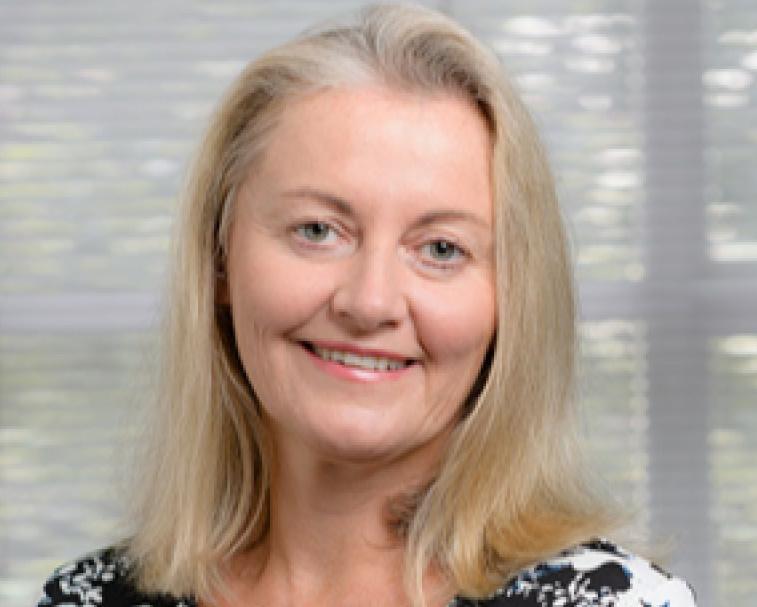
A/Prof Diana Robinson
For significant service to sports medicine as a physician and to anti-doping regulation.
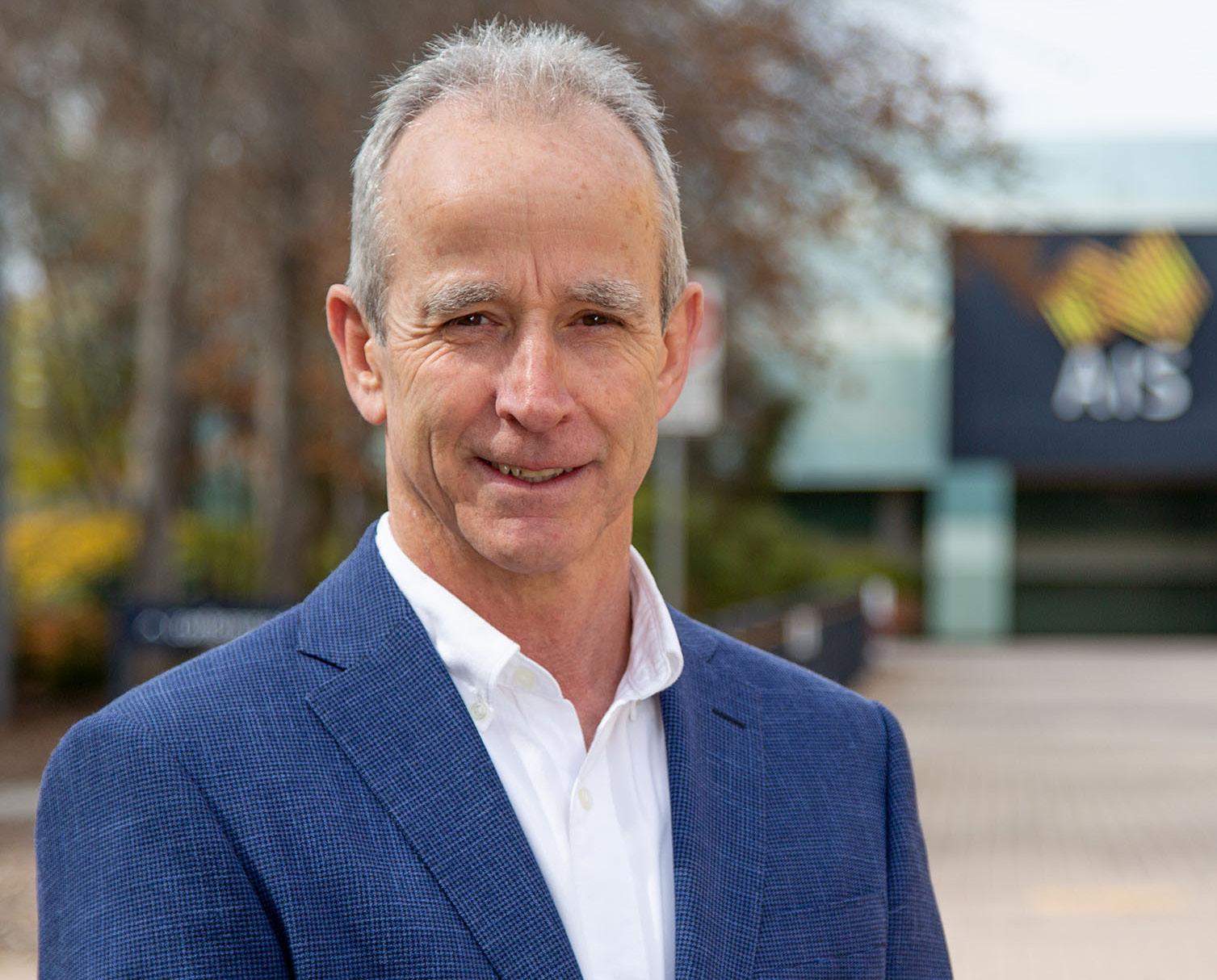
Dr David Hughes
For significant service to sports medicine as an administrator and elite athlete physician.
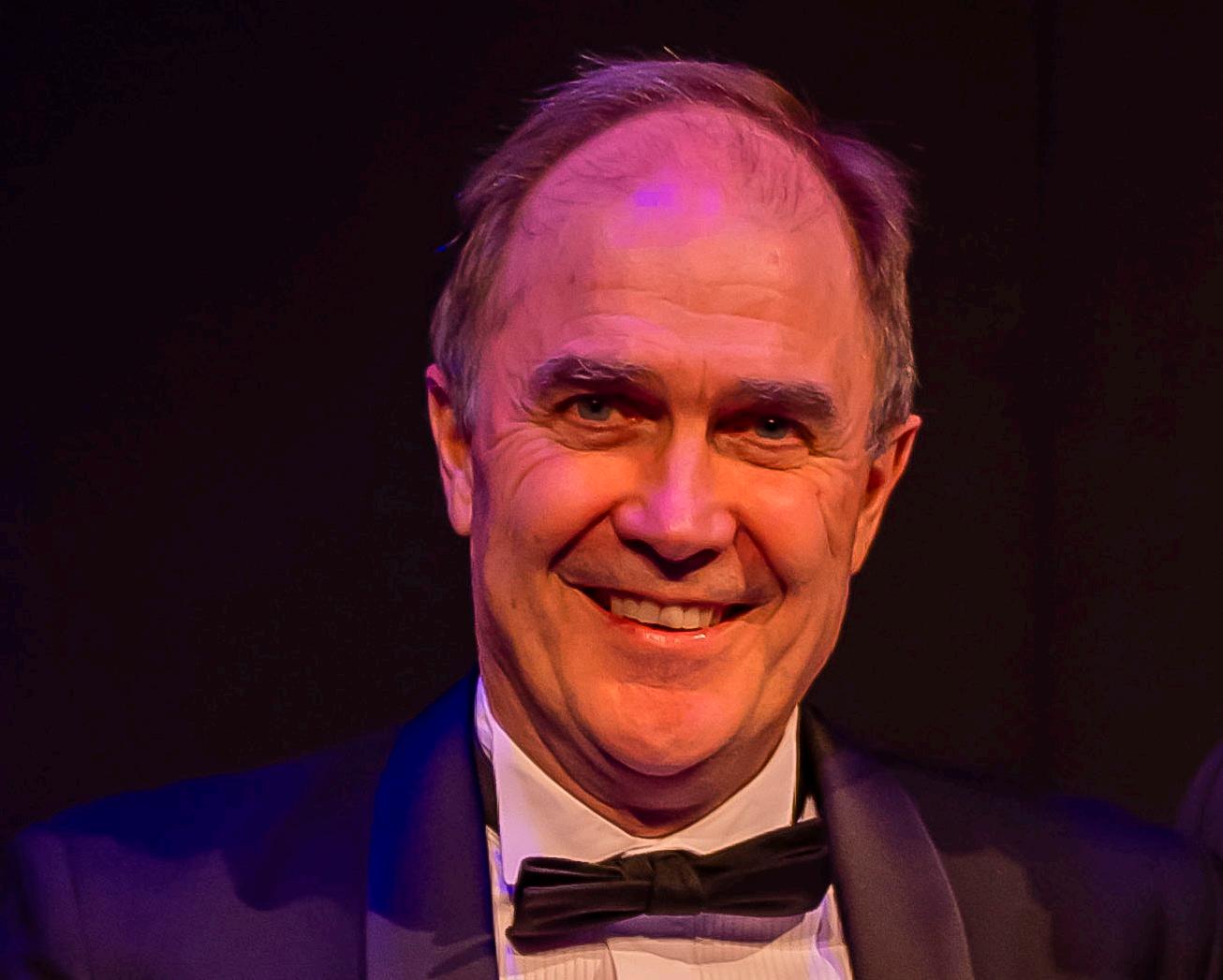
Dr David Humphries
For service to sports medicine.
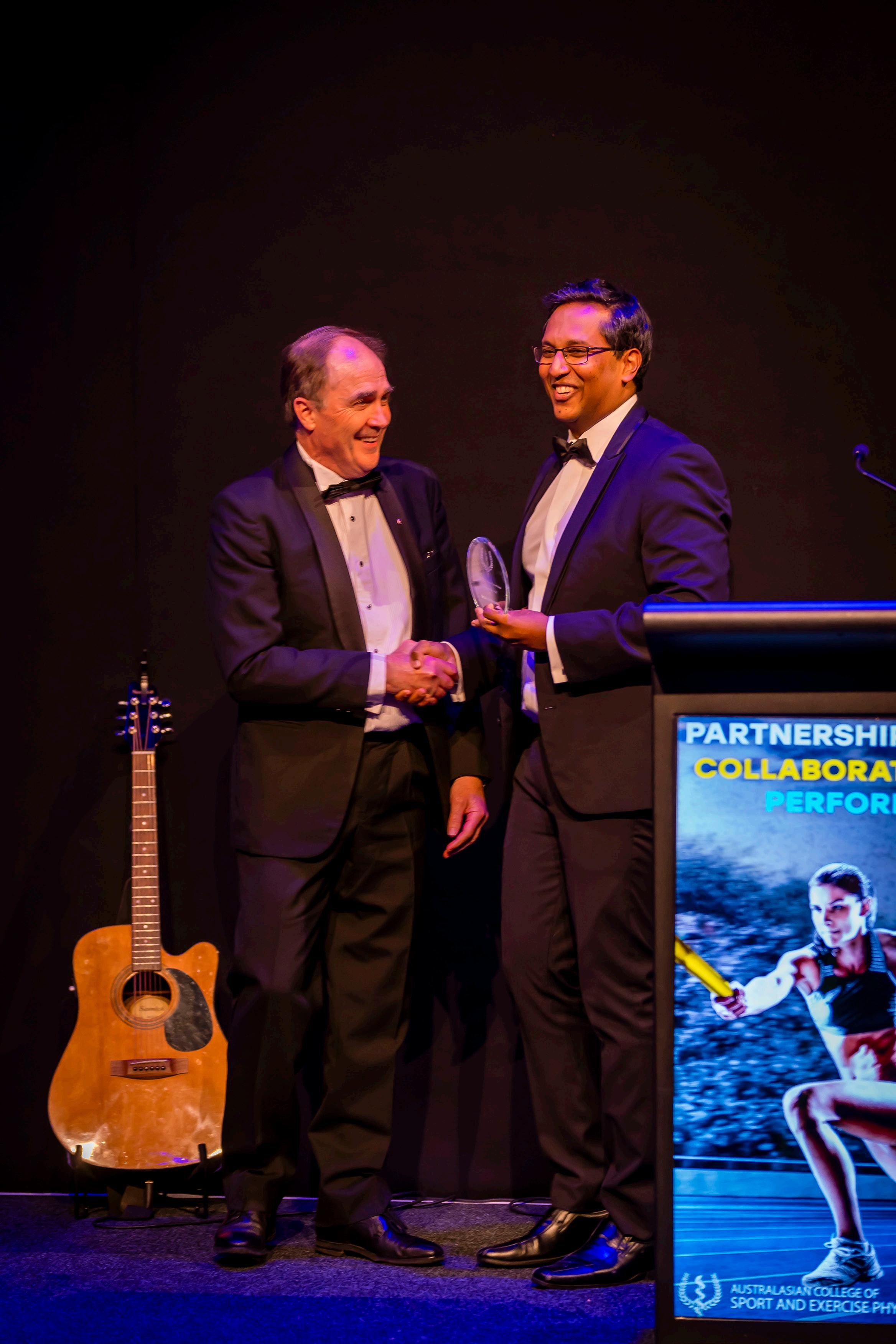
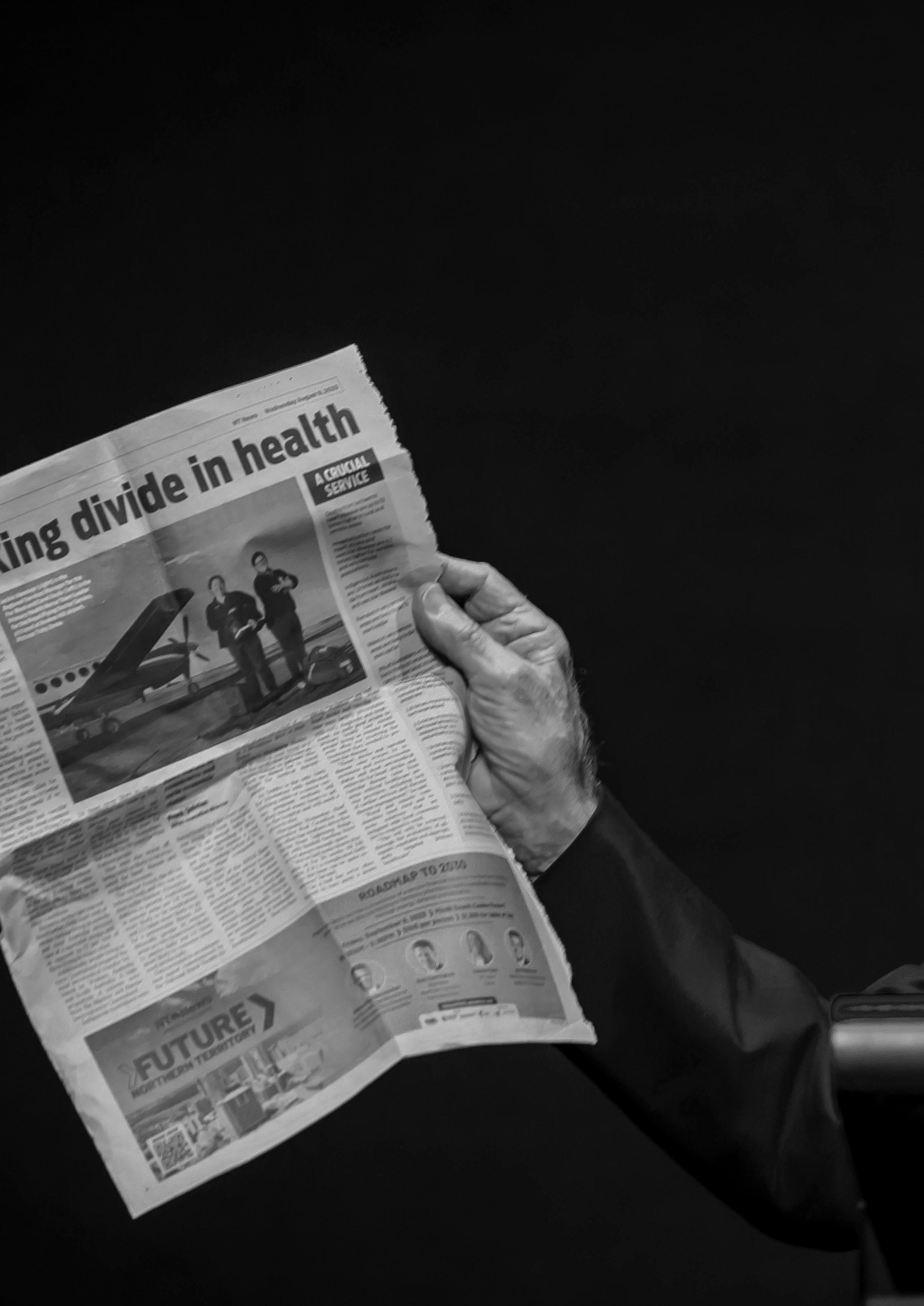
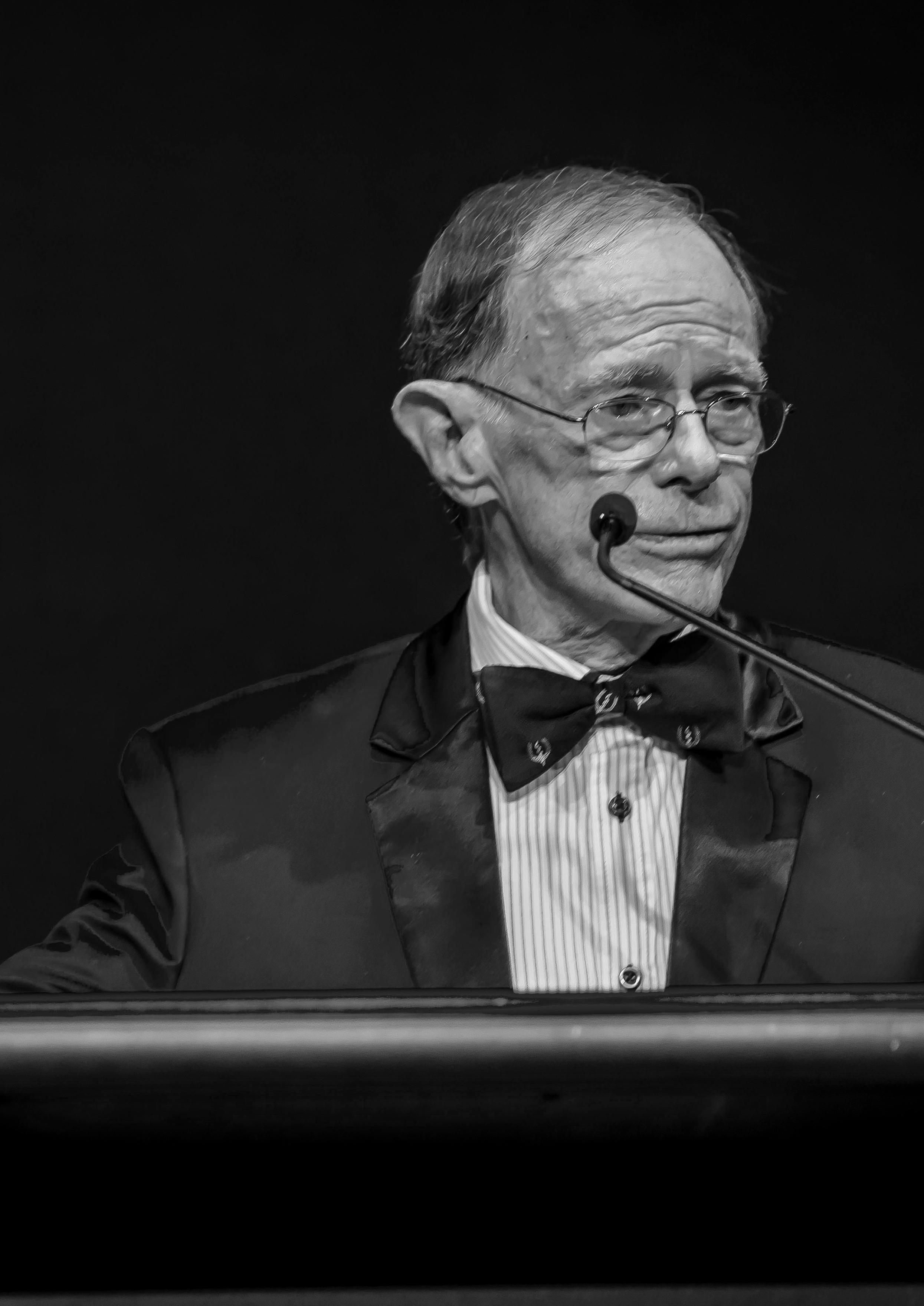
Our online presence continues to be an important point of connection with our members and partners internally as well as the global community. Key social media channels of Twitter, Instagram, Facebook and LinkedIn support our events, activities, partnerships and initiatives.
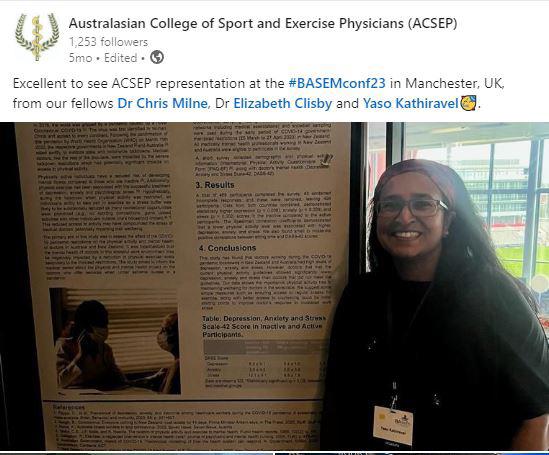
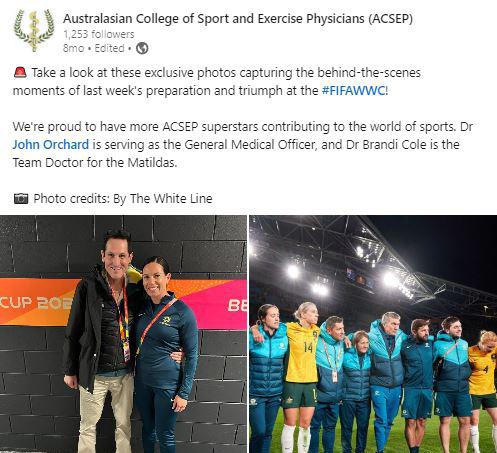
Twitter Followers:
2,863
Facebook Followers:
1.9k
Linkedin Followers:
1k
Instagram Followers:
539
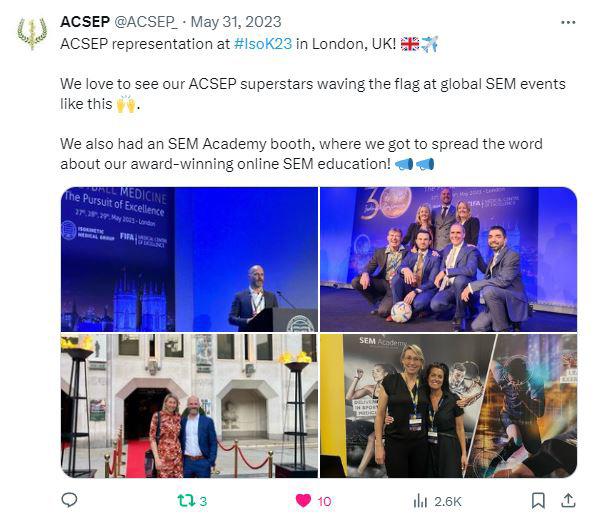
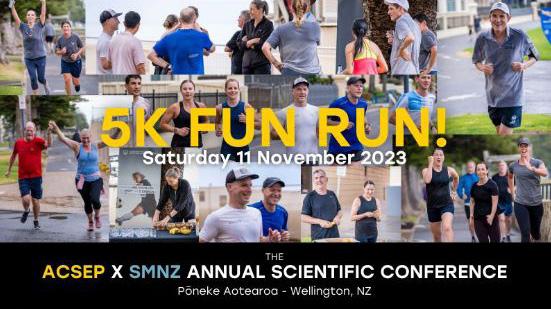

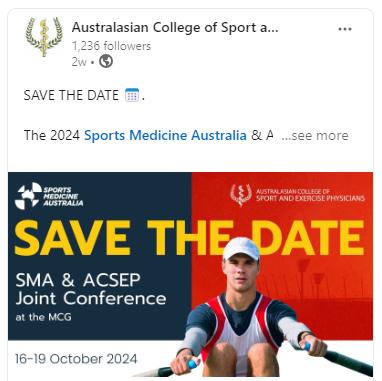
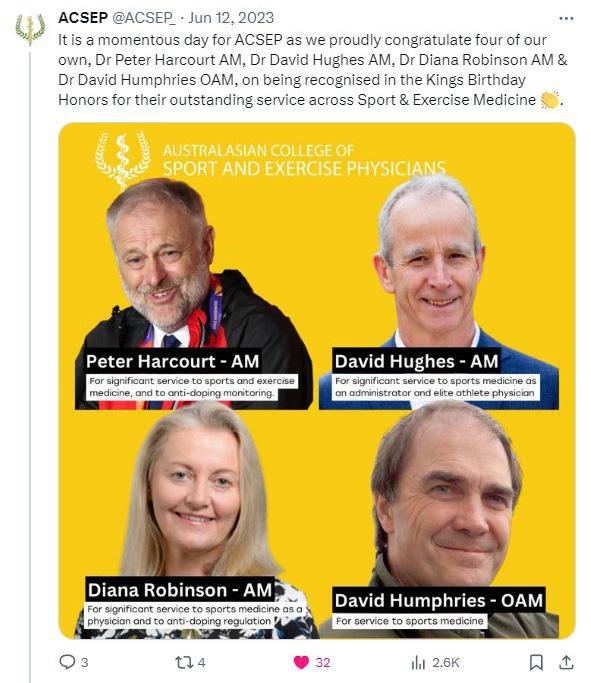
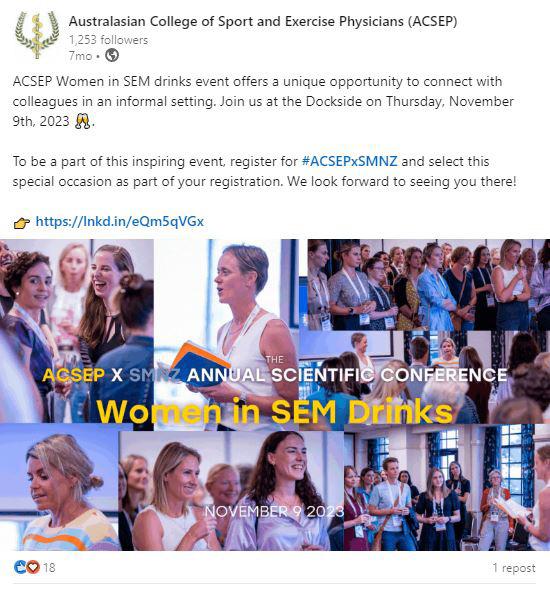
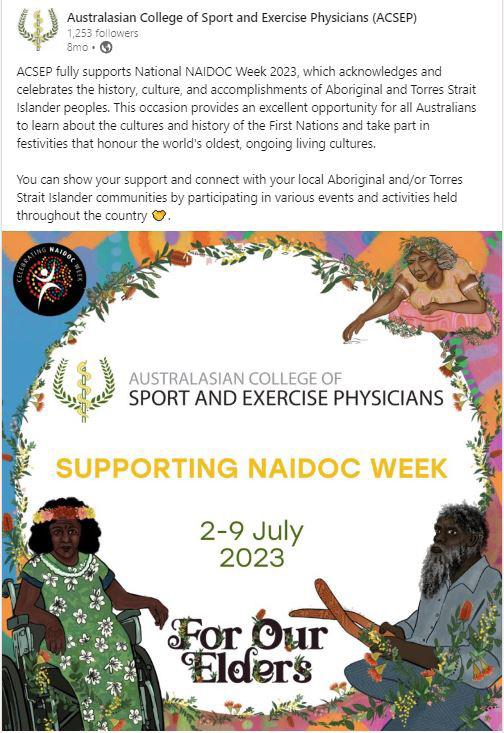
Helping healthcare professionals integrate conversations about physical activity into routine clinical care.
Moving Medicine has continued to progress in 2023 with collaboration and partnerships from healthcare organisations to promote physical activity both in Australia and New Zealand. In Australia, the government funded project aimed at producing culturally secure educational resources for health professionals and Aboriginal and Torres Strait Islander patients is underway and the clinical yarn resources are expected to be finalised in 2024.
Moving Medicine has received good exposure in Aotearoa, New Zealand, with a presentation by Hamish Reid at the New Zealand Osteoarthritis Summit in November and a great talk on physical activity yarns at the 2023 ACSEP & SMNZ Scientific Conference.
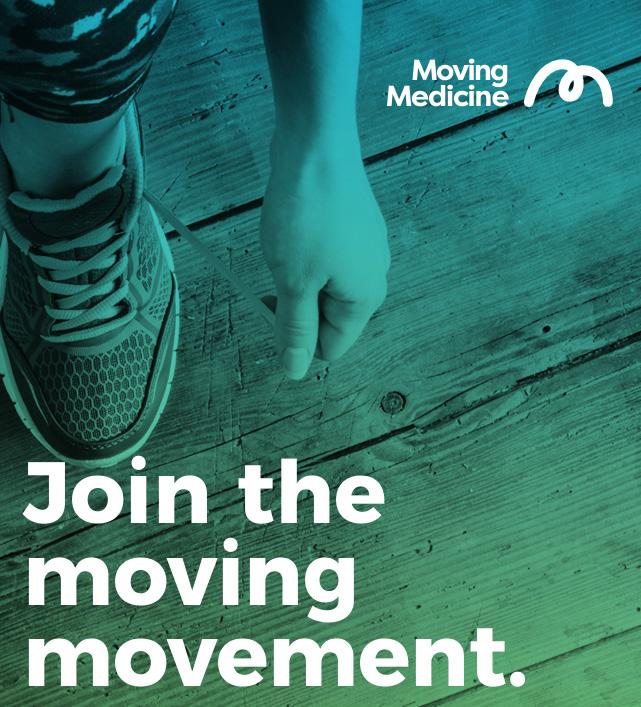
In Australia, 2023 saw growing opportunities for collaboration with Arthritis & Osteoporosis Australia and The Heart Foundation.
The clinical yarn resources project aimed at providing resources for healthcare professionals to start culturally safe yarns with their Aboriginal and Torres Strait Islander patients is being finalised, however the co-design of patients’ resources has been delayed and community yarns are to take place in 2024 to inform the production and content of the resources.
ACSEP has made an ongoing commitment to lead and promote physical activity medicine. With guidance from the Moving Medicine Steering Committee, the College will continue to promote the work of Moving Medicine and collaborate with likeminded organisations.


Active Conversations is an initiative by Moving Medicine and the Faculty of Sport and Exercise Medicine UK, in partnership with The Academy for Health Coaching and White Leaf Solutions.
Active Conversations is a practical, evidence-based online learning course developed by clinicians, for clinicians that teaches you how to have quick, effective and positive conversations that encourage patients to do more physical activity. The courses were coauthored by our very own Dr Hamish Reid and Behaviour Change Specialist Dr Tim Anstiss.
There are two courses available, a Foundations course, accredited with 6 CPD points and a Full course which incorporates Foundations and is accredited with 16 CPD points.
In 2023, White Leaf Solutions were able to breathe new life into the module design and course structure, making it available anytime, anywhere.
For more information on the Active Conversations courses and to sign up, visit activeconversations.co.uk.
